How to write a poetry essay
- August 26, 2023
Whether you love literature or are just curious, this guide will help you understand, enjoy, and talk about poetry. So, let’s start exploring the world of lines and symbols, where each one tells a story to discover.
Here are the steps on writing a poetry essay.

Choose a poem
The first step is, of course, to choose a poem to write your essay .
It should be one that you find interesting, thought-provoking, or emotionally resonant. It’s important to select a poem that you can engage with and analyze effectively.
- Choose a poem that genuinely captures your interest. Look for poems that evoke emotions, thoughts, or curiosity when you read them.
- Consider the themes addressed in the poem. It should offer ample material for analysis.
When choosing a poem
So for this guide, let’s choose Emily Dickinson’s poem “Because I could not stop for Death.” You’ll see a short excerpt of this poem for your understanding.
Poem example for poetry essay
Because i couldn not stop for Death by Emily Dickinson
Because I could not stop for Death – He kindly stopped for me – The Carriage held but just Ourselves – And Immortality. We slowly drove – He knew no haste And I had put away My labor and my leisure too, For His Civility – We passed the School, where Children strove At Recess – in the Ring – We passed the Fields of Gazing Grain – We passed the Setting Sun – The poem continues....
This poem is intriguing due to its exploration of mortality, the afterlife, and eternity. The imagery and language in the poem provide ample material for analysis, making it a suitable choice for a comprehensive essay.
After carefully choosing the poem that interests you, understanding the poem is the biggest key to writing an effective and nice poetry essay.
Understand the poem
Reading the poem several times to grasp its meaning is the most important part of a good analysis. You must first analyze the structure, rhyme scheme , meter and literary tools used in the poem.
For a solid understanding, you should:
- Read the poem multiple times to familiarize yourself with its content. Each reading may reveal new insights.
- Identify the central themes or messages the poem conveys.
- Study the rhyme scheme and meter (rhythmic pattern) of the poem.
- Consider how the structure, including its stanzas, lines, and breaks, contributes to the poem's meaning and impact.
For example
Remember, understanding the poem thoroughly is the foundation for a well-informed analysis. Take your time to grasp the poem’s various elements before moving on to the next steps in your essay.
Now that we have a clear understanding of the poem, let’s move into writing the introduction.
Write a catchy introduction
- Begin with an attention-grabbing hook sentence that piques the reader's interest.
- Provide the necessary information about the poem and its author. Mention the poet's name and title of the poem.
- Offer some context about the poem's time period, literary movement, or cultural influences.
- Present your thesis statement , which outlines the main argument or focus of your essay.
Poetry essay introduction example
Introduction
Thesis statement for poetry essays
A thesis statement is a clear and concise sentence or two that presents the main argument or point of your essay . It provides a roadmap for your reader, outlining what they can expect to find in your essay.
In the case of a poetry essay, your thesis statement should capture the central message, themes, or techniques you’ll be discussing in relation to the poem.
Why is the thesis important for a poetry essay?
By reading your thesis statement, your audience should have a clear idea of what to expect from your poem analysis essay.
When creating a thesis statement, keep these in mind:
- Start by identifying the key elements of the poem that you want to discuss. These could be themes, literary devices, emotions conveyed, or the poet's intentions.
- Based on the key elements you've identified, formulate a central argument that encapsulates your main analysis. What is the poem trying to convey? What are you trying to say about the poem?
- Your thesis should be specific and focused. Avoid vague or broad statements. Instead, provide a clear direction for your analysis.
Poetry essasy thesis statement example
....(introduction starts) ....(introduction continues) ....(introduction continues) In "Because I could not stop for Death," Emily Dickinson employs vivid imagery, personification, and an unconventional perspective on mortality to explore the transcendence of death and the eternity of the soul. Thesis statement, which is usually the last sentence of your introduction
Analyze language and imagery
Language and image analysis in poetry involves a close examination of the words, phrases and literary devices used by the poet. In this step you must uncover the deeper layers of meaning, emotion and sensory experiences conveyed by the poet’s choice of language and imagery.
Why language and imagery?
- Start by identifying and listing the literary devices present in the poem. These could include metaphors, similes, personification, symbolism, alliteration, onomatopoeia, and more.
- For each identified device, explain its significance. How does it contribute to the poem's meaning, mood, or tone?
- Analyze how the literary devices interact with the context of the poem. How do they relate to the themes, characters, or situations presented in the poem?
- Discuss how the use of specific language and imagery influences the reader's emotional response and understanding of the poem.
Continuing with Emily Dickinson’s “Because I could not stop for Death,” let’s analyze the use of imagery:
Language and imagery analysis example
Lines chosen for analysis
Discuss themes in body paragraphs
Exploring themes helps you grasp the deeper meaning of the poem and connect it to broader human experiences. Understanding the themes allows you to uncover what the poet is attempting to convey and how the poem relates to readers on a universal level.
In this step, you will likely dedicate multiple body paragraphs to the analysis of various aspects of language and imagery. Each body paragraph should focus on a specific literary device, phrase, or aspect of language and imagery.
Here’s how you can structure the body paragraphs.
Poetry essay body paragraphs example
Body Paragraph 1: Identify and Explain Literary Devices
Body Paragraph 2: Context and Interaction with Themes
Body Paragraph 3: Reader's emotional response and understanding
Provide evidence from the poem
Providing evidence involves quoting specific lines or stanzas from the poem to support the points you’re making in your analysis. These quotes serve as concrete examples that demonstrate how the poet uses language, imagery, or literary devices to convey specific meanings or emotions.
- Select lines or stanzas from the poem that directly relate to the point you're making in your analysis.
- Introduce each quote with context, explaining the significance of the lines and how they contribute to your analysis.
- Use quotation marks to indicate that you're using the poet's language.
- After providing the quote, interpret its meaning. Explain how the language, imagery, or devices used in the quoted lines contribute to your analysis.
Providing evidence example
In your essay, you should include several quotes and interpret them to reinforce your points. Quoting specific lines from the poem allows you to showcase the poet’s language while demonstrating how these lines contribute to the poem’s overall expression.
Write a conclusion
Conclusion paragraph is the last sentence of your poem analysis essay. It reinforces your thesis statement and emphasizes your insights.
Additionally, the conclusion offers a chance to provide a final thought that leaves a lasting impression on the reader. In your conclusion, make sure to:
- Start by rephrasing your thesis statement. Remind the reader of the main argument you've made in your essay.
- Provide a concise summary of the main points. Avoid introducing new information; focus on the key ideas.
- Discuss the broader significance or implications. How does the poem's message relate to readers beyond its specific context?
- End with a thoughtful reflection, observation, or question that leaves the reader with something to ponder.
Poetry essay conclusion example
In your essay, the conclusion serves as a final opportunity to leave a strong impression on the reader by summarizing your analysis and offering insights into the poem’s broader significance.
Now, it’s time to double check what you’ve written.
Proofread and revise your essay
Edit your essay for clarity, coherence, tense selection , correct headings , etc. Ensure that your ideas flow logically and your analysis is well-supported. Remember, a poetry essay is an opportunity to delve into the nuances of a poem’s language, themes, and emotions.
- Review each paragraph to ensure ideas flow logically from one to the next.
- Check for grammar and punctuation errors.
- Verify that your evidence from the poem is accurately quoted and explained.
- Make sure your language is clear and effectively conveys your analysis.
By proofreading and revising, you can refine your essay, improving its readability and ensuring that your insights are communicated accurately.
So this was the last part, you’re now ready to write your first poem analysis (poetry) essay.
Frequently Asked Questions
What should i include in the introduction of a poetry essay.
In the introduction, provide background information about the poem and poet. Include the poem’s title, publication date, and any relevant context that helps readers understand its significance.
Can I include my emotional responses in a poetry essay?
Yes, you can discuss your emotional responses, but ensure they are supported by your analysis of the poem’s literary elements. Avoid focusing solely on personal feelings.
Is it important to understand the poet's background when writing a poetry essay?
While it can provide context, your focus should be on analyzing the poem itself. If the poet’s background is relevant to the poem’s interpretation, mention it briefly.
What's the best way to conclude a poetry essay?
In the conclusion, summarize your main points and tie them together. Offer insights into the poem’s broader significance, implications, or lasting impact.
Recently on Tamara Blog
How to write a discussion essay (with steps & examples), writing a great poetry essay (steps & examples), how to write a process essay (steps & examples), writing a common app essay (steps & examples), how to write a synthesis essay (steps & examples), how to write a horror story.

Promising Poetry
Find solace in reading, writing & gifting poetry
Starting from Scratch: A Beginner’s Guide to Writing Poetry
- 3 February 2023
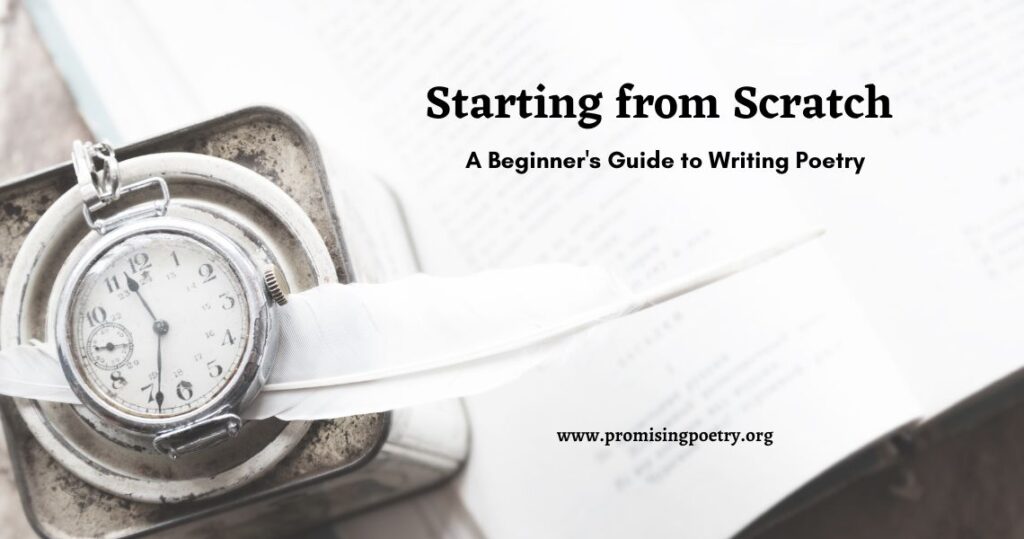
Why poetry?
Where did i start, a path of creative self-expression, forget editing & go with the flow, show, not tell, write for one person, make it relatable, read it aloud, edit and evolve, trust the process.
I’m sure if you are reading this, at least for once you would have written poetry or attempted to write one. Whether a student, teacher, parent, someone from a literary background, homemaker or an uneducated person, everyone makes an effort to write a poem at some point in their lifetime. The simple reason behind this is that poetry is a means of self-expression, to capture emotions, thoughts, and experiences in a creative and imaginative way. Here’s a beginner’s guide to writing poetry from scratch.
Poetry can be used to tell a story, convey a message, evoke a feeling, or simply play with language. Writing poetry can also be a form of therapy, allowing people to work through difficult emotions and explore their inner selves. Additionally, poetry has been a significant part of human culture for thousands of years, passing down stories, beliefs, and traditions from one generation to the next.
So whatever your reason for writing poetry be, know that you are not alone and every expression matters. You don’t need a degree in literature or great writing skills to pen poetry. If you don’t believe me, let me tell you how I started writing one. It is a little embarrassing for me to put it here but then if it could help you see a possibility for your own poetry-writing journey, then why not, right?
When I was around 11 years old (that’s 23 years back) I started writing and my very first fascination was nature and it still remains to be so. My ‘idea’ of poetry at that time was just about lines ending with rhymes. This is how my very first poem, started (don’t laugh at it; it was a kid’s expression then!):
Do you see that? At this age, after years of writing experience, I can see so many things flawed in the above stanza. For one, it has to be God’s ‘creation’ & not ‘creature’ and the whole thing looks like a ‘forced rhyming’ just to call it poetry. Don’t even ask me about the rest of the stanzas. But wait, does it matter that it was flawed? Absolutely no; because I see it as a ‘start’.
Yes, that day, a small kid started her journey towards self-expression and all that mattered to her were words that helped her make sense of what was happening around her and also inside her mind. And my dear friend, that’s all that should matter to you too when you are starting to pen poetry.
Writing poetry is a path of creative self-expression.
Choose a theme that talks to you
Now that you know what really matters, let’s get to the act of writing. All you need is an intention to write one. Firstly, choose a theme that talks to you or tap into an emotion that you are currently experiencing. That way you can easily get into the flow of writing instead of getting about it mechanically. Start somewhere, anywhere but just start. It really doesn’t matter if you write a great starting line or not, trust me!
If you are still stuck wondering where to start, then simply borrow a line/phrase from any book you read or a poem you liked. You can later replace the first line with something of your own; it really works. And yeah, it is not copying, it’s simply taking inspiration.
If you ask any of the writers or poets, they will tell you how most times their first drafts end up nothing but crap. So fret not about perfection and simply add one word after the other. Remember, just one word after the other. Easy, right? For beginners, free verse is the best bet but if you are in the mood for experimentation with different forms like haiku, lyrical poems, etc, then go for it. Just don’t let the structure restrict the flow of your ideas.
How To Write Better Poetry
Poetry is enriched with vivid imagery (descriptions). Showing and not telling is a writing technique used to create vivid and engaging descriptions by allowing readers to experience and interpret events and emotions, rather than just being told about them. All you need to do is to tap a little deeper into your sense of touch, vision, hearing, smell or taste. Here are some examples of showing and not telling:
- Telling: The food was delicious. Showing: The flavors exploded in his mouth as he savored each bite of the perfectly cooked biriyani.
- Telling: She was sad. Showing: Tears streamed down her cheeks as she sat alone, staring blankly out the window.
- Telling: The view was breathtaking. Showing: The sun set over the mountains, painting the sky in shades of pink and orange and taking his breath away.
Every individual has different perspectives and it’s the ability to put our perspectives out loud and clear that matters. So, loosen up, leave your hesitations and write for one person-yourself. Even if you plan to publish, it’s just you and the other person who is reading that is involved in this equation. So write for either yourself or just one reader. That way, the connection between you and the reader is easily established.
Have you noticed that a song lyrics appeals to you so much that it feels it was written just for you? Well, that’s where relatability comes into the picture. Even while you are writing your personal experiences, try and make it relatable to the reader.
To make a poem written from personal experience relatable to the reader, you can focus on universal themes and emotions that are common to many people. This can include topics such as love, loss, joy, fear, hope, etc. Additionally, you can use concrete and specific details that paint a vivid picture of your experiences and help the reader connect with them on an emotional level.
Avoid using jargon or uncommon terminology that may confuse or alienate the reader. Finally, you can use literary devices such as imagery, metaphor, and simile to enhance the emotional impact of the poem.
Reading your poem aloud can help you to identify and correct any issues in your writing, and to gain a better understanding of how the poem will be received by an audience. This is when you will get an idea of how the usage of words complement each other or not, whether is there a rhythmic flow to the poem, is the tone and theme of the poem are conveyed or not, etc.
So, own your poem and read it aloud to help you understand the nuances intuitively. It may sound difficult but try and see. You will get better at it with every poem.
Now that you know how your poetry has turned out and how it sounds while reading, it’s time that you make the edits and polish your poem. Though editing may take time to learn, it’s still your poem to experiment and evolve. Take charge of it and check the tone and mood of the poem. Make sure they match the content and the emotional impact you want to convey.
Read the poem several times, paying attention to each line and stanza. Look for areas that could be improved, such as awkward phrasing or unclear meaning. Consider using synonyms, metaphors, and similes to add depth and impact. Check the structure of the poem. Make sure each stanza and line break serves a purpose, and that the poem has a clear beginning, middle, and end. Finally, have someone else read the poem and provide feedback. This can give you a fresh perspective and help you to identify areas that could be improved.
Poetry is a creative form of self-expression. So, trust the process and evolve with each piece of writing. Also, poetry gives you the liberty to break the rules and simply have fun. So what stops you from writing a poetry, today? Get creative. Get bold. Get writing!
P.S. At the start of this post you read the childish poetry that I started with. To know how my writing has evolved over years, you can check these two poems (click on the below images) that are inspired by my all-time fascination with nature. You will see that with years, the experiences and perspectives have evolved. And, that is all that I wish for you to know, so you honour your expressions and emotions in verses without any hesitation.
How I Fell in Love With Her
If Only You Wake Up To Become the Sunlight
Hope this post helps. If you are just beginning to pen poetry, feel free to post it in the comments or share it on Twitter and tag me @PoetryPromising .
If you are an established poet, do share your very first piece of poetry. Let others be inspired.
Happy Poetrying!
2 Comments on Starting from Scratch: A Beginner’s Guide to Writing Poetry
- Pingback: #BlogchatterA2Z Theme Reveal: The Poet's Alphabet - Promising Poetry
- Pingback: Let's Create Poetry Together - #The100DayProject #CollaborativePoetry - Promising Poetry
Leave a Reply Cancel reply
Your email address will not be published. Required fields are marked *
Save my name, email, and website in this browser for the next time I comment.
Yes, add me to your mailing list.
Privacy Overview
Get 25% OFF new yearly plans in our Spring Sale
- Features for Creative Writers
- Features for Work
- Features for Higher Education
- Features for Teachers
- Features for Non-Native Speakers
- Learn Blog Grammar Guide Community Events FAQ
- Grammar Guide
5 Tips for Poetry Writing: How to Get Started Writing Poems

Hannah Yang
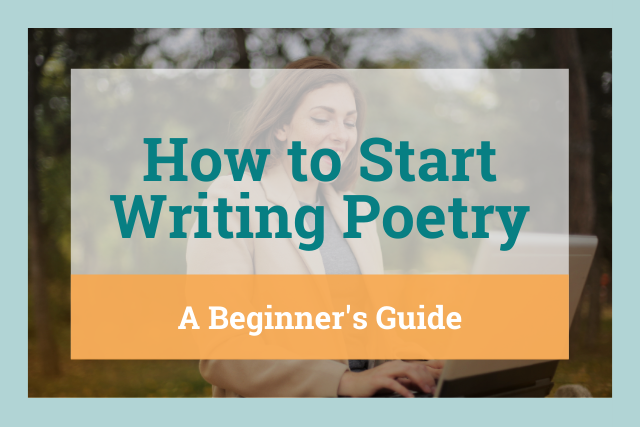
Poetry is a daunting art form to break into.
There are technically no rules for how to write a poem , but despite that—or perhaps because of it—learning how to write a successful poem might feel more difficult than learning how to write a successful essay or story.
There are many reasons to try your hand at poetry, even if you’re primarily a prose writer. Here are just a few:
- Practice writing stronger descriptions and imagery
- Unlock a new side of your creative writing practice
- Learn how to wield language in a more nuanced way
Learning how to write poetry may seem intimidating, but it doesn’t have to be.
In this article, we’ll cover five of our favorite tips to get started writing poetry.
How Do You Start Writing Poetry?
How do you write a poem from a new perspective, how do you write a meaningful poem, how do you write a poem about a theme, what are some different types of poetry, tip 1: focus on concrete imagery.
One of the best ways to start writing poetry is to use concrete images that appeal to the five senses.
The idea of starting with the specific might feel counterintuitive, because many people think of poetry as a way to describe abstract ideas, such as death, joy, or sorrow.
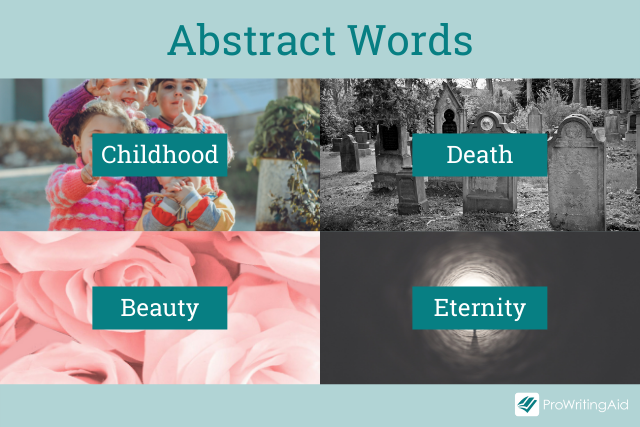
It certainly can be. But each of these concepts has been written about extensively before. Try sitting down and writing an original poem about joy—it’s hard to find something new to say about it.
If you write about a specific experience you’ve had that made you feel joy, that will almost certainly be unique, because nobody has lived the same experiences you have.
That’s what makes concrete imagery so powerful in poetry.
A concrete image is a detail that has a basis in something real or tangible. It could be the texture of your daughter’s hair as you braid it in the morning, or the smell of a food that reminds you of home.
The more specific the image is, the more vivid and effective the poem will become.
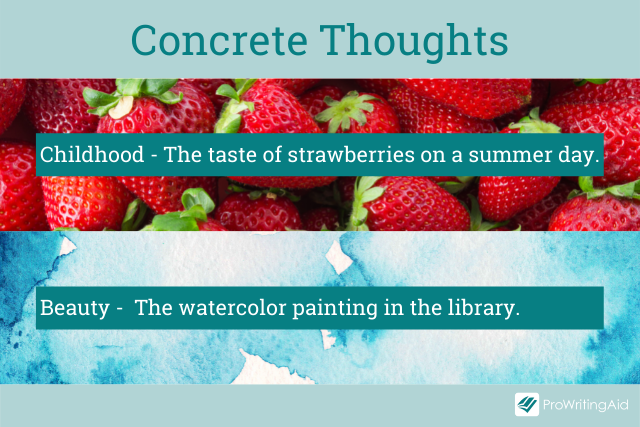
Concrete imagery: Example
Harlem by Langston Hughes
What happens to a dream deferred?
Does it dry up like a raisin in the sun? Or fester like a sore— And then run? Does it stink like rotten meat? Or crust and sugar over— like a syrupy sweet?
Maybe it just sags like a heavy load.
Or does it explode?
Notice how Langston Hughes doesn’t directly write about dreams, except for the very first line. After the first line, he uses concrete images that are very specific and appeal to the five senses: “dry up like a raisin in the sun,” “stink like rotten meat,” “sags like a heavy load.”
He conveys a deeper message about an abstract concept—dreams—using these specific, tangible images.
Concrete Imagery: Exercise
Examine your surroundings. Describe what you see, hear, feel, taste, and smell.
Through these concrete images, try to evoke a specific feeling (e.g., nostalgia, boredom, happiness) without ever naming that feeling in the poem.
Once you've finished writing, you can use ProWritingAid’s Sensory Check to see which of the five senses you've used the most in your imagery. Most writers favor one or two senses, like in the example below, which can resonate with some readers but alienate others.
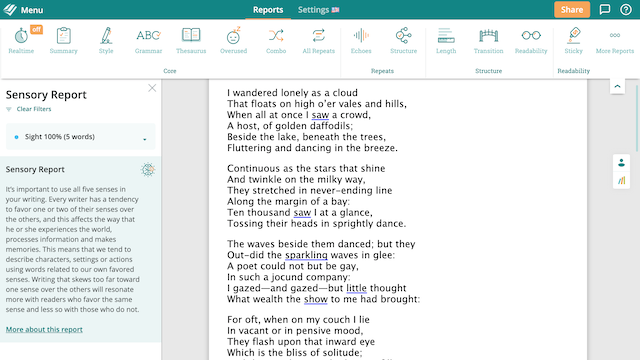
Sign up for a free ProWritingAid account to try the Sensory Check.
Bonus Tip: Start with a free verse poem, which is a poem with no set format or rhyme scheme. You can punctuate it the same way you would punctuate normal prose. Free verse is a great option for beginners, because it lets you write freely without limitations.
Tip 2: Play with Perspective
A persona poem is a poem told in the first-person POV (point of view) from the perspective of anything or anyone. This could include a famous person, a figure from mythology, or even an inanimate object.
The word persona comes from the Latin word for mask . When you write a persona poem, it’s like you’re putting on a mask to see the world through a new lens.
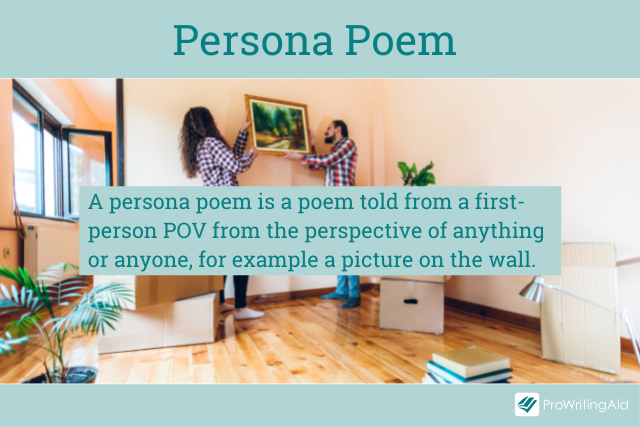
If you’re a new poet and you haven’t found your own voice yet, a persona poem is a great way to experiment with a unique style.
Some persona poems are narrative poems, which tell a story from a specific point of view. Others are lyric poems, which focus more on the style and sound of the poem instead of telling a story.
You can write from the perspective of a pop star, a politician, or a figure from fable or myth. You can try to imagine what it feels like to be a pair of jeans or a lawn mower or a fountain pen. There are no limits except your own creativity.
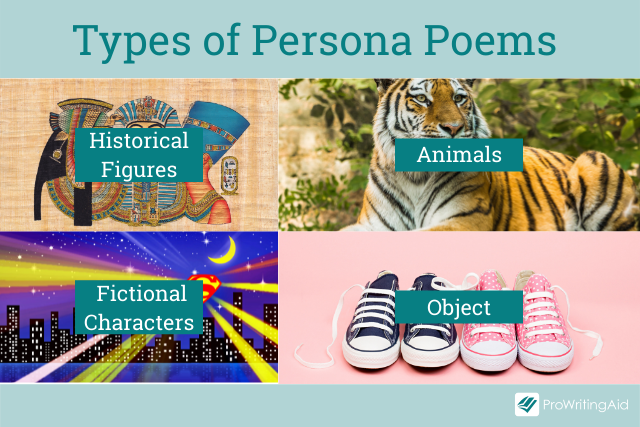
Play with Perspective: Example
Anne Hathaway by Carol Ann Duffy
Item I gyve unto my wief my second best bed … (from Shakespeare’s will)
The bed we loved in was a spinning world of forests, castles, torchlight, cliff-tops, seas where he would dive for pearls. My lover’s words were shooting stars which fell to earth as kisses on these lips; my body now a softer rhyme to his, now echo, assonance; his touch a verb dancing in the centre of a noun. Some nights I dreamed he’d written me, the bed a page beneath his writer’s hands. Romance and drama played by touch, by scent, by taste. In the other bed, the best, our guests dozed on, dribbling their prose. My living laughing love— I hold him in the casket of my widow’s head as he held me upon that next best bed.
In this poem, Carol Ann Duffy writes from the perspective of Anne Hathaway, the wife of William Shakespeare.
She imagines what the wife of this famous literary figure might think and feel, with lines like “Some nights I dreamed he’d written me.”
The poem isn’t written in Shakespearean English, but it uses diction and vocabulary that’s more old-fashioned than the English we speak today, to evoke the feeling of Shakespeare’s time period.
Play with Perspective: Exercise
Write a persona poem from the perspective of a fictional character out of a book or movie. You can tell an important story from their life, or simply try to capture the feeling of being in their head for a moment.
If this character lives in a different time period or speaks in a specific dialect, try to capture that in the poem’s voice.
Tip 3: Write from Life
The best poems are the ones that feel authentic and come from a place of truth.
Brainstorm your own personal experiences. Are there any stories from your life that evoke strong feelings for you? How can you tell that story through a poem?

Try to avoid clichés here. If you want to write about a universal experience or feeling, try to find an entry point into that feeling that’s unique to your life.
Maybe your first hobby was associated with a specific pair of shoes. Maybe your first encounter with shame came from breaking a specific promise to your grandfather. Any of these details could be the launching point for a poem.
Write from Life: Example
Discord in Childhood By D.H. Lawrence
Outside the house an ash-tree hung its terrible whips, And at night when the wind arose, the lash of the tree Shrieked and slashed the wind, as a ship’s Weird rigging in a storm shrieks hideously.
Within the house two voices arose in anger, a slender lash Whistling delirious rage, and the dreadful sound Of a thick lash booming and bruising, until it drowned The other voice in a silence of blood, ’neath the noise of the ash.
Here, D.H. Lawrence writes about the suffering he endured as a child listening to his parents arguing. He channels his own memories and experiences to create a profoundly relatable piece.
Write from Life: Exercise
Go to your phone’s camera roll, or a physical photo album, and find a photo from your life that speaks to you. Write a poem inspired by that photo.
What does that part of your life mean to you? What were your thoughts and feelings at that point in your life?
Tip 4: Save the Theme for the End
In a poem, the last line is often the most important. These are the words that echo in your reader’s head after they’re done reading.
Many poems will tell a story or depict a series of images, allowing you to draw your own conclusions about what it’s trying to say, and then conclude with the takeaway at the very end. Think of it like a fable you might tell a child—often, the moral of the story comes at the end.
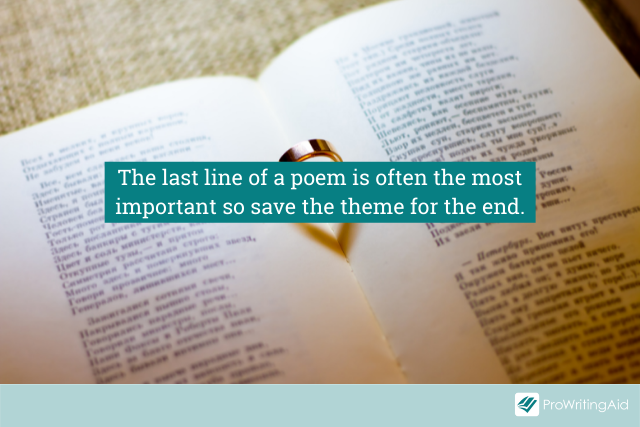
In sonnets it’s a common trend for the final couplet to summarize the theme of the whole poem.
Save the Theme: Example
Resumé by Dorothy Parker
Razors pain you; Rivers are damp; Acids stain you; And drugs cause cramp. Guns aren’t lawful; Nooses give; Gas smells awful; You might as well live.
Here, Dorothy Parker doesn’t make the poem’s meaning clear until the very last line: “You might as well live.” The poem feels fun, almost like a song, and its true meaning doesn’t become obvious until after you’ve finished reading the poem.
Save the Theme: Exercise
Pick your favorite proverb or adage, such as “Actions speak louder than words.” Write a poem that uses that proverb or adage as the closing line.
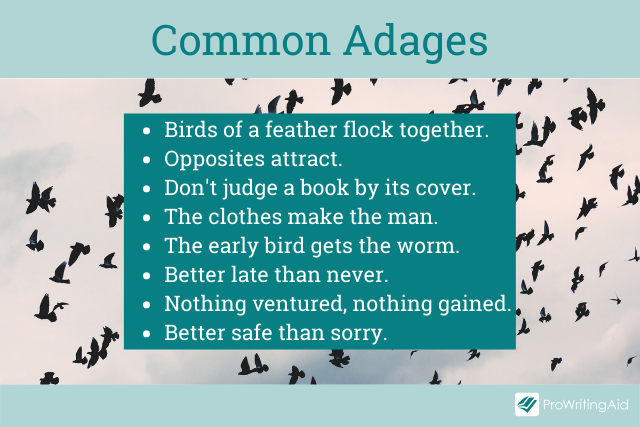
Until the closing line, don’t comment on the deeper meaning in the rest of the poem—instead, tell a story that builds up to that theme.
Tip 5: Try a Poetic Form
Up until now, we’ve been writing in blank verse because it’s the most freeing. Sometimes, though, adding limitations can spark creativity too.
You can use a traditional poetic form to create the structure and shape of your poem.
If you have a limited number of lines to use, you’ll concentrate more on being concise and focused. Great poetry is minimalistic—no word is unnecessary. Using a form is a way to practice paring back to the words you absolutely need, and to start thinking about sound and rhyme.
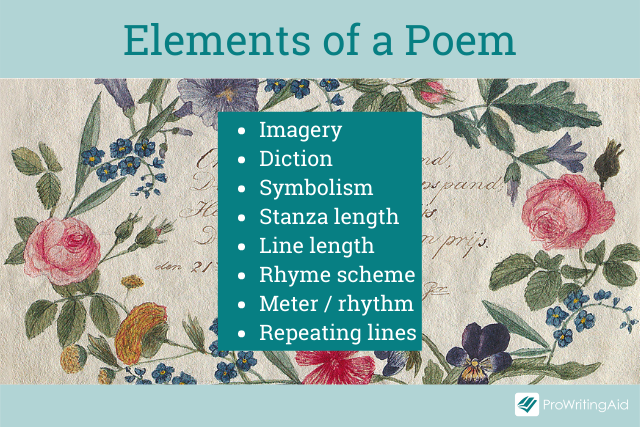
The rules of a poetic form are never set in stone. It’s okay to experiment, and to pick and choose which rules you want to follow. If you want to use a form’s rhyme scheme but ignore its syllable count, for example, that’s perfectly fine.
Let’s look at some examples of poetic forms you can try, and the benefits of each one.
The haiku is a form of Japanese poetry made of three short, unrhymed lines. Traditionally, the first line contains 5 syllables, the second line contains 7 syllables, and the last contains 5 syllables.
Because each haiku must be incredibly concise, this form is a great way to practice economy of language and to learn how to convey a lot with a little. Even more so than with most other poetic forms, you have to think about each word and whether or not it pulls its weight in the poem as a whole.
The Old Pond by Matsuo Bashō
An old silent pond A frog jumps into the pond— Splash! Silence again.
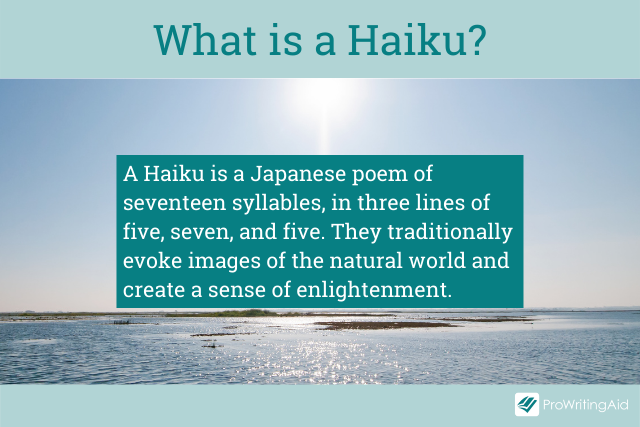
The limerick is a 5-line poem with a sing-songy rhyme scheme and syllable count.
Limericks tend to be humorous and witty, so if you’re usually a comedic writer, they can be a great form for learning how to write poetry. You can treat the poem as a joke that builds up to a punchline.
Untitled Limerick by Edward Lear
There was an Old Man with a beard Who said, "It is just as I feared! Two Owls and a Hen, Four Larks and a Wren, Have all built their nests in my beard!"
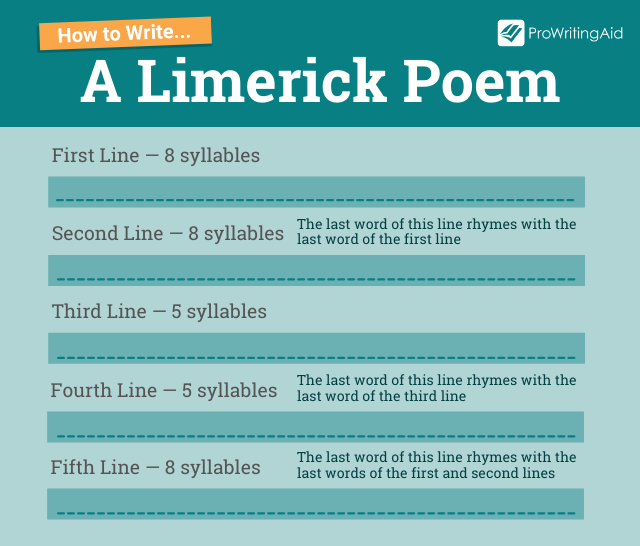
The sonnet is a 14-line poetic form, invented in Italy in the 13th century.
There are multiple types of sonnet. One of the most well-known forms is the Shakespearean sonnet, which is divided into three quatrains (4-line stanzas) and one couplet (2-line stanza).
Almost every professional poet has tried a sonnet at some point, from classical poets such as William Shakespeare , John Milton , and John Donne , as well as contemporary poets such as Kim Addonizio , R.S. Gwynn , and Cathy Park Hong .
Sonnets are great for practicing more advanced poetry. Their form forces you to think about rhyme and meter.
Sonnet 116 by William Shakespeare
Let me not to the marriage of true minds Admit impediments. Love is not love Which alters when it alteration finds, Or bends with the remover to remove. O no, it is an ever fixed mark That looks on tempests and is never shaken; It is the star to every wand’ring barque, Whose worth’s unknown although his height be taken. Love’s not time’s fool, though rosy lips and cheeks Within his bending sickle’s compass come; Love alters not with his brief hours and weeks, But bears it out even to the edge of doom. If this be error and upon me proved, I never writ, nor no man ever loved.
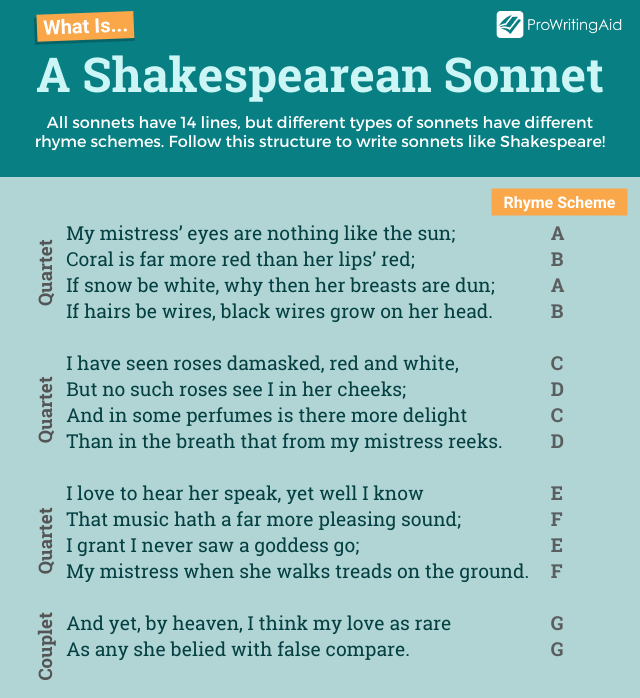
The villanelle is a 19-line poem with two lines that recur over and over throughout the poem.
The word “villanelle” comes from the Italian villanella , meaning rustic song or dance, because the two lines that are repeated resemble the chorus of a folk song. Using this form helps you to think about the sound and musicality of your writing.
Mad Girl’s Love Song by Sylvia Plath
I shut my eyes and all the world drops dead; I lift my lids and all is born again. (I think I made you up inside my head.)
The stars go waltzing out in blue and red, And arbitrary blackness gallops in: I shut my eyes and all the world drops dead.
I dreamed that you bewitched me into bed And sung me moon-struck, kissed me quite insane. (I think I made you up inside my head.)
God topples from the sky, hell’s fires fade: Exit seraphim and Satan’s men: I shut my eyes and all the world drops dead.
I fancied you’d return the way you said, But I grow old and I forget your name. (I think I made you up inside my head.)
I should have loved a thunderbird instead; At least when spring comes they roar back again. I shut my eyes and all the world drops dead. (I think I made you up inside my head.)
Try a Poetic Form: Exercise
Pick your favorite poetic form (sonnet, limerick, haiku, or villanelle) and try writing a poem in that structure.
Remember that you don’t have to follow all the rules—pick the ones that spark your imagination, and ignore the ones that don’t.
These are our five favorite tips to get started writing poems. Feel free to try each of them, or to mix and match them to create something entirely new.
Have you tried any of these poetry methods before? Which ones are your favorites? Let us know in the comments.
Take your writing to the next level:

20 Editing Tips from Professional Writers
Whether you are writing a novel, essay, article, or email, good writing is an essential part of communicating your ideas., this guide contains the 20 most important writing tips and techniques from a wide range of professional writers..

Write like a bestselling author
Love writing? ProWritingAid will help you improve the style, strength, and clarity of your stories.
Hannah Yang is a speculative fiction writer who writes about all things strange and surreal. Her work has appeared in Analog Science Fiction, Apex Magazine, The Dark, and elsewhere, and two of her stories have been finalists for the Locus Award. Her favorite hobbies include watercolor painting, playing guitar, and rock climbing. You can follow her work on hannahyang.com, or subscribe to her newsletter for publication updates.
Get started with ProWritingAid
Drop us a line or let's stay in touch via :
Looking to publish? Meet your dream editor, designer and marketer on Reedsy.
Find the perfect editor for your next book
1 million authors trust the professionals on Reedsy. Come meet them.
Guides • Perfecting your Craft
Last updated on Nov 23, 2022
How to Write a Poem: Get Tips from a Published Poet
Ever wondered how to write a poem? For writers who want to dig deep, composing verse lets you sift the sand of your experience for new glimmers of insight. And if you’re in it for less lofty reasons, shaping a stanza from start to finish can teach you to have fun with language in totally new ways.
To help demystify the subtle art of writing verse, we chatted with Reedsy editor (and published poet) Lauren Stroh . In 8 simple steps, here's how to write a poem:
1. Brainstorm your starting point
2. free-write in prose first, 3. choose your poem’s form and style, 4. read for inspiration, 5. write for an audience of one — you, 6. read your poem out loud, 7. take a break to refresh your mind, 8. have fun revising your poem.

If you’re struggling to write your poem in order from the first line to the last, a good trick is opening with whichever starting point your brain can latch onto as it learns to think in verse.
Your starting point can be a line or a phrase you want to work into your poem, though it doesn’t have to take the form of language at all. It might be a picture in your head, as particular as the curl of hair over your daughter’s ear as she sleeps, or as capacious as the sea. It can even be a complicated feeling you want to render with precision — or maybe it's a memory you return to again and again. Think of this starting point as the "why" behind your poem, your impetus for writing it in the first place.
If you’re worried your starting point isn’t grand enough to merit an entire poem, stop right there. After all, literary giants have wrung verse out of every topic under the sun, from the disappointments of a post- Odyssey Odysseus to illicitly eaten refrigerated plums .
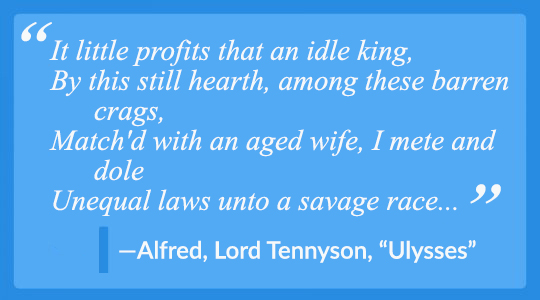
As Lauren Stroh sees it, your experience is more than worthy of being immortalized in verse.
"I think the most successful poems articulate something true about the human experience and help us look at the everyday world in new and exciting ways."
It may seem counterintuitive but if you struggle to write down lines that resonate, perhaps start with some prose writing first. Take this time to delve into the image, feeling, or theme at the heart of your poem, and learn to pin it down with language. Give yourself a chance to mull things over before actually writing the poem.
Take 10 minutes and jot down anything that comes to mind when you think of your starting point. You can write in paragraphs, dash off bullet points, or even sketch out a mind map . The purpose of this exercise isn’t to produce an outline: it’s to generate a trove of raw material, a repertoire of loosely connected fragments to draw upon as you draft your poem in earnest.
Silence your inner critic for now
And since this is raw material, the last thing you should do is censor yourself. Catch yourself scoffing at a turn of phrase, overthinking a rhetorical device , or mentally grousing, “This metaphor will never make it into the final draft”? Tell that inner critic to hush for now and jot it down anyway. You just might be able to refine that slapdash, off-the-cuff idea into a sharp and poignant line.
Whether you’ve free-written your way to a beginning or you’ve got a couple of lines jotted down, before you complete a whole first draft of your poem, take some time to think about form and style.
The form of a poem often carries a lot of meaning beyond the structural "rules" that it offers the writer. The rhyme patterns of sonnets — and the Shakespearean influence over the form — usually lend themselves to passionate pronouncements of love, whether merry or bleak. On the other hand, acrostic poems are often more cheeky because of the secret meaning that it hides in plain sight.
Even if your material begs for a poem without formal restrictions, you’ll still have to decide on the texture and tone of your language. Free verse, after all, is as diverse a form as the novel, ranging from the breathless maximalism of Walt Whitman to the cool austerity of H.D . Where, on this spectrum, will your poem fall?
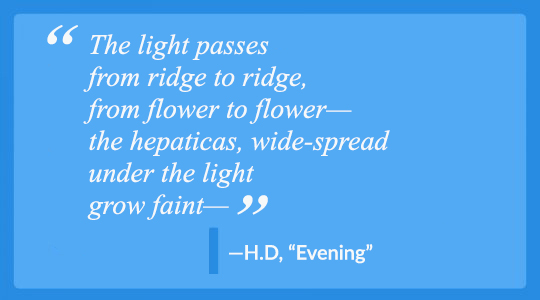
Choosing a form and tone for your poem early on can help you work with some kind of structure to imbue more meanings to your lines. And if you’ve used free-writing to generate some raw material for yourself, a structure can give you the guidance you need to organize your notes into a poem.
A poem isn’t a nonfiction book or a historical novel: you don’t have to accumulate reams of research to write a good one. That said, a little bit of outside reading can stave off writer’s block and keep you inspired throughout the writing process.
Build a short, personalized syllabus around your poem’s form and subject. Say you’re writing a sensorily rich, linguistically spare bit of free verse about a relationship of mutual jealousy between mother and daughter. In that case, you’ll want to read some key Imagist poems , alongside some poems that sketch out complicated visions of parenthood in unsentimental terms.
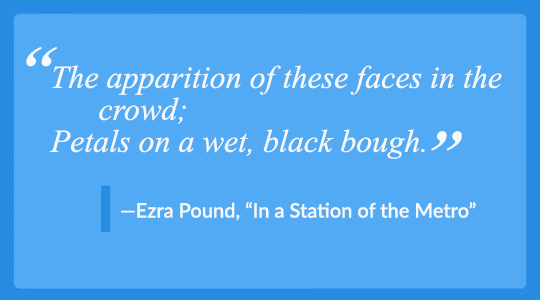
And if you don’t want to limit yourself to poems similar in form and style to your own, Lauren has you covered with an all-purpose reading list:
- The Dream of a Common Languag e by Adrienne Rich
- Anything you can get your hands on by Mary Oliver
- The poems “ Failures in Infinitives ” and “ Fish & Chips ” by Bernadette Mayer.
- I often gift Lunch Poems by Frank O’Hara to friends who write.
- Everyone should read the interviews from the Paris Review’s archives . It’s just nice to observe how people familiar with language talk when they’re not performing, working, or warming up to write.
Even with preparation, the pressure of actually producing verse can still awaken your inner metrophobe (or poetry-fearer). What if people don’t understand — or even misinterpret — what you’re trying to say? What if they don’t feel drawn to your work? To keep the anxiety at bay, Lauren suggests writing for yourself, not for an external audience.
"I absolutely believe that poets can determine the validity of their own success if they are changed by the work they are producing themselves; if they are challenged by it; or if it calls into question their ethics, their habits, or their relationship to the living world. And personally, my life has certainly been changed by certain lines I’ve had the bravery to think and then write — and those moments are when I’ve felt most like I’ve made it."
You might eventually polish your work if you decide to publish your poetry down the line. (If you do, definitely check out the rest of this guide for tips and a list of magazines to submit to.) But as your first draft comes together, treat it like it’s meant for your eyes only.
A good poem doesn’t have to be pretty: maybe an easy, melodic loveliness isn’t your aim. It should, however, come alive on the page with a consciously crafted rhythm, whether hymn-like or discordant. To achieve that, read your poem out loud — at first, line by line, and then all together, as a complete text.
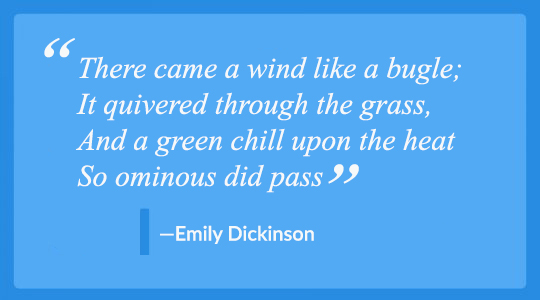
Trying out every line against your ear can help you weigh out a choice between synonyms — getting you to notice, say, the watery sound of “glacial”, the brittleness of “icy,” the solidity of “cold”.
Reading out loud can also help you troubleshoot line breaks that just don't feel right. Is the line unnaturally long, forcing you to rush through it or pause in the middle for a hurried inhale? If so, do you like that destabilizing effect, or do you want to literally give the reader some room to breathe? Testing these variations aloud is perhaps the only way to answer questions like these.
While it’s incredibly exciting to complete a draft of your poem, and you might be itching to dive back in and edit it, it’s always advisable to take a break first. You don’t have to turn completely away from writing if you don’t want to. Take a week to chip away at your novel or even muse idly on your next poetic project — so long as you distance yourself from this poem a little while.
This is because, by this point, you’ve probably read out every line so many times the meaning has leached out of the syllables. With the time away, you let your mind refresh so that you can approach the piece with sharper attention and more ideas to refine it.
At the end of the day, even if you write in a well-established form, poetry is about experimenting with language, both written and spoken. Lauren emphasizes that revising a poem is thus an open-ended process that requires patience — and a sense of play.
"Have fun. Play. Be patient. Don’t take it seriously, or do. Though poems may look shorter than what you’re used to writing, they often take years to be what they really are. They change and evolve. The most important thing is to find a quiet place where you can be with yourself and really listen."
Is it time to get other people involved?
Want another pair of eyes on your poem during this process? You have options. You can swap pieces with a beta reader , workshop it with a critique group , or even engage a professional poetry editor like Lauren to refine your work — a strong option if you plan to submit it to a journal or turn it into the foundation for a chapbook .

Want a poetry expert to polish up your verse?
Professional poetry editors are on Reedsy. Sign up for free to meet them!
Learn how Reedsy can help you craft a beautiful book.
The working poet's checklist
If you decide to fly solo, here’s a checklist to work through as you revise:
✅ Hunt for clichés. Did you find yourself reaching for ready-made idioms at any point? Go back to the sentiment you were grappling with and try to capture it in stronger, more vivid terms.
✅ See if your poem begins where it should. Did you take a few lines of throat-clearing to get to the actual point? Try starting your poem further down.
✅ Make sure every line belongs. As you read each line, ask yourself: how does this contribute to the poem as a whole? Does it advance the theme, clarify the imagery, set or subvert the reader’s expectations? If you answer with something like, “It makes the poem sound nice,” consider cutting it.
Once you’ve worked your way through this checklist, feel free to brew yourself a cup of tea and sit quietly for a while, reflecting on your literary triumphs.
Whether these poetry writing tips have awakened your inner Wordsworth, or sent you happily gamboling back to prose, we hope you enjoyed playing with poetry — and that you learned something new about your approach to language.
And if you are looking to share your poetry with the world, the next post in this guide can show the ropes regarding how to publish your poems!
Anna Clarke says:
29/03/2020 – 04:37
I entered a short story competition and though I did not medal, one of the judges told me that some of my prose is very poetic. The following year I entered a poetry competition and won a bronze medal. That was my first attempt at writing poetry. I am more aware of figurative language in writing prose now. I am learning to marry the two. I don't have any poems online.
Comments are currently closed.
Join a community of over 1 million authors
Reedsy is more than just a blog. Become a member today to discover how we can help you publish a beautiful book.

Polish up your verse
Sign up to meet professional poetry editors on Reedsy.

1 million authors trust the professionals on Reedsy. Come meet them.
Enter your email or get started with a social account:
- PRO Courses Guides New Tech Help Pro Expert Videos About wikiHow Pro Upgrade Sign In
- EDIT Edit this Article
- EXPLORE Tech Help Pro About Us Random Article Quizzes Request a New Article Community Dashboard This Or That Game Popular Categories Arts and Entertainment Artwork Books Movies Computers and Electronics Computers Phone Skills Technology Hacks Health Men's Health Mental Health Women's Health Relationships Dating Love Relationship Issues Hobbies and Crafts Crafts Drawing Games Education & Communication Communication Skills Personal Development Studying Personal Care and Style Fashion Hair Care Personal Hygiene Youth Personal Care School Stuff Dating All Categories Arts and Entertainment Finance and Business Home and Garden Relationship Quizzes Cars & Other Vehicles Food and Entertaining Personal Care and Style Sports and Fitness Computers and Electronics Health Pets and Animals Travel Education & Communication Hobbies and Crafts Philosophy and Religion Work World Family Life Holidays and Traditions Relationships Youth
- Browse Articles
- Learn Something New
- Quizzes Hot
- This Or That Game New
- Train Your Brain
- Explore More
- Support wikiHow
- About wikiHow
- Log in / Sign up
- Education and Communications
- Writing Poetry
How to Write Poetry for Beginners
Last Updated: January 12, 2024 Fact Checked
This article was co-authored by Alicia Cook and by wikiHow staff writer, Hannah Madden . Alicia Cook is a Professional Writer based in Newark, New Jersey. With over 12 years of experience, Alicia specializes in poetry and uses her platform to advocate for families affected by addiction and to fight for breaking the stigma against addiction and mental illness. She holds a BA in English and Journalism from Georgian Court University and an MBA from Saint Peter’s University. Alicia is a bestselling poet with Andrews McMeel Publishing and her work has been featured in numerous media outlets including the NY Post, CNN, USA Today, the HuffPost, the LA Times, American Songwriter Magazine, and Bustle. She was named by Teen Vogue as one of the 10 social media poets to know and her poetry mixtape, “Stuff I’ve Been Feeling Lately” was a finalist in the 2016 Goodreads Choice Awards. There are 13 references cited in this article, which can be found at the bottom of the page. This article has been fact-checked, ensuring the accuracy of any cited facts and confirming the authority of its sources. This article has been viewed 238,831 times.
Writing poetry is a way to convey emotions, memories, and nostalgia without directly stating what you are describing. Writing poetry for the first time can be challenging, since there are so many ways to start and finish a poem. If you are a beginner and want to write poetry for the first time, use a journal to keep track of your inspiration and expand your language by using metaphors and similes to create beautiful and relatable poetry.
Finding Time and Inspiration for Poetry

- Langston Hughes, Maya Angelou, and Sylvia Plath are also famous poets that have varying styles.
- You can also see some examples of different styles and tones in poetry by comparing and contrasting authors.

- Understanding your own emotions can be difficult. Try to dissect how you feel on a daily basis, and what situations disrupt your mood often.
- Emotions are a great tool to use in poetry because people feel them universally.

- If you think you will forget to write, try setting an alarm on your phone or using a post-it note to remind you.

Tip: Use a journal that is small enough to keep in your bag, or even your pocket.

- For example, answer a prompt like, “Write about your first birthday party,” or, “Convey an emotion using only colors.”
- You can often find poetry writing prompts on sites that accept poetry submissions.
Beginning Your Poem

- A poem doesn't have to make sense grammatically. What matters is that your audience gets the message you want to communicate using your own formation of the words.
For example: Do you like the sunflower? Does it invoke any emotions in you? Does the sunflower represent or remind you of something?

- How does the sea look? Use descriptive terms relating to colors, motion, depth, temperature, and other standard features. The sea might be foaming, producing whirlpools, looking glassy, or turning grey at the advent or a storm; describe whatever comes to mind for you.
- What are some of its aspects that are noticeable in your sea? The froth of the waves, the fish under the surface, the height of waves during a storm, the lull when the wind dies down, the mounting garbage greys, a school of dolphins passing through, sea level rise along coastlines, the mournful cries of the Pacific gulls––these are all things you might notice in relation to the sea of your poem.
Writing the Rest

- Try to think of these words yourself rather than looking them up in a dictionary or online so that your poem flows better.
- Stressed and unstressed syllables also create rhythm in a poem. In the sentence “He’d like some pumpkin pie,” “like,” “pump-,” and “pie” are all emphasized based on how you say them.
- Remember that not all poems rhyme! It's okay if you don't want your poem to rhyme.

For example, you could say, “The sea was a night sky, expanding like an inkblot in the water.”

- Your first poem can be short. You can work your way up to longer poetry over time.

- Remember that you are the poet, expressing your feelings through your poems so intuition, above anything else, is key.

- If you will be submitting your poem anywhere, it is very important to make sure your final copy looks exactly how you want it to.
Poetry for Beginners Worksheet

Community Q&A

Reader Videos
You Might Also Like

- ↑ https://earlybirdbooks.com/most-famous-poems
- ↑ https://www.nwp.org/cs/public/print/resource/402
- ↑ https://www.familyfriendpoems.com/poem/article-write-poetry-every-day
- ↑ https://www.loc.gov/poetry/180/007.html
- ↑ https://poetrysociety.org.uk/competitions/national-poetry-competition/resources/poetry-writing-prompts/
- ↑ https://www.familyfriendpoems.com/poems/other/
- ↑ Alicia Cook. Professional Poet. Expert Interview. 11 December 2020.
- ↑ https://jerz.setonhill.edu/writing/creative1/poetry-writing-tips-how-to-write-a-poem/comment-page-4/
- ↑ https://www.poetryfoundation.org/articles/70212/learning-image-and-description
- ↑ https://literaryterms.net/rhyme/
- ↑ https://www.poetryfoundation.org/articles/69588/the-start-writing-your-own-poem
- ↑ https://jerz.setonhill.edu/writing/creative1/poetry-writing-tips-how-to-write-a-poem/#10
- ↑ https://abegailmorley.wordpress.com/2012/12/30/drafting-a-poem/
About This Article

If you’re a beginner trying to write poetry, start by deciding what your poem will be about, like love or a meaningful experience. Then, choose a structure that you're comfortable with, like rhyming or free-form. Next, come up with an interesting or mysterious first line that entices your reader to keep reading. Once you have a good opening line, use as many strong, descriptive words as you can in the rest of the poem to express your thoughts and feelings to the reader. To learn how reciting your poem out loud as you write can make your poem even better, keep reading! Did this summary help you? Yes No
- Send fan mail to authors
Reader Success Stories
Oct 25, 2023
Did this article help you?

Cynthia Nixon
May 10, 2022
Feb 18, 2017
Sakhiwo Dlamini
Oct 7, 2020
Santhakumary P. R.
Jan 4, 2020

Featured Articles

Trending Articles

Watch Articles

- Terms of Use
- Privacy Policy
- Do Not Sell or Share My Info
- Not Selling Info
wikiHow Tech Help Pro:
Develop the tech skills you need for work and life
The Art of Narrative
Learn to write.

How to Write a Poem: In 7 Practical Steps with Examples
Learn how to write a poem through seven easy to follow steps that will guide you through writing completed poem. Ignite a passion for poetry!
This article is a practical guide for writing a poem, and the purpose is to help you write a poem! By completing the seven steps below, you will create the first draft of a simple poem. You can go on to refine your poetry in any way you like. The important thing is that you’ve got a poem under your belt.
At the bottom of the post, I’ll provide more resources on writing poetry. I encourage you to explore different forms and structures and continue writing poetry on your own. Hopefully, writing a poem will spark, in you, a passion for creative writing and language.
Let’s get started with writing a poem in seven simple steps:
- Brainstorm & Free-write
- Develop a theme
- Create an extended metaphor
- Add figurative language
- Plan your structure
- Write your first draft
- Read, re-read & edit
Now we’ll go into each step in-depth. And, if your feeling up to it, you can plan and write your poem as we go.
Step 1: Brainstorm and Free-write
Find what you want to write about

Before you begin writing, you need to choose a subject to write about. For our purposes, you’ll want to select a specific topic. Later, you’ll be drawing a comparison between this subject and something else.
When choosing a subject, you’ll want to write about something you feel passionately about. Your topic can be something you love, like a person, place, or thing. A subject can also be something you struggle with . Don’t get bogged down by all the options; pick something. Poets have written about topics like:
And of course… cats
Once you have your subject in mind, you’re going to begin freewriting about that subject. Let’s say you picked your pet iguana as your subject. Get out a sheet of paper or open a word processor. Start writing everything that comes to mind about that subject. You could write about your iguana’s name, the color of their skin, the texture of their scales, how they make you feel, a metaphor that comes to mind. Nothing is off-limits.
Write anything that comes to mind about your subject. Keep writing until you’ve entirely exhausted everything you have to say about the subject. Or, set a timer for several minutes and write until it goes off. Don’t worry about things like spelling, grammar, form, or structure. For now, you want to get all your thoughts down on paper.
ACTION STEPS:
- Grab a scratch paper, or open a word processor
- Pick a subject- something you’re passionate about
- Write everything that comes to mind about your topic without editing or structuring your writing
- Make sure this free-writing is uninterrupted
- Optional- set a timer and write continuously for 5 or 10 minutes about your subject
Step 2: Develop a Theme
What lesson do you want to teach?

Poetry often has a theme or a message the poet would like to convey to the reader. Developing a theme will give your writing purpose and focus your effort. Look back at your freewriting and see if a theme, or lesson, has developed naturally, one that you can refine.
Maybe, in writing about your iguana, you noticed that you talked about your love for animals and the need to preserve the environment. Or, perhaps you talk about how to care for a reptile pet. Your theme does not need to be groundbreaking. A theme only needs to be a message that you would like to convey.
Now, what is your theme? Finish the following statement:
The lesson I want to teach my readers about (your subject) is ______
Ex. I want to teach my readers that spring days are lovely and best enjoyed with loving companions or family.
- Read over the product of your free-writing exercise.
- Brainstorm a lesson you would like to teach readers about your subject.
- Decide on one thing that is essential for your reader to know about your topic.
- Finish the sentence stem above.
Step 3: Create an (extended) Metaphor
Compare your subject to another, unlike thing.

To write this poem, you will compare your subject to something it, seemingly, has nothing in common with. When you directly compare two, unlike things, you’re using a form of figurative language called a metaphor. But, we’re going to take this metaphor and extend it over one or two stanzas- Stanzas are like paragraphs, a block of text in a poem- Doing this will create an extended metaphor.
Using a metaphor will reinforce your theme by making your poem memorable for your reader. Keep that in mind when you’re choosing the thing you’d like to compare your subject to. Suppose your topic is pet iguanas, and your theme is that they make fantastic pets. In that case, you’ll want to compare iguanas to something positive. Maybe you compare them to sunshine or a calm lake. This metaphor does the work or conveying your poem’s central message.
- Identify something that is, seemingly, unlike your subject that you’ll use to compare.
- On a piece of paper, make two lists or a Venn diagram.
- Write down all the ways that you’re subject and the thing you’ll compare it to are alike.
- Also, write down all the ways they are unalike.
- Try and make both lists as comprehensive as possible.
Step 4: Add more Figurative Language
Make your writing sound poetic.

Figurative language is a blanket term that describes several techniques used to impart meaning through words. Figurative language is usually colorful and evocative. We’ve talked about one form of figurative language already- metaphor and extended metaphor. But, here are a few others you can choose from.
This list is, by no means, a comprehensive one. There are many other forms of figurative language for you to research. I’ll link a resource at the bottom of this page.
Five types of figurative language:
- Ex. Frank was as giddy as a schoolgirl to find a twenty-dollar bill in his pocket.
- Frank’s car engine whined with exhaustion as he drove up the hill.
- Frank was so hungry he could eat an entire horse.
- Nearing the age of eighty-five, Frank felt as old as Methuselah.
- Frank fretted as he frantically searched his forlorn apartment for a missing Ficus tree.
There are many other types of figurative language, but those are a few common ones. Pick two of the five I’ve listed to include in your poem. Use more if you like, but you only need two for your current poem.
- Choose two of the types of figurative language listed above
- Brainstorm ways they can fit into a poem
- Create example sentences for the two forms of figurative language you chose
Step 5: Plan your Structure
How do you want your poem to sound and look?

If you want to start quickly, then you can choose to write a free-verse poem. Free verse poems are poems that have no rhyme scheme, meter, or structure. In a free verse poem, you’re free to write unrestricted. If you’d like to explore free verse poetry, you can read my article on how to write a prose poem, which is a type of free verse poem.
Read more about prose poetry here.
However, some people enjoy the support of structure and rules. So, let’s talk about a few of the tools you can use to add a form to your poem.
Tools to create poetic structure:
Rhyme Scheme – rhyme scheme refers to the pattern of rhymes used in a poem. The sound at the end of each line determines the rhyme scheme. Writers label words with letters to signify rhyming terms, and this is how rhyme schemes are defined.
If you had a four-line poem that followed an ABAB scheme, then lines 1 and 3 would rhyme, and lines 2 and 4 would rhyme. Here’s an example of an ABAB rhyme scheme from an excerpt of Robert Frost’s poem, Neither Out Far Nor In Deep:
‘The people along the sand (A)
All turn and look one way. (B)
They turn their back on the land. (A)
They look at the sea all day. (B)
Check out the Rhyme Zone.com if you need help coming up with a rhyme!
Read more about the ins and outs of rhyme scheme here.
Meter – a little more advanced than rhyme scheme, meter deals with a poem’s rhythm expressed through stressed and unstressed syllables. Meter can get pretty complicated ,
Check out this article if you’d like to learn more about it.
Stanza – a stanza is a group of lines placed together as a single unit in a poem. A stanza is to a poem what a paragraph is to prose writing. Stanzas don’t have to be the same number of lines throughout a poem, either. They can vary as paragraphs do.
Line Breaks – these are the breaks between stanzas in a poem. They help to create rhythm and set stanzas apart from one another.
- Decide if you want to write a structured poem or use free verse
- Brainstorm rhyming words that could fit into a simple scheme
- Plan out your stanzas and line breaks (small stanzas help emphasize important lines in your poem)
Step 6: Write Your Poem
Combine your figurative language, extended metaphor, and structure.

Poetry is always unique to the writer. And, when it comes to poetry, the “rules” are flexible. In 1965 a young poet named Aram Saroyan wrote a poem called lighght. It goes like this-
That’s it. Saroyan was paid $750 for his poem. You may or may not believe that’s poetry, but a lot of people accept it as just that. My point is, write the poem that comes to you. I won’t give you a strict set of guidelines to follow when creating your poetry. But, here are a few things to consider that might help guide you:
- Compare your subject to something else by creating an extended metaphor
- Try to relate a theme or a simple lesson for your reader
- Use at least two of the figurative language techniques from above
- Create a meter or rhyme scheme (if you’re up to it)
- Write at least two stanzas and use a line break
Still, need some help? Here are two well-known poems that are classic examples of an extended metaphor. Read over them, determine what two, unlike things, are being compared, and for what purpose? What theme is the poet trying to convey? What techniques can you steal? (it’s the sincerest form of flattery)
“Hope” is a thing with feathers by Emily Dickenson.
“The Rose that Grew From Concrete” by Tupac Shakur.
- Write the first draft of your poem.
- Don’t stress. Just get the poem on paper.
Step 7: Read, Re-read, Edit
Read your poem, and edit for clarity and focus .

When you’re finished, read over your poem. Do this out loud to get a feel for the poem’s rhythm. Have a friend or peer read your poem, edit for grammar and spelling. You can also stretch grammar rules, but do it with a purpose.
You can also ask your editor what they think the theme is to determine if you’ve communicated it well enough.
Now you can rewrite your poem. And, remember, all writing is rewriting. This editing process will longer than it did to write your first draft.
- Re-read your poem out loud.
- Find a trusted friend to read over your poem.
- Be open to critique, new ideas, and unique perspectives.
- Edit for mistakes or style.
Use this image on your blog, Google classroom, or Canvas page by right-clicking for the embed code. Look for this </> symbol to embed the image on your page.

Continued reading on Poetry

A Poetry Handbook
“With passion, wit, and good common sense, the celebrated poet Mary Oliver tells of the basic ways a poem is built—meter and rhyme, form and diction, sound and sense. She talks of iambs and trochees, couplets and sonnets, and how and why this should matter to anyone writing or reading poetry.”
Masterclass.com- Poetry 101: What is Meter?
Poetry Foundation- You Call That Poetry?!
This post contains affiliate links to products. We may receive a commission for purchases made through these links
Published by John
View all posts by John
6 comments on “How to Write a Poem: In 7 Practical Steps with Examples”
- Pingback: Haiku Format: How to write a haiku in three steps - The Art of Narrative
- Pingback: How to Write a List Poem: A Step by Step Guide - The Art of Narrative
- Pingback: How to Write an Acrostic Poem: Tips & Examples - The Art of Narrative
- Pingback: List of 10+ how to write a good poem
No problem!
Leave a Reply Cancel reply
Copy and paste this code to display the image on your site
Discover more from The Art of Narrative
Subscribe now to keep reading and get access to the full archive.
Type your email…
Continue reading
- Writing & Editing
How to Write a Poem: Everything You’ll Need to Know
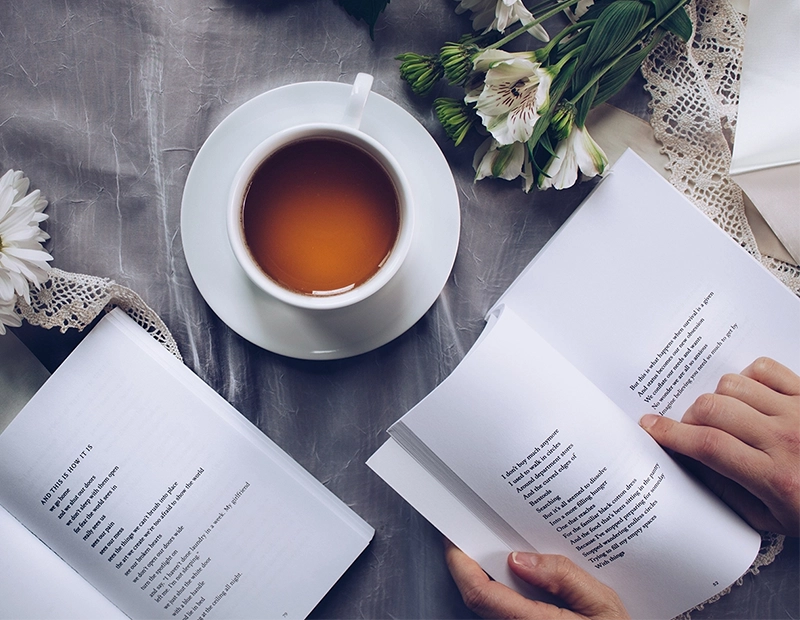
Poetry is a thought-provoking art form to get started in. Although there aren't any formal guidelines for writing poetry, learning how to do so may seem more challenging than learning how to produce a good essay or short story.
Poetry is an excellent literary genre you should explore. It's not only a fantastic way to develop your writing skills, but it's also a fantastic field in which to develop a career. But you should understand a few basics about poetry before you even consider starting. Before you even think of taking up poetry though, you should know a few things about how to write poetry.
What is a poem?
It is a written piece that is arranged according to its beauty, rhyme, and sound. They are meant to express a specific idea, emotion, or experience.
It is one of the oldest writing forms in human history. Various cultures have their own types of poetry, and poems are still relevant to this day. Some of the oldest forms of poetry are the Epic of Gilgamesh, which is around 4,000 years old.
What is the purpose of a poem?
There is really no set purpose for writing a poem. Some people write a poem to tell a story, while others do so to express a feeling. Overall, the main purpose of writing poetry is all about artistry, and conveying one’s own perceptions on life.
What are the different types of poem?
Throughout the centuries, poetry has evolved a great deal. Poems have been around in various forms for thousands of years, and they have evolved according to the culture and the times. Here are some of the types of poetry that you should try.
This type of poetry is considered one of the oldest in the world. One of the oldest poems in history, The Epic of Gilgamesh is an epic. It is a very lengthy poem, and is written in a more formal style. It usually features a hero or heroine, and recounts feats of strength and bravery. Here is an excerpt from an epic.
This dog won’t hunt. This horse won’t jump. You get the general drift. However, he keeps on trying, but the fire won’t burn, the kindling is wet, and the faint glow of the ember is weak and dying. He has no other choice then but to let It go and take a nap on the ground there, lying Next to her—for whom Dame Fortune has more Woes and tribulations yet in store.
- Orlando Furioso by Ludovico Ariosto
This kind of poetry is of Grecian origin, and is considered one of the oldest in the world. Ode is derived from the Grecian word ‘aiedein’ which means ‘chant or sing’. This was usually in praise of someone, event or even an object. The poetry is accompanied by musical instruments.
Happy the man, whose wish and care A few paternal acres bound Content to breathe his native air In his own ground.
- Ode on Solitude by Alexander Pope
The free verse format of poetry is relatively new and is by far the freest of all the poetry forms. Thus the name. Its main characteristic is that the verses don’t have to rhyme, and there is no limit to how many lines or stanzas that you could write.
I celebrate myself, and sing myself, And what I assume you shall assume, For every atom belonging to me as good belongs to you. I loafe and invite my soul, I lean and loafe at my ease observing a spear of summer grass…
- Song of Myself by Walt Whitman
This poetic style is centered on only one topic, which is death. It is written for a person who has passed away and often has melancholic themes. However, you could also give it an optimistic twist if you want.
Black milk of dawn we drink you at night we drink you mornings and noontime we drink you evenings we drink and we drink A man lives in the house he plays with the snakes he writes he writes when it turns dark to Deutschland your golden hair Margarete Your ashen hair Shulamit we dig a grave in the air there one lies at ease
- Fugue of Death by Paul Celan
Rhymed Poetry
As the name implies, this type of poetry is meant to rhyme. The poem should contain rhyming vowel sounds at specific moments. This rhyme scheme is a constant in most poems, and has been in use for centuries.
Out of the night that covers me, Black as the pit from pole to pole, I thank whatever gods may be For my unconquerable soul.
- Invictus by William Ernest Henley
A very old poetry form, haiku, originated in Japan in the 1600’s. It has gained a great deal of popularity over the years and is unique due to its short but potent format. It is limited to three lines. The first and third lines must have five syllables, and the second one has seven. They don’t have to rhyme, but must convey a specific emotion.
A world of dew, And within every dewdrop A world of struggle.
- A World of Dew by Kobayashi Issa
What are the elements of poetry?
Before you start the poetry writing process, it is important that you know what makes up a poem. Here are the five elements of poetry to get you started.
The meter is the basic rhythmic structure of the lines within your poem. The meter is usually made up two components. These are the exact number of syllables, and the overall pattern being emphasized on those syllables.
The rhyme within a poem occurs when the final or even more syllables match. These must occur within separate words. The rhyme in a poem usually occurs when the last two words in a verse rhyme with one another.
The term verse is often described as a single metrical line in a poem. While it could represent a single line, it could also represent the entire poem itself.
This is often described as the rhyming pattern contained within a poem. The composition of the scheme may contain words that rhyme within the stanza, or in alternating lines, or even in couplets.
The stanza is often described as a group of lines within the poem, and they could follow a regular rhyme and metrical scheme. They are mostly separated by blank spaces or indentations. Stanzas are meant to organize and give shape to a poem.
What are the rules of creating good poetry?
As an aspiring poet, there is really no set rule on how you should do your writing sessions. However, it is important that you should at least have a strategy on how to approach the poetry writing session, and how to get the right inspiration for your poetry writing. Here are some easy to follow rules to follow as a newbie poet.
• Read poetry
Before you start writing poetry, it is important that you are as well-read as possible. No matter how good you are at writing, if you have never really read or heard a poem before, then there is no way you’ll gain proficiency from it.
Take the time to check on the greats such as Pablo Neruda, Oscar Wilde, Sylvia Plath and so many other poets. The more content you read, the better you will be as a poet.
• Start slow
If you just started out as a poet, you should start slow. You could try your hand at poetry writing, but you should not really rush yourself to create great poetry right away. Remember that every writer has to start somewhere. So take your time, and just keep practicing.
• Choose different concepts
When it comes to writing poetry, it is a good idea to write about different concepts. The more concepts you write about, the more multi-faceted your poetry will be. Don’t limit yourself to just a few concepts. You will only limit your growth as a poet.
• Try out different poetry styles
There are many poetry styles, and you should try your hand in all of them. This does not mean that you should build your entire poetry career on them. However, you should at least try them out at least once. You will not only learn more as a poet, you may even expand your repertoire as a poet as well.
• Read out your work
As you write your poems, you should make sure to read them aloud as well. Remember that your poem has to rhyme and sound pleasant to the ear. The poem may sound good on paper, but it sounds awkward when read out. As a rule, you should read out your work during your writing sessions, and make the necessary modifications.
• Make storytelling a key goal
When you write a poem, storytelling must be a key goal. Remember that there should be a sense of cohesion in your writing. As a rule, you should try to tell a story whenever you write a poem. This will make your poems more immersive.
• Reach out to other poets
A great way to further improve your poetry is to reach out to other poets. As a new poet, you may not know the finer points of poetry. Even if you know the basics of poetry writing, you still have a lot to learn. By reaching out to other poets, you will be able to hone your poetry skills more effectively.
• Stay away from clichés
Clichés had become common in the poetry writing scene at the time. Clichés are concepts that have been overused to the extent that readers have grown tired of them. If you want to make your work as original as possible, it is important that you identify these common poetic clichés and never use them.
• Use the five senses
As you write your poem, it is important that you engage all your reader’s senses. This will make your work feel more immersive. When you write your poetry, try to engage all five senses, which are sight, taste, sound, touch, and smell.
• Utilize various writing tools
As you write a poem, you should be as ready as possible. Remember that you will be fully engaged during your writing sessions, so you should make sure that you have the right writing tools on hand.
If you prefer a handwritten approach, you could use a pen and notebook. This does have a more elegant and traditional feel. However, there is nothing wrong with using a tablet or laptop during your writing sessions.
You should also have a dictionary and thesaurus at the ready. You could even download writing software on your phone, tablet, or computer. These apps usually have spell-checks and even a built-in dictionary. This will make the poetry writing process so much easier.
• Have your work looked through
While having your poetry looked through may seem daunting, it is important that you have fellow poets look through it.
Remember that your ultimate goal is to have the public read your work, so it is best if fellow poets go through it. They will be able to point out your poems’s good and bad points and allow you to make the necessary changes.
• Write as much poetry as possible
If you want to be a true poet, it is important that you make poetry a part of your life. You won’t be able to become skilled at poetry overnight. As a rule, you should make poetry writing a habit. Don’t go into poetry in a half-hearted manner. Embrace the poet’s life with a passion, and write poetry every chance you get.
How to write a poem in 7 easy steps
Now that you have a strategy on how to approach the poetry writing process, it is now time to write a poem of your very own. Here are some quick and easy steps that you could follow.
1. Choose a fitting concept
Before you start writing a poem, it is important that you choose a concept. This could be practically anything under the sun. However, your concept should be something that you are passionate about. The more passionate you are about the concept, the more emotion and care you will be able to invest in the poem.
2. Have a free-writing session
Once you have chosen your concept, now is the time to do some free-writing. The free-writing session is like a feeling-out process. You don’t have to come up with a fully realized poem. This is a chance for you to get your bearings and write about the concept without any pressure.
3. Choose the style and form of your poem
After the free-writing session, it is now time to choose the style and form for your poem. There are many forms of poetry that you could write. Just make sure that you know how to write in your chosen style of poetry. Remember that each style has its set characteristics, and you should follow them to the letter.
4. Experiment with your verses
Once you have chosen the style and form of your poem, it is now time to work on your poem. Take your time with the process. Find a good place to write, and experiment with the right tone and words that you use. Don’t be afraid to take risks. Utilize your entire vocabulary of words, and enjoy the process.
5. Read it out loud to an audience
After you have finished writing your first draft of your poem, you should read it aloud to an audience. The audience could be family and friends, or better yet fellow poets. For a first-time poet, this may be a bit scary, but this is a fear that you will have to overcome.
6. Get feedback
Your audience will give you feedback on your poem. As a rule, you should not expect applause. Remember that you are just starting out. So your work won’t really be polished, and your audience will give you both positive and negative feedback. Don’t be offended if you do get negative feedback. Remember, this is for your own progress as a writer.
7. Revise your poem
When you get feedback from your audience, make sure to revise your poem as soon as possible. Revising your poem may seem tedious at first, but you should not think of it as correcting a mistake. Instead, you should think of the revision as a way to enhance your poetry writing skills.
Final thoughts
If you want to try your hand at poetry, it is important that you know the key elements of the writing form. With this article, you will know what constitutes a poem, what kinds of poems there are, and how to write them.
Become a Self-Published Author in 3 Simple Steps
Powered by Experts, Published by You. Reach 40,000+ Retailers & Libraries Around the World. Concierge Service. Tailored Packages. BBB Accredited Business. 100% Royalty Program.

Related Articles

If you are thinking of publishing a book of your very own, you should know that there are many facets to take account of. One such aspect is getting the right...

If there is one aspect of the book publishing process that you should really be careful of it is the self-editing process. This is because readers could be very intense and picky about...
Get started now
Privacy Policy: Writers Republic will not give, sell, or otherwise transfer addresses to any other party for the purposes of initiating, or enabling others to initiate, electronic mail messages.
Privacy Policy
Privacy commitment to our authors, effective date:.
Writers Republic abides to every author’s personal information being entrusted to us. And with that, we have stipulated a privacy policy that will show the processes of our ways in collating our clients’ personal details as needed in the publication process. As an established publishing company, our prohibitions strictly includes sharing, selling, or any illicit transactions of personal information from our clients.
Personal Details Needed:
- b) E-mail Address
- c) Phone Number(s)
- d) Physical/Billing Address
- e) Book Information
Authors can find our privacy policy through all forms of compiled and submitted information to either the company’s employees, through e-mail and phone, or from our website www.writersrepublic.com.
Information Usage
The use of the author’s personal information will take place in completing registrations, necessary materials to be used in publication arrangements with our specialists, and payment transactions that will be accomplished from our services and packages.
Registration Process
Users must fill out and complete any registration form before they can access anywhere in the Site as they wish to. These include the services, promos, blogs, and rest of the facets they can explore once they are registered to the system. The authors are entitled to a free publishing guide to give you a brief idea about self-publishing. Relevant features also include the Authors’ Lounge that teaches you some publishing tips you will be needing during the procedure.
Providing the user’s contact information like his/her name and email address during the registration will be necessary for our specialists in keeping in touch with the client anytime in regards to the manuscript submission, publishing, and finally, expanding his/her book’s publicity by any means. Our registered authors are free from accessing the website with his/her personal data or they may reach our customer service representatives through telephone or e-mail for further information and updates on our services. Aforementioned, all of the author’s personal data submitted to us will be kept confidential.
Information Sharing
Sharing of the client’s personal data to third parties is considered a violation unless it is conducted in a way it is indicated strictly in the privacy policy. Authors must understand that we are required to provide their personal data to other businesses that will to provide the required assistance in succeeding the publishing procedure, the following involves payment processor or a third party vendor benefit. These associated firms has established the consent to use the client’s personal data for necessary purposes of providing a quality service to Writers Republic.
In any case that Writers republic will conduct a union with associated companies, procurement, or sale of all or a share of its properties, authors will be notified through a notice in our website or sent through email of any ownership change or the utilization of the user’s personal data, in addition to the selections provided regarding his/ her personal information.
The company solely shares the collected information to the firms we do business with to acquaint them with the services or assistance needed for the publication. The data required plainly comprises with order completion, payment transactions, and the rest of the necessary processes. We can guarantee our users that the submission of these information will not be concomitant to any confidentialities that will identify a person’s identity. Privacy rules include prohibitions of sharing, or keeping of any private information for unrelated businesses to our company.
Data Protection
Our authors’ confidentiality comes first all the time. We follow the widely accepted preference in safekeeping the user’s personal data during its transmission and by the moment it is stored in our system. Writers Republic ensures both online and offline security of all information provided by our authors through the website. Any electronic transmittal over the internet may not be overall safe, hence the company cannot commit to an absolute protection.
The client’s agreement entails his/her responsibility in sustaining the account access, any personal information, benefits, company’s services, logins, and passwords. The author’s adherence to these sanctions include acquainting Writers Republic through phone, e-mail, or any means of communication, should there be any inadmissible access to the author’s account and all the applicable company data and services. Any direct, involuntary, minor, or distinctive damages caused due to client’s failure to adhere and/or inefficiency in utilizing the company’s site, services, and transactions will not be held liable to Writer’s Republic.
Any messages received or consequences resulted due to the user’s technical unfamiliarity or insufficient knowledge will not be held accountable to Writers Republic. Furthermore, any damages incurred due to negligence to the information entered or impermissible access will leave no liability to the company. These reparations may denote to but not restricted to revenue loss or reduced profit from the entire process.
Electronic Tracking Tools and Site Traffic Usage
Writers Republic website collects SSI (Standard Statistical Information) about the site visits and keeps a record of it as much as other websites do. Please be advised that the IP addresses, browser information, its timestamps, and referred pages are tracked for the sole purpose of maintenance and to construct the site noticeable and valuable as it can be. No accumulated data is joined routinely to other information we collect from our users.
The site server gathers fundamental technical data from our site visitors which include their IP address, domain label, and referral information. Alongside with the said above, the site also tracks the total count of the site activity from our online visitors for the intention of analyzing the flows of our site traffic. For our statistic intents, we may incorporate the information from one visitor with another into group facts, which will probably be shared on a cumulative base.
The technologies in particular: beacons, cookies, tags, and scripts are utilized by writersrepublic.com, our publishing & marketing associates, publicity service providers. These innovations are used in examining trends, website managing, tracking users’ navigation anywhere on the site and to collect public data about our user in entirety. We may obtain news founded on the utilization of these innovations by these firms on an individual as well as on an accumulated basis.
Writers Republic affiliates with third parties to offer positive features on website or to exhibit advertising based upon your web navigation activity also uses Local Storage Objects (LSOs) such as HTML 5 to gather and keep some data. Browsers may provide their own administrating tools in taking out HTML LSOs. To manage LSOs please click the link provided: http://www.macromedia.com/support/documentation/en/flashplayer/help/settings_manager07.html
Removing or Updating Your Information
Don’t hesitate to reach us directly anytime when you want to delete, update, or correct information you give over the phone or e-mail. For safety purposes, Writers Republic takes functional regulations in authenticating your identity before we grant you the access in changing and updating personal details. Your personal record and other data will be kept so long as you stay active as our site user or as necessary to offer you services. Please note that we’ll be using your information for necessary compliance of lawful commitments, imposing of agreements, and determination of disputes.
Contributors
Writers Republic will be requiring your contributors’ names to be indicated in the book publication when you opt to add them as contributors for your book publishing service. We will store your contributors’ personal details for the sole purpose of fixing their names on one of the pages of your book. Your contributors may reach us at [email protected] to request for removal of personal information from our system.
3rd Party Sites Link
Our company recommends you to carefully go over to the privacy policy of any website you visit or send personal information to. Our website comprises links to other sites whose norms and privacy regulations may contrast to ours. Accordingly, providing of personal data to these websites is administrated by their privacy rules and not ours.
Social Media Features & Widgets
Writers Republic website involves social media features such as: Facebook “Like” button and widget, such as the interactive mini-programs that run on our site or the “Share This” button. Please note that these features may set a cookie to allow the feature to appropriately function. It may also collect your IP address and which page you are visiting on our site. Your interactions with these features are either presented directly on our website or by a third party.
Announcements and Newsletters
Writers Republic will be inquiring your e-mail address if you’re interested to subscribe from our self-publishing updates, newsletters, articles, or periodic product and service announcements. You may choose to unsubscribe by clicking on the “Unsubscribe” button at the end part of the mail sent to you should you no longer want to receive emails from us.
Discounts and Promos
We offer promos and special deals on out publishing and marketing services from any given point of time. Thus, we may request for your contact details that includes your name, shipping address, demographic data, and educational attainment which will be utilized to inform the winners and prizes. Participation in any contest and promo is voluntary. The purpose for our promos, discounts, and contests, will be employed to assess and enhance eminence of or services to our clients.
Policy Changes
Any modifications or changes to be applied in our Privacy Policy will oblige Writers Republic to provide a notice on the website or by email before the change will take effect. Therefore, we recommend you to go over this page for any probable alterations and updates on our privacy norms. You may send us an email at [email protected] for all concerns, queries, and updates of personal details such as your email and mailing address. This also serves as your alternative to reach us if you want to withdraw your service or if you no longer want to receive any updates from our end.
Writers Republic will not be held accountable for any check payment issues, apart from the checks that are delivered to the address indicated below.
Writers Republic Publishing 515 Summit Ave. Unit R1, Union City, NJ 07087, USA
A Full Guide to Writing a Perfect Poem Analysis Essay
01 October, 2020
14 minutes read
Author: Elizabeth Brown
Poem analysis is one of the most complicated essay types. It requires the utmost creativity and dedication. Even those who regularly attend a literary class and have enough experience in poem analysis essay elaboration may face considerable difficulties while dealing with the particular poem. The given article aims to provide the detailed guidelines on how to write a poem analysis, elucidate the main principles of writing the essay of the given type, and share with you the handy tips that will help you get the highest score for your poetry analysis. In addition to developing analysis skills, you would be able to take advantage of the poetry analysis essay example to base your poetry analysis essay on, as well as learn how to find a way out in case you have no motivation and your creative assignment must be presented on time.
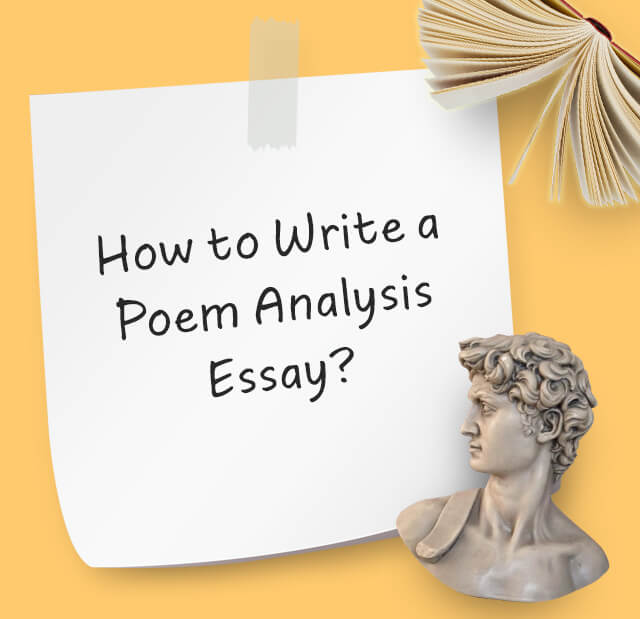
What Is a Poetry Analysis Essay?
A poetry analysis essay is a type of creative write-up that implies reviewing a poem from different perspectives by dealing with its structural, artistic, and functional pieces. Since the poetry expresses very complicated feelings that may have different meanings depending on the backgrounds of both author and reader, it would not be enough just to focus on the text of the poem you are going to analyze. Poetry has a lot more complex structure and cannot be considered without its special rhythm, images, as well as implied and obvious sense.
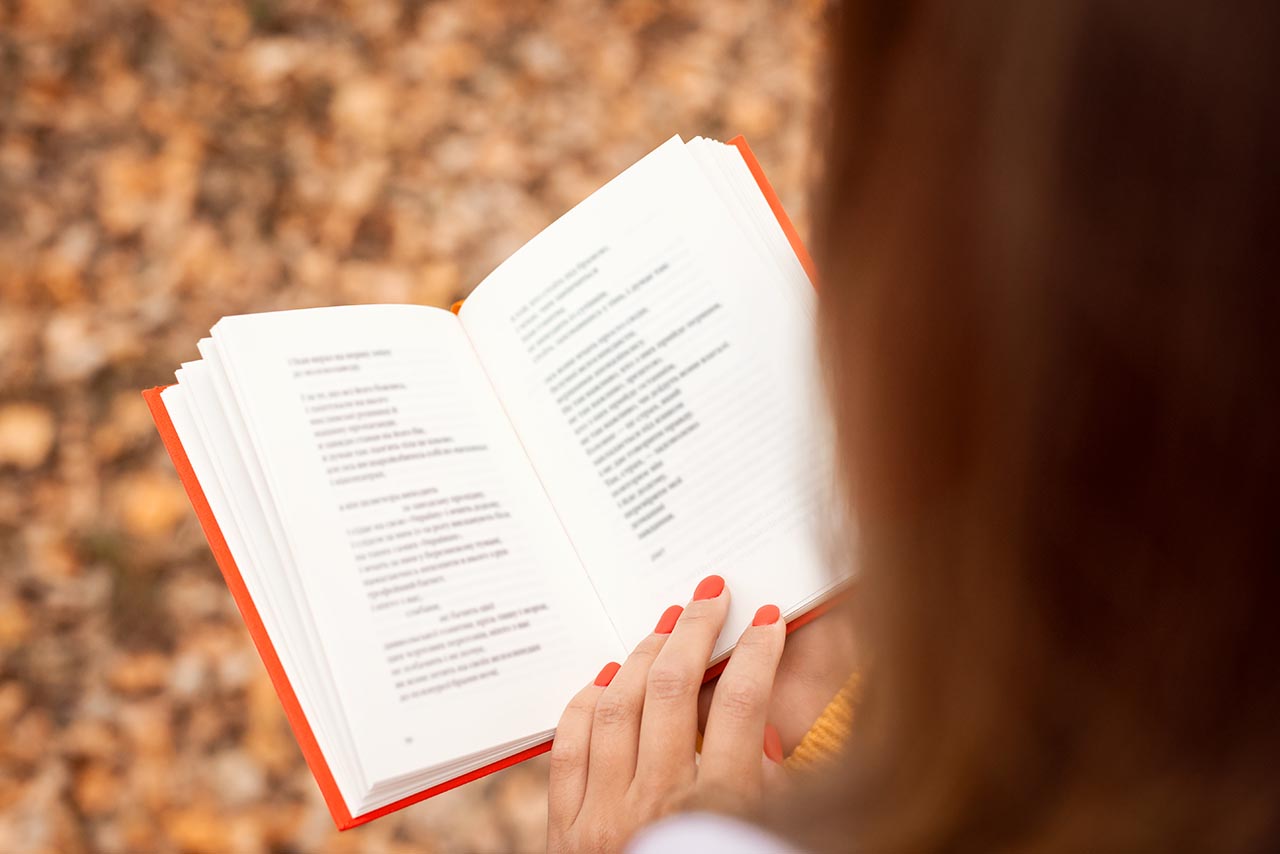
While analyzing the poem, the students need to do in-depth research as to its content, taking into account the effect the poetry has or may have on the readers.
Preparing for the Poetry Analysis Writing
The process of preparation for the poem analysis essay writing is almost as important as writing itself. Without completing these stages, you may be at risk of failing your creative assignment. Learn them carefully to remember once and for good.
Thoroughly read the poem several times
The rereading of the poem assigned for analysis will help to catch its concepts and ideas. You will have a possibility to define the rhythm of the poem, its type, and list the techniques applied by the author.
While identifying the type of the poem, you need to define whether you are dealing with:
- Lyric poem – the one that elucidates feelings, experiences, and the emotional state of the author. It is usually short and doesn’t contain any narration;
- Limerick – consists of 5 lines, the first, second, and fifth of which rhyme with one another;
- Sonnet – a poem consisting of 14 lines characterized by an iambic pentameter. William Shakespeare wrote sonnets which have made him famous;
- Ode – 10-line poem aimed at praising someone or something;
- Haiku – a short 3-line poem originated from Japan. It reflects the deep sense hidden behind the ordinary phenomena and events of the physical world;
- Free-verse – poetry with no rhyme.
The type of the poem usually affects its structure and content, so it is important to be aware of all the recognized kinds to set a proper beginning to your poetry analysis.
Find out more about the poem background
Find as much information as possible about the author of the poem, the cultural background of the period it was written in, preludes to its creation, etc. All these data will help you get a better understanding of the poem’s sense and explain much to you in terms of the concepts the poem contains.
Define a subject matter of the poem
This is one of the most challenging tasks since as a rule, the subject matter of the poem isn’t clearly stated by the poets. They don’t want the readers to know immediately what their piece of writing is about and suggest everyone find something different between the lines.
What is the subject matter? In a nutshell, it is the main idea of the poem. Usually, a poem may have a couple of subjects, that is why it is important to list each of them.
In order to correctly identify the goals of a definite poem, you would need to dive into the in-depth research.
Check the historical background of the poetry. The author might have been inspired to write a poem based on some events that occurred in those times or people he met. The lines you analyze may be generated by his reaction to some epoch events. All this information can be easily found online.
Choose poem theories you will support
In the variety of ideas the poem may convey, it is important to stick to only several most important messages you think the author wanted to share with the readers. Each of the listed ideas must be supported by the corresponding evidence as proof of your opinion.
The poetry analysis essay format allows elaborating on several theses that have the most value and weight. Try to build your writing not only on the pure facts that are obvious from the context but also your emotions and feelings the analyzed lines provoke in you.
How to Choose a Poem to Analyze?
If you are free to choose the piece of writing you will base your poem analysis essay on, it is better to select the one you are already familiar with. This may be your favorite poem or one that you have read and analyzed before. In case you face difficulties choosing the subject area of a particular poem, then the best way will be to focus on the idea you feel most confident about. In such a way, you would be able to elaborate on the topic and describe it more precisely.
Now, when you are familiar with the notion of the poetry analysis essay, it’s high time to proceed to poem analysis essay outline. Follow the steps mentioned below to ensure a brilliant structure to your creative assignment.
Best Poem Analysis Essay Topics
- Mother To Son Poem Analysis
- We Real Cool Poem Analysis
- Invictus Poem Analysis
- Richard Cory Poem Analysis
- Ozymandias Poem Analysis
- Barbie Doll Poem Analysis
- Caged Bird Poem Analysis
- Ulysses Poem Analysis
- Dover Beach Poem Analysis
- Annabelle Lee Poem Analysis
- Daddy Poem Analysis
- The Raven Poem Analysis
- The Second Coming Poem Analysis
- Still I Rise Poem Analysis
- If Poem Analysis
- Fire And Ice Poem Analysis
- My Papa’S Waltz Poem Analysis
- Harlem Poem Analysis
- Kubla Khan Poem Analysis
- I Too Poem Analysis
- The Juggler Poem Analysis
- The Fish Poem Analysis
- Jabberwocky Poem Analysis
- Charge Of The Light Brigade Poem Analysis
- The Road Not Taken Poem Analysis
- Landscape With The Fall Of Icarus Poem Analysis
- The History Teacher Poem Analysis
- One Art Poem Analysis
- The Wanderer Poem Analysis
- We Wear The Mask Poem Analysis
- There Will Come Soft Rains Poem Analysis
- Digging Poem Analysis
- The Highwayman Poem Analysis
- The Tyger Poem Analysis
- London Poem Analysis
- Sympathy Poem Analysis
- I Am Joaquin Poem Analysis
- This Is Just To Say Poem Analysis
- Sex Without Love Poem Analysis
- Strange Fruit Poem Analysis
- Dulce Et Decorum Est Poem Analysis
- Emily Dickinson Poem Analysis
- The Flea Poem Analysis
- The Lamb Poem Analysis
- Do Not Go Gentle Into That Good Night Poem Analysis
- My Last Duchess Poetry Analysis
Poem Analysis Essay Outline
As has already been stated, a poetry analysis essay is considered one of the most challenging tasks for the students. Despite the difficulties you may face while dealing with it, the structure of the given type of essay is quite simple. It consists of the introduction, body paragraphs, and the conclusion. In order to get a better understanding of the poem analysis essay structure, check the brief guidelines below.
Introduction
This will be the first section of your essay. The main purpose of the introductory paragraph is to give a reader an idea of what the essay is about and what theses it conveys. The introduction should start with the title of the essay and end with the thesis statement.
The main goal of the introduction is to make readers feel intrigued about the whole concept of the essay and serve as a hook to grab their attention. Include some interesting information about the author, the historical background of the poem, some poem trivia, etc. There is no need to make the introduction too extensive. On the contrary, it should be brief and logical.
Body Paragraphs
The body section should form the main part of poetry analysis. Make sure you have determined a clear focus for your analysis and are ready to elaborate on the main message and meaning of the poem. Mention the tone of the poetry, its speaker, try to describe the recipient of the poem’s idea. Don’t forget to identify the poetic devices and language the author uses to reach the main goals. Describe the imagery and symbolism of the poem, its sound and rhythm.
Try not to stick to too many ideas in your body section, since it may make your essay difficult to understand and too chaotic to perceive. Generalization, however, is also not welcomed. Try to be specific in the description of your perspective.
Make sure the transitions between your paragraphs are smooth and logical to make your essay flow coherent and easy to catch.
In a nutshell, the essay conclusion is a paraphrased thesis statement. Mention it again but in different words to remind the readers of the main purpose of your essay. Sum up the key claims and stress the most important information. The conclusion cannot contain any new ideas and should be used to create a strong impact on the reader. This is your last chance to share your opinion with the audience and convince them your essay is worth readers’ attention.
Problems with writing Your Poem Analysis Essay? Try our Essay Writer Service!
Poem Analysis Essay Examples
A good poem analysis essay example may serve as a real magic wand to your creative assignment. You may take a look at the structure the other essay authors have used, follow their tone, and get a great share of inspiration and motivation.
Check several poetry analysis essay examples that may be of great assistance:
- https://study.com/academy/lesson/poetry-analysis-essay-example-for-english-literature.html
- https://www.slideshare.net/mariefincher/poetry-analysis-essay
Writing Tips for a Poetry Analysis Essay
If you read carefully all the instructions on how to write a poetry analysis essay provided above, you have probably realized that this is not the easiest assignment on Earth. However, you cannot fail and should try your best to present a brilliant essay to get the highest score. To make your life even easier, check these handy tips on how to analysis poetry with a few little steps.
- In case you have a chance to choose a poem for analysis by yourself, try to focus on one you are familiar with, you are interested in, or your favorite one. The writing process will be smooth and easy in case you are working on the task you truly enjoy.
- Before you proceed to the analysis itself, read the poem out loud to your colleague or just to yourself. It will help you find out some hidden details and senses that may result in new ideas.
- Always check the meaning of words you don’t know. Poetry is quite a tricky phenomenon where a single word or phrase can completely change the meaning of the whole piece.
- Bother to double check if the conclusion of your essay is based on a single idea and is logically linked to the main body. Such an approach will demonstrate your certain focus and clearly elucidate your views.
- Read between the lines. Poetry is about senses and emotions – it rarely contains one clearly stated subject matter. Describe the hidden meanings and mention the feelings this has provoked in you. Try to elaborate a full picture that would be based on what is said and what is meant.
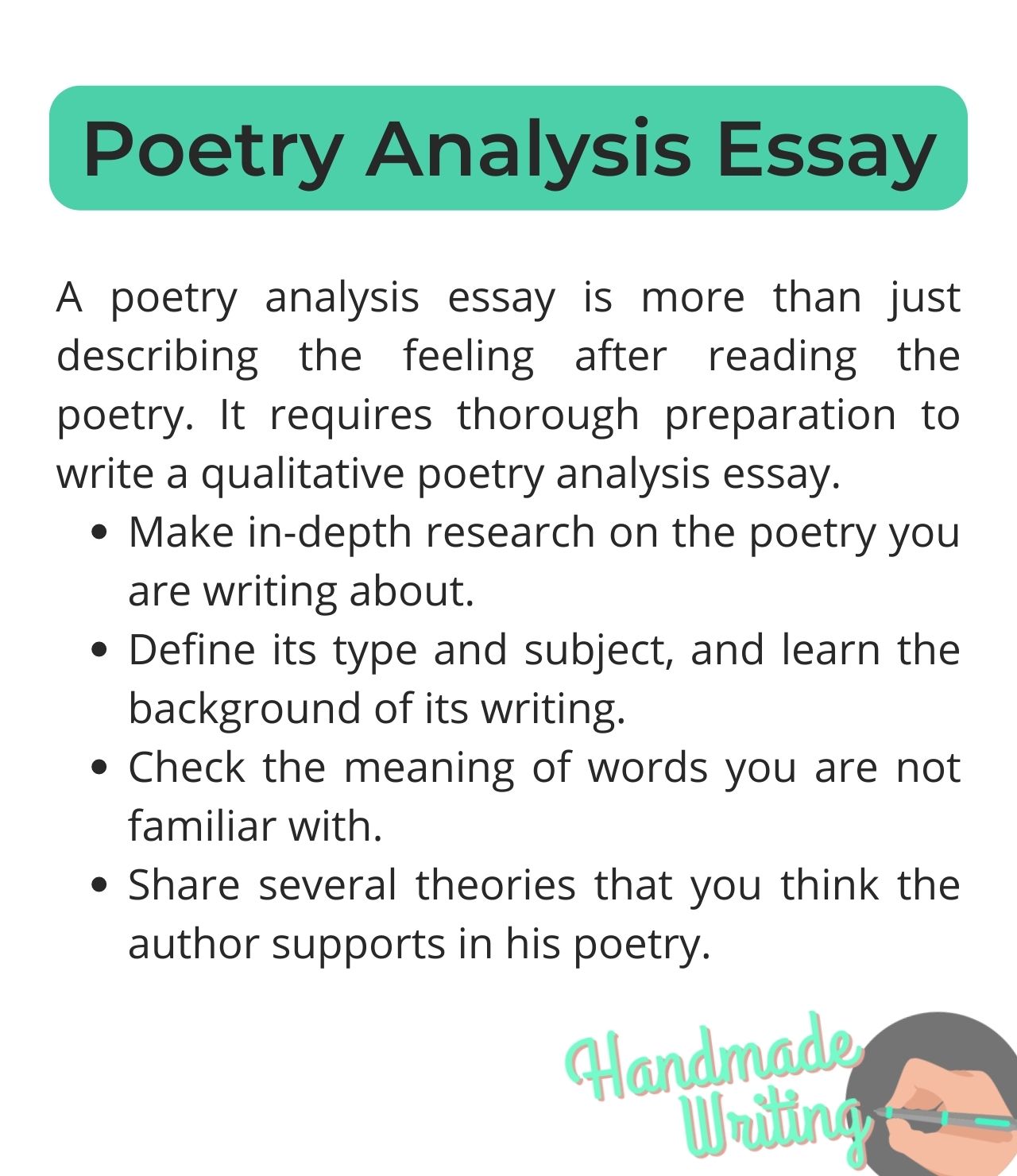
Write a Poetry Analysis Essay with HandmadeWriting
You may have hundreds of reasons why you can’t write a brilliant poem analysis essay. In addition to the fact that it is one of the most complicated creative assignments, you can have some personal issues. It can be anything from lots of homework, a part-time job, personal problems, lack of time, or just the absence of motivation. In any case, your main task is not to let all these factors influence your reputation and grades. A perfect way out may be asking the real pros of essay writing for professional help.
There are a lot of benefits why you should refer to the professional writing agencies in case you are not in the mood for elaborating your poetry analysis essay. We will only state the most important ones:
- You can be 100% sure your poem analysis essay will be completed brilliantly. All the research processes, outlines, structuring, editing, and proofreading will be performed instead of you.
- You will get an absolutely unique plagiarism-free piece of writing that deserves the highest score.
- All the authors are extremely creative, talented, and simply in love with poetry. Just tell them what poetry you would like to build your analysis on and enjoy a smooth essay with the logical structure and amazing content.
- Formatting will be done professionally and without any effort from your side. No need to waste your time on such a boring activity.
As you see, there are a lot of advantages to ordering your poetry analysis essay from HandmadeWriting . Having such a perfect essay example now will contribute to your inspiration and professional growth in future.

A life lesson in Romeo and Juliet taught by death
Due to human nature, we draw conclusions only when life gives us a lesson since the experience of others is not so effective and powerful. Therefore, when analyzing and sorting out common problems we face, we may trace a parallel with well-known book characters or real historical figures. Moreover, we often compare our situations with […]

Ethical Research Paper Topics
Writing a research paper on ethics is not an easy task, especially if you do not possess excellent writing skills and do not like to contemplate controversial questions. But an ethics course is obligatory in all higher education institutions, and students have to look for a way out and be creative. When you find an […]

Art Research Paper Topics
Students obtaining degrees in fine art and art & design programs most commonly need to write a paper on art topics. However, this subject is becoming more popular in educational institutions for expanding students’ horizons. Thus, both groups of receivers of education: those who are into arts and those who only get acquainted with art […]


How to Write Poetry: Writing Poetry for Beginners
Too often, new writers associate poetry with some of the most complicated and foreign poetic movements. No longer is poetry just Whitman, Blake, or Keats. Poetry has evolved in many ways, making it more accessible than ever to beginners.
As a small literary magazine who publishes new writers often, we are committed to sharing just how easy it is to start writing poetry. This is writing poetry for beginners.
Common Types of Poetry
There are various types of poetry, but that doesn’t mean you have to only write one or that you must follow all of the “rules.” Here are a few different types of poetry that you should become familiar with, especially when you’re a beginner.
Prose Poetry
Prose poetry has steadily been rising in popularity, and is perhaps one of the most accessible forms for beginner poets. This type of poetry is written in prose sentences, but can adopt many of the common attributes of poetry. For example, prose poems might focus on sound, tone, symbolism, metaphor, or a specific theme.
List of Famous Hats , by James Tate is an excellent example of a prose poem.
Napoleon’s hat is an obvious choice I guess to list as a famous hat, but that’s not the hat I have in mind. That was his hat for show. I am thinking of his private bathing cap, which in all honesty wasn’t much different than the one any jerk might buy at a corner drugstore now, except for two minor eccentricities. The first one isn’t even funny: Simply it was a white rubber bathing cap, but too small. Napoleon led such a hectic life ever since his childhood, even farther back than that, that he never had a chance to buy a new bathing cap and still as a grown-up–well, he didn’t really grow that much, but his head did: He was a pinhead at birth, and he used, until his death really, the same little tiny bathing cap that he was born in, and this meant that later it was very painful to him and gave him many headaches, as if he needed more. So, he had to vaseline his skull like crazy to even get the thing on. The second eccentricity was that it was a tricorn bathing cap. Scholars like to make a lot out of this, and it would be easy to do. My theory is simple-minded to be sure: that beneath his public head there was another head and it was a pyramid or something.
Narrative Poetry
If you read poetry, you’ve definitely read narrative poetry. This type of poetry, generally has an arch, a strong narrative voice, and a plot regardless of the length.
These poems can range in form and length. While they may “sound” like more complicated forms of poetry, they tend to be easier to follow.
Ever heard of William Shakespeare? Well, he’s the King of Sonnets. This type of poetry follows a specific form. Made up of 14 lines, iambic meter, and a ending rhyme scheme, sonnets are a more traditional type of poetry.
Enjoy Sonnet XXII , by Shakespeare
My glass shall not persuade me I am old, So long as youth and thou are of one date; But when in thee time’s furrows I behold, Then look I death my days should expiate. For all that beauty that doth cover thee Is but the seemly raiment of my heart, Which in thy breast doth live, as thine in me: How can I then be elder than thou art? O, therefore, love, be of thyself so wary As I, not for myself, but for thee will; Bearing thy heart, which I will keep so chary As tender nurse her babe from faring ill. Presume not on thy heart when mine is slain; Thou gavest me thine, not to give back again.
Epic Poetry
The hero’s journey is encapsulated in epic poetry . Epic poems are longer, and follow the trials and tribulations of a heroine. Many epics are rooted in mythology – this is why you may be familiar with some of them.
Homer’s The Odyssey is an example of an epic poem.
Free Verse Poetry
Ready to throw rules out the window? Free verse poetry follows no particular format, rhyme scheme, tone, or pattern. As a beginner, free verse is a fun way to start writing poetry because it does not place any limitations on the writer.
How to Write Poetry
Being a poet requires more than writing (yes, it’s true). By adopting some of these rules into your routine, you can ensure that your poetry grows and develops.
1. Read Poetry
While this sounds obvious, you’d be surprised to learn that few poets READ a lot of poetry. If you want to become a famous poet, you need to read the poets who can come before you.
Reading poetry can also help you identify which styles of poetry you’re interested in writing. Plus, it’s a great way to get inspired when writer’s block inevitably creeps out its head.
If you’re having trouble finding a great poetry book, or don’t want to commit to a collection of only one author, we highly recommend exploring poetry anthologies (our editor’s favorite is the The Penguin Anthology of Twentieth-Century American Poets).
2. Don’t Overcomplicate It
We understand that this may be easier said then done, however, starting small is a great way to start doing anything new.
For example, don’t try to start writing poetry by writing a 1,000 line epic poem . Instead, start with something shorter, like a 3 line haiku or minimalist poem .
Starting small will help you to grow your skills, and eventually help you grow your confidence to try harder forms of poetry.
3. Attend or Watch Local Poetry Slams / Groups
Creative spaces help to cultivate and hone your poetic style. We highly recommend you get involved in your local creative scene. This means attending poetry readings, joining a local writers or readers group, and maybe even sharing and editing your work in a workshop.
If you’re unable to connect with local poets, there are numerous spaces online to do so. Instagram, Twitter, and Medium are welcoming spaces for new poets and writers. From prompts, to resources and encouragement, you can find fellow poets online that can help keep you focused and driven in your pursuit to be a poet. You can follow us on Twitter or Instagram as well!
Pro Tip: There are some Instagram accounts that do awesome live poetry readings! Also, learn more about growing your poetry account on Instagram here.
This practice benefits poets in two ways. First, it encourages you to write due to the accountability factor. Second, it makes writing more community-driven versus you, being in a room, banging your head on the desk because you’re not feeling inspired.
How to Start A Poem
Many people want to write poetry, but they don’t know where to start. Luckily, it’s pretty easy to start a poem.
Do you write in other genres ? If so, what themes and topics do you usually explore?
For example, if you tend to write fantasy, use fantastical elements, like hidden forests, magic spells, and an evil-doer to inspire your poetry.
Start writing poetry using what you already know. Using this technique makes it much easier to start a poem. Additionally, examine and be present in your surroundings. Describe what you see, feel, smell. Use your senses to brainstorm possible poetry topics and to add poetic imagery to your writing.
If you need further inspiration, check out our Glossary of Poetic Terms . It may help nudge if you get stuck.
5 Poetry Writing Exercises
Still scratching your head when it comes to writing poetry? Try one or all of these poetry writing exercises. Writing exercises are a great way to get your creative juices flowing.
1.) Look at an old photo. Write about everything not in the picture. Feel free to move to and from reality.
2.) Describe a place you’ve never been to. Be as realistic as possible. The catch? It has to be a single word list.
3.) What’s the last dream you remember? Use colors and smells to describe it.
4.) Finish the sentence and continue the story… “When my head hits the pillow…”
5.) In 13 words, describe your oasis.
These poetry writing exercises can be recycled. Get creative, and exploratory. Write what comes to mind. These prompts are meant to help you begin your poetry writing journey. There are no right or wrong ways to approach them. And remember, revision always comes later on.
What Makes a Good Poem?
This is an age-old question, and one that writers now and into the future will keep asking.
But, honestly, what makes a good poem?
If someone reads your poem, and feels something – anything – then you’ve written a good poem. There are many people that will argue with this, but at the end of the day, it’s about how the writing makes you feel, not anyone else.
Yes, some of the common types of poetry follow a set of “rules,” but you’re the writer, and when you’re the writer, you get to write whatever kind of poetry you want.
No matter which forms you find yourself writing, all poetry elicits a response in readers. As a beginner, if you can stick to that rule of thumb, chances are you’re moving in the right poetic direction.
Want more tips? Read our 10 tips to improve your poetry .
How to Write Poetry FAQs
How can I teach myself poetry?
To teach yourself poetry, we recommend reading poetry and writing it. Reading more poetry will help you learn the various styles of poems. Once you learn about the varying types of poetry, consider trying to write a few lines about a topic that resonates with you.
What is the easiest poem to make?
Free verse poems are the easiest poems to make because they don’t have any rules. This allows you to be creative!
What is the best type of poetry?
The best type of poetry is a poem that leaves readers feeling inspired. This is very subjective; a poem you love might not be another person’s top choice – this is what makes poetry so amazing because it can cater to many audiences with different preferences.
Ready to Start Writing Poetry?
Poetry isn’t an inaccessible form of writing, but it can come across that way when you’re a beginner. Instead, writing poetry for beginners is pretty simple. Hopefully, this brief guide has made poetry feel more approachable. Now, it’s time to write poetry!
Be sure to check out our submissions page – we’d love to read what you’ve been working on!
Leave a Comment Cancel Reply
Your email address will not be published. Required fields are marked *
Save my name, email, and website in this browser for the next time I comment.
How to Write a Poem: Poetry Writing Guide for Beginners
Unlock your creative potential with our step-by-step poetry writing guide for beginners. Learn how to write a poem and express yourself through words.

Last updated on Feb 17th, 2024
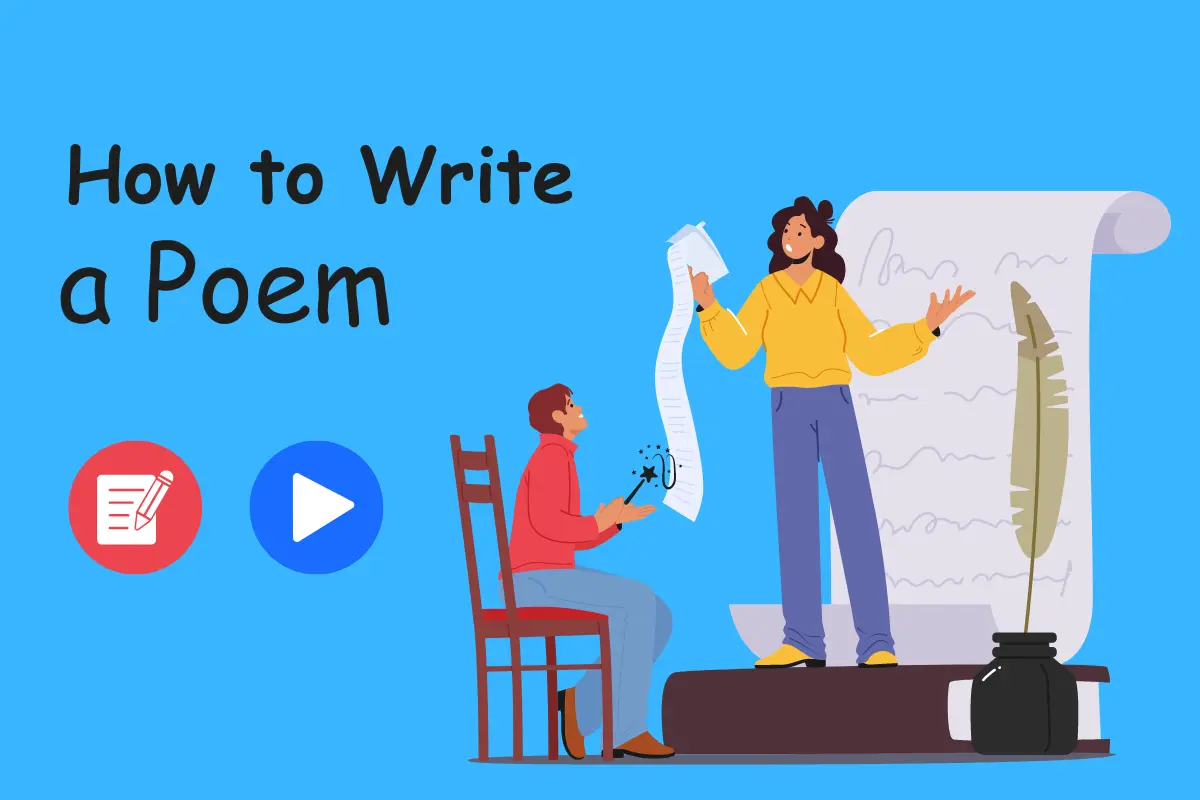
When you click on affiliate links on QuillMuse.com and make a purchase, you won’t pay a penny more, but we’ll get a small commission—this helps us keep up with publishing valuable content on QuillMuse. Read More .
Table of Contents
Do you think about how to write a poem? Some writers think that it is possible to write a poem without literature students. I think, of course, it is possible to write a poem without literature students. You just need proper guidelines.
Some content writers asked me how to write a poem. In case you do not consider yourself a writer, writing poetry challenges your phrasing, capacity to be concise, use of symbolism, rhythm, and narrating abilities.
On the off chance that the thought of writing poetry appears a little intimidating, you’re not alone. Poetry has exploded in the final few years, particularly since social media artists began to win over new poetry fans by filling timelines with relatable pieces of poetry. Within the ever-evolving world of poetry, it can be challenging to figure out where to start. Do not stress; the small interminable has you secured with something for everybody.
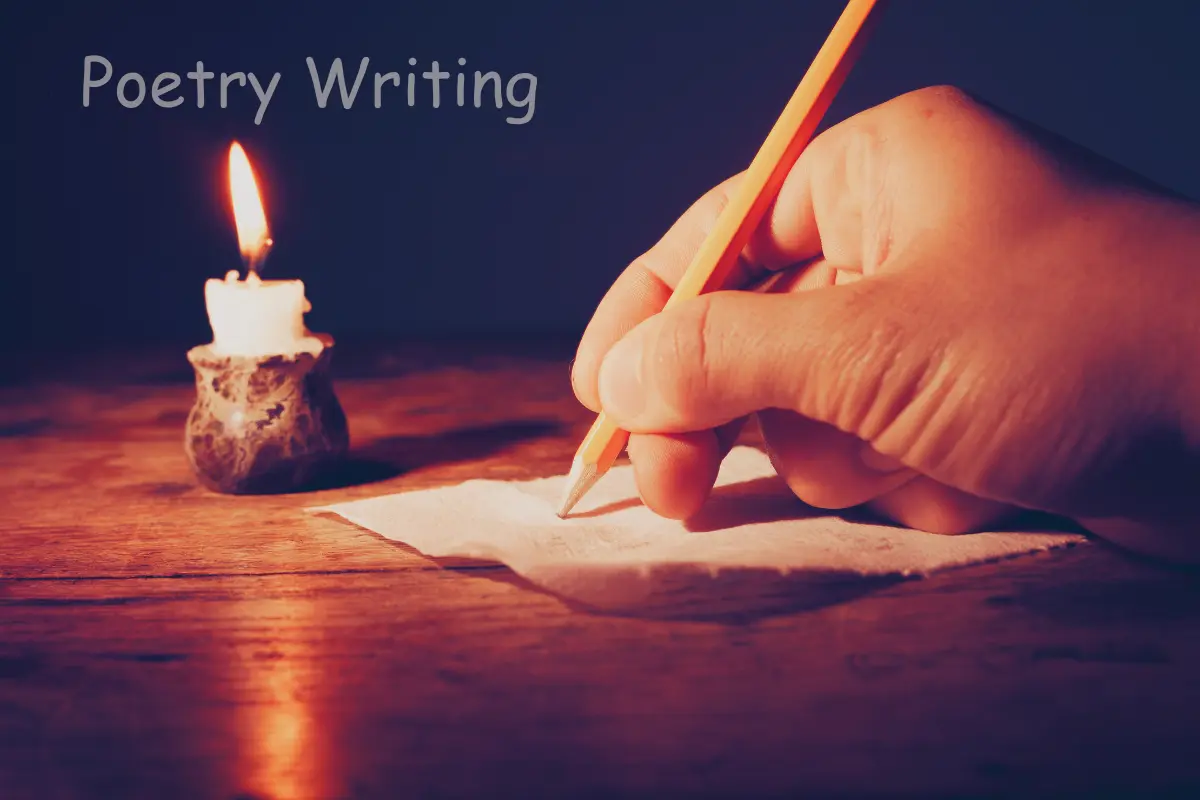
Follow these comprehensive steps on how to write a poem and become an expert poetry writer.
1. Study poetry
When you are curious about how to write a poem, be conscious that you must read so many poems that will make you write a poem easily.
Whereas this sounds self-evident, you’d be astounded to memorize that few writers Read a part of poetry. If you want to become a famous poet, you need to read about the writers who have come before you.
Reading poetry can also help you identify which styles of poetry you’re fascinated by. Additionally, it’s an awesome way to get motivated when a writer’s piece unavoidably creeps out of its head.
Read more: How to Write Your Life Story
2. Do not overcomplicate it
We get that this may be simpler said at that point done; however, beginning little may be an awesome way to begin doing anything modern.
For example, do not attempt to begin writing poetry by writing a 1,000-line epic lyric. Instead, begin with something shorter, like a 3-line poem.
Starting small will help you grow your abilities and inevitably help you develop your confidence to undertake harder shapes of verse.
3. Attend poetry groups
When learning how to write a poem, creative spaces offer assistance to develop and sharpen your wonderful fashion. We highly suggest you get included in your nearby inventive scene.
This implies going to poetry readings, joining nearby writers or readers gatherings, and perhaps indeed sharing and altering your work in a workshop.
In case you’re incapable of dealing with neighborhood poets, there are various spaces online to do so.
From prompts to assets and support, you’ll discover individual poets online who can offer assistance and keep you centered and driven in your interest in being a poet.
This practice benefits poets in two ways. To begin with, it energizes you to type in due to the responsibility figure. Second, it makes writing a more community-driven poem possible, like being in a room and slamming your head in the work area since you’re not feeling propelled.
4. Use poetry journals and prompts
This is another way to write a poem. There are few better ways to break through a writer’s square than by reveling in special poetry prompts. If you’re longing to form past poetry, take a guided writing journal.
By the way, these sorts of journals change broadly. A few journals plan for you how to write a poem every day; some journals and prompts provide to-do calendars, whereas others are there for you once you require them. Either way, writing prompts are a reliable way to induce you to think outside the box.
5. Discover your writing style
You have learned the essentials of how to write a poem. You’ve written a few poems you’re fixated on, and a few, well, you arrange on re-visiting. You experimented with different forms and styles.
Now, you’ll begin to characterize your poetic style. Right now, micropoetry is trending. This style is known to be short, basic, and to the point. Are you having a difficult time being limited and to the point?
Attempt to use metaphorical language, representation, and symbolism in your poem. Do your poems not fit in one style? There isn’t a strict policy on poetry writing. Use it as a way to precise yourself inventively and make it your possession.
6. Edit your poem
Editing is the most momentous thing about how to write a poem. Regardless of the poem you write, the more times you edit it, the more likely it is to be unprecedented, which will increase your enthusiasm for writing poetry. While you edit your poem, you can talk with experienced poets.
7. Choosing the topic
Knowing how to write a poem, try to choose a topic in which you are really interested.
Whether you’re assigned to write about any topic or you are choosing your own topic, it is vital that you simply choose your title. Anything can ignite your thoughts, so look around for motivation in case you do not know beyond any doubt what to write about.
Reading distinctive poems can, moreover, be an awesome offer of assistance. Topics can be current events, people in your life, nature, battles of individuals in society, etc. Make a note of all the things that you just took note of that drove you to select this point.
The exceptional way to begin is to begin with freewriting. You’ll be able to note down the focuses, and after that, let them coalesce in your intellect into a common shape and structure that suits a poem.
Read more: How to Write a Novel For Beginners
8. Capture your emotion
To analyze how to write a poem, you must write the poem through your emotions and inner feelings. Choose topics that are connected to your emotions. It will be beneficial for your poem writing. You can smoothly complete your poem.
Example of an emotional poem:
9. choose words carefully.
When you write poetry, you must be careful with your word choice. Because if you can’t choose the right words, then the audience will not be interested in reading your poem. So choose the words for the poem in such a way that they touch the heart of the audience.
10. Specific techniques
Though writers want to know how to write a poem, they can apply various techniques, such as freewriting, exploring new surroundings, or drawing inspiration from diverse sources, that can help break through creative barriers when writing poetry.
[Video] How to Write Poetry for Beginners
In conclusion, making a compelling poem requires a delicate balance of feeling, symbolism, and etymological creativity. By imbuing veritable feelings, making distinctive symbolism, playing with sound, choosing words mindfully, testing with structure, and grasping the modification process, you’ll open the poetic potential within you. Each poem may be an interesting expression, and through these tips, you’ll set out on a journey of self-discovery and imaginative exploration within the domain of poetry.
FAQs on How To Write a Poem
What is the exact format for writing a poem.
There is no specific format for writing a poem. Because it’s like free writing on your own.
How emotion is crucial to writing a compelling poem?
Writing your poem with veritable emotions can essentially improve its impact, making it a more important and relatable experience for readers.
How can I edit my poem to enhance its overall quality?
Editing is a crucial part of the writing process. Take time to edit your poem, focusing on clarity, rhythm, and coherence. Seeking feedback from others can provide valuable insights for improvement.
Can anyone learn to write poetry, or is it a skill naturally?
Writing poetry is a skill that can be gained with practice and a genuine passion for self-expression. While some may have natural sources, anyone can learn and improve their poetic abilities over time.
How we've reviewed this article
Our content is thoroughly researched and fact-checked using reputable sources. While we aim for precision, we encourage independent verification for complete confidence.
We keep our articles up-to-date regularly to ensure accuracy and relevance as new information becomes available.
- Current Version
- Feb 17th, 2024
- Feb 9th, 2024
Share this article
Leave a Comment Login Please login to comment 0 Comments Inline Feedbacks View all comments
Prev Previous Next Next

How to Become a Book Editor in 2024: A Complete Guide
Many of us love to read books. Also, they want to become a book editor. Behind every book writing there is a special contribution of the best editor. If the book is not edited well then the book is worthless even after publication. Editors play a key role in developing the
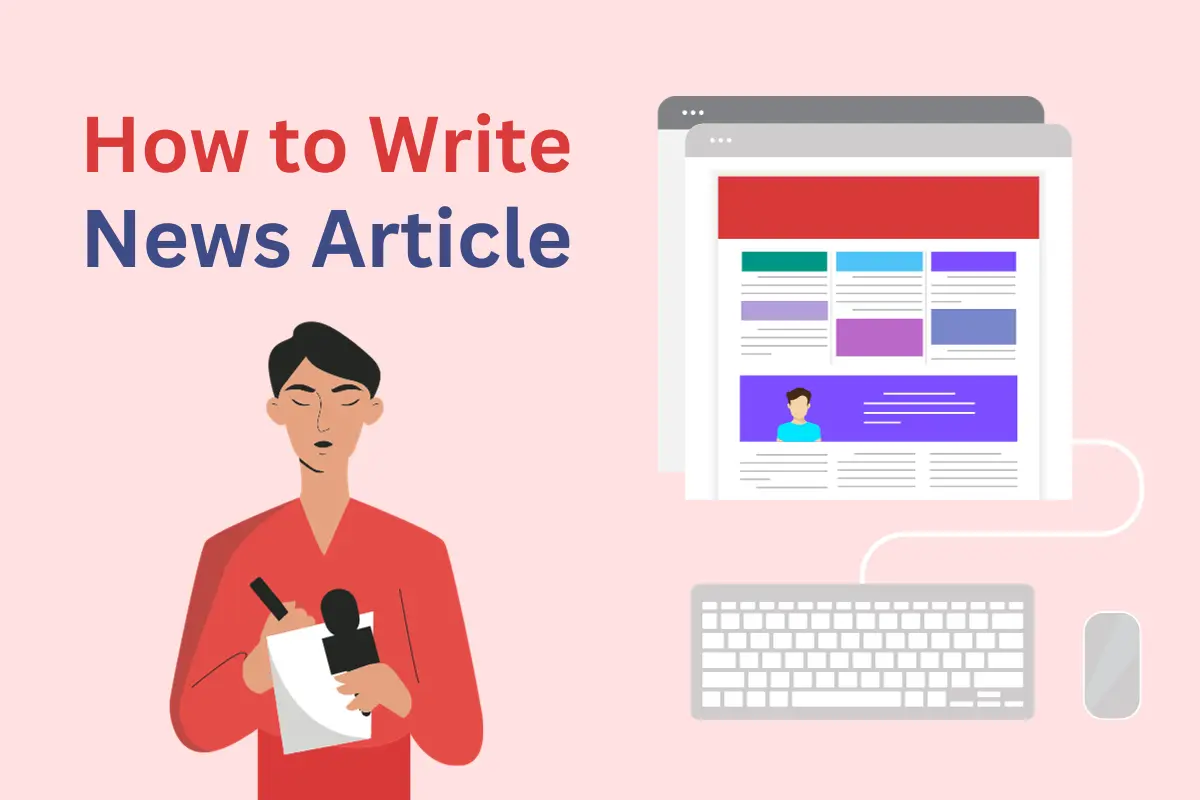
How to Write a News Article
A news article is a type of article through which the readers can get an idea about the world and various types of affairs, so if you want to write a news article properly, there are several important rules to follow. In today’s article, we will try to share some
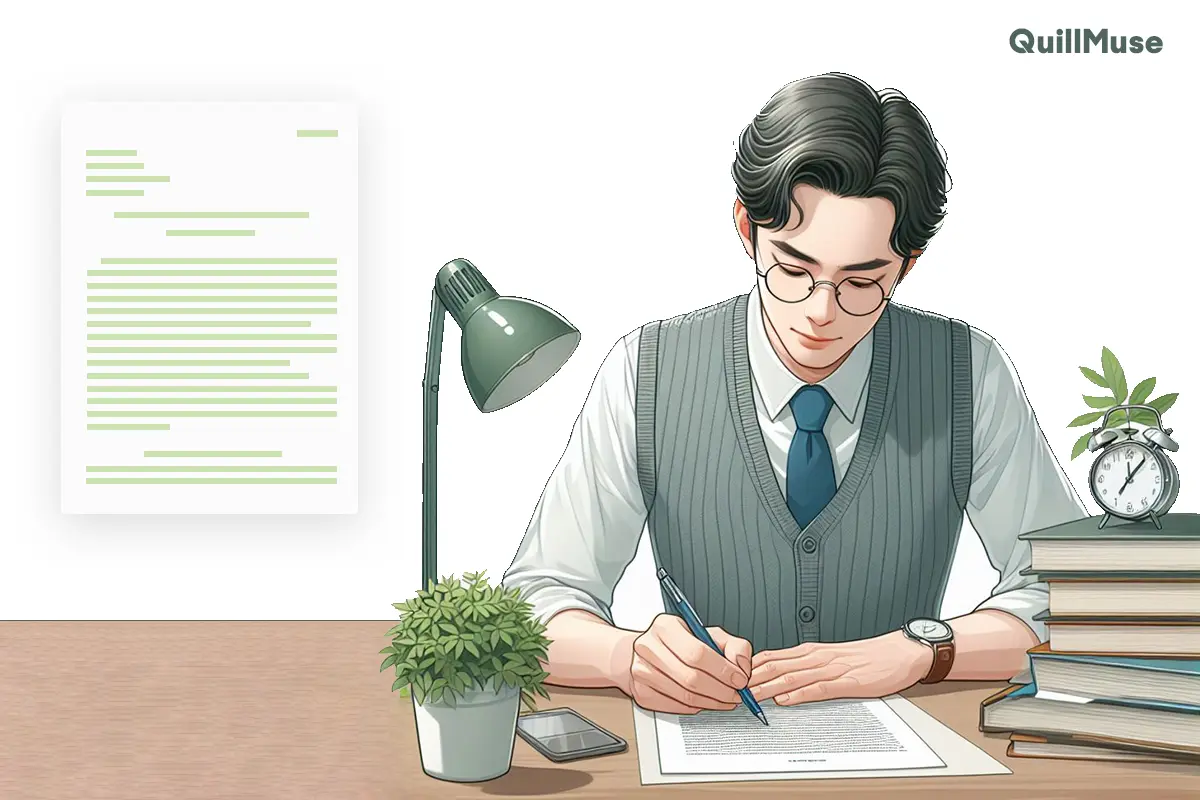
MLA Format Research Paper: Examples & 9 Steps Guide
Writing a research paper in MLA format requires attention to detail and allegiance to particular rules set by the Modern Language Association. From formatting the title page to citing sources accurately, MLA format is fundamental for academic success. Let’s start by synthesizing the key components and steps included in making
Report this article
Let us know if you notice any incorrect information about this article or if it was copied from others. We will take action against this article ASAP.
- Profile Page
- Edit Profile
- Add New Post
Read our Content Writing Guide .
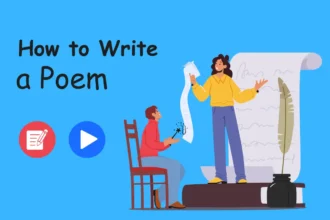
- EXPLORE Random Article
How to Write About Poetry
Last Updated: October 11, 2022 References
This article was co-authored by Christopher Taylor, PhD . Christopher Taylor is an Adjunct Assistant Professor of English at Austin Community College in Texas. He received his PhD in English Literature and Medieval Studies from the University of Texas at Austin in 2014. There are 10 references cited in this article, which can be found at the bottom of the page. This article has been viewed 5,134 times.
Poetry analysis is a common essay assignment in high school and college English classes. This is because writing about poetry helps you to hone important close reading and analytical skills, which are useful for a wide range of professions. Read the poem carefully and closely, and then craft your argument about the poem! Take time to revise what you have written to ensure that your poetry analysis is complete and insightful.
Analyzing the Content of the Poem

- Depending on the difficulty of the poem, it may take several read-throughs to fully understand what the poem is about. Take your time and read the poem as many times as you need to understand it.
- If you can, read the poem aloud so you can hear the rhythm and sounds in the poem. Sound is a very important part of poetry, so it's important to read it aloud.
- If you come across any words or phrases you don’t understand, look them up before you continue reading the poem.
If you get to choose the poem that you write about, choose one that you love! It will be much more fun to write about a poem that you really enjoy than one that seems safe or easy. Your paper is also likely to be better if you choose a poem you love!
- Syntax is the arrangement of the words in a sentence. For instance, you'd normally write, "Roses bloom all summer." However, a poet might write, "All summer roses bloom."

- A poem may have multiple themes. You may identify love, death, and sorrow all in 1 poem.
- For example, Robert Frost’s “Asking for Roses” features themes of loss, love, and fertility. Frost presents the theme of fertility by making biblical allusions to Mary and through floral imagery. The themes of loss and love are shown through memories of a love the narrator once had.

- For example, a limerick is a humorous poem, while an elegy is a sad, mournful poem.

- Understanding the poem's rhyme scheme can help you recognize words and phrases the poet wants to emphasize. Additionally, it will help you identify the form.
- For example, you might notice when you read “Asking for Roses” that the first line rhymes with the third line and the second line rhymes with the fourth line. This rhyme scheme of odd lines rhyming with other odd lines and even lines rhyming with other even lines continues throughout the poem. You'll also notice that the placement of "roses" signals that it's an important image in the poem. [5] X Research source

- Metaphor, which is when 2 things that are not similar are compared, such as a house and grief.
- Metonymy, which is when something stands in for something similar, such as “the crown” in place of the queen or king.
- Simile, which is when the author makes a comparison between 2 unlike things using “like” or “as,” such as by saying “Life is like a merry-go-round.”
- Personification, which is when something non-human gains human attributes, such as by saying “the tea kettle screamed” or “the painting mocked me.”
- Irony, which is when the surface meaning of something is different from what you may draw from it, such as getting laid off on the 10 year anniversary of your hire date.

- For example, you might consider the potential implications of the term “old-fashioned” in Robert Frost’s “Asking for Roses” given that it was written in 1915. [8] X Research source
- While historical and cultural context are important, don't base your entire analysis of the poem on it. Keep your focus on the words on the page.
- Use secondary sources to support your interpretation of the meaning of the poem.
Drafting Your Essay

- For example, if you have chosen to write about Robert Frost’s “Asking for Roses,” then you might open with something like: “Robert Frost’s 1915 poem ‘Asking for Roses’ follows a couple who walk together to a vacant house that is surrounded by rose bushes. The woman in the poem, called Mary, tells her cohort that, although the house appears to be empty, they must ask the owners of the house if they want any roses. The pair seem to be lovers since they are described as holding hands.”
Make sure that you avoid attributing the poem’s sentiments to the author of the poem. Instead, refer to the “speaker” or “narrator” of the poem.

- For example, if you are making an argument about Robert Frost’s “Asking for Roses,” your thesis might read: “The roses in Frost’s ‘Asking for Roses’ symbolize the children that a couple hope to have despite the risks, which is evidenced in the text by allusions to loss and fertility.”

- For example, if you want argue that the roses in Robert Frost’s “Asking for Roses” symbolize the children that the couple hope to have despite the potential for loss, you might start a paragraph by stating that “Frost opens his poem with a symbol for loss: ‘A house that lacks’ and ‘all littered with glass and plaster’ (1 & 3). [12] X Research source Then, follow this up by explaining why you see these as symbols of loss.
- Use additional paragraphs to build on your argument and strengthen it. Move through the poem chronologically or jump around depending on what works best for your argument.

- For example, if you are writing about Robert Frost’s “Asking for Roses,” then you might point to the ending of the poem, which indicates that the pair were finally given the roses they sought. This may help readers to see the symbols of loss more clearly.

- “A house that lacks, seemingly, mistress and master, / With doors that none but the wind ever closes,” (Frost 1-2). [15] X Research source
- So we must join hands in the dew coming coldly
- There in the hush of the wood that reposes,
- And turn and go up to the open door boldly,
- And knock to the echoes as beggars for roses. (Frost 9-12)
- The entry for the poem on your works cited page should include the following information: Poet’s Name. “Title of the Poem.” Title of Book or Anthology Publisher. Editor’s name (if included). Year. Page number(s).
Revising the Essay

- For example, after you finish drafting your essay, wait to look at it again until the next morning. Then, make notes on any additions, changes, or deletions you want to make.

- For example, if your reader does not fully understand the point you are making about the empty house in Frost’s “Asking for Roses,” then you might want to add more detail to clarify this section of your essay.

- Ask someone to listen to you read for additional feedback on how the essay sounds.
- Make sure to read any quoted passages out loud as well and double check them against the original to ensure accuracy. Accurate quotations and citations are essential to any academic essay. [18] X Research source
Revision is a crucial part of the writing process , but lots of people skip it or don't spend much time on it. Set your poetry essay apart by giving yourself at least a few days to revise your completed draft!
Expert Q&A
You might also like.

- ↑ https://writingcenter.unc.edu/tips-and-tools/poetry-explications/
- ↑ https://owl.purdue.edu/owl/subject_specific_writing/writing_in_literature/writing_about_poetry.html
- ↑ https://www.poets.org/poetsorg/poem/asking-roses
- ↑ https://www.hamilton.edu/academics/centers/writing/writing-resources/poetry
- ↑ https://www.bartleby.com/117/13.html
- ↑ https://owl.purdue.edu/owl/research_and_citation/mla_style/mla_formatting_and_style_guide/mla_formatting_quotations.html
- ↑ https://www.monmouth.edu/resources-for-writers/documents/mla-citing-poetry.pdf/
- ↑ https://writingcenter.fas.harvard.edu/pages/revising-draft
About this article

Did this article help you?

- About wikiHow
- Terms of Use
- Privacy Policy
- Do Not Sell or Share My Info
- Not Selling Info
What are your chances of acceptance?
Calculate for all schools, your chance of acceptance.
Your chancing factors
Extracurriculars.
How to Write the AP Lit Poetry Essay
What’s covered:.
- How to Write the AP Literature Poetry Essay
- Tips for Writing The AP Lit Poetry Essay
To strengthen your AP Literature Poetry Essay essay, make sure you prepare ahead of time by knowing how the test is structured, and how to prepare. In this post, we’ll cover the structure of the test and show you how you can write a great AP Literature Poetry Essay.
What is the AP Lit Poetry Essay?
The AP Literature exam has two sections. Section I contains 55 multiple choice questions, with 1 hour time allotted. This includes at least two prose fiction passages and two poetry passages.
Section II, on the other hand, is a free response section. Here, students write essays to 3 prompts. These prompts include a literary analysis of a poem, prose fiction, or in a work selected by the student. Because the AP Literature Exam is structured in a specific, predictable manner, it’s helpful to prepare yourself for the types of questions you’ll encounter on test day.
The Poetry Essay counts for one-third of the total essay section score, so it’s important to know how to approach this section. You’ll want to plan for about 40 minutes on this question, which is plenty of time to read and dissect the prompt, read and markup the poem, write a brief outline, and write a concise, well-thought out essay with a compelling analysis.
Tips for Writing the AP Lit Poetry Essay
1. focus on the process.
Writing is a process, and so is literary analysis. Think less about finding the right answer, or uncovering the correct meaning of the poem (there isn’t one, most of the time). Read the prompt over at least twice, asking yourself carefully what you need to look for as you read. Then, read the poem three times. Once, to get an overall sense of the poem. Second, start to get at nuance; circle anything that’s recurring, underline important language and diction , and note important images or metaphors. In your annotations, you want to think about figurative language , and poetic structure and form . Third, pay attention to subtle shifts in the poem: does the form break, is there an interruption of some sort? When analyzing poetry, it’s important to get a sense of the big picture first, and then zoom in on the details.
2. Craft a Compelling Thesis
No matter the prompt, you will always need to respond with a substantive thesis. A meaty thesis contains complexity rather than broad generalizations , and points to specifics in the poem.
By examining the colloquial language in Gwendolyn Brooks’s poem, “We Real Cool”, we can see the tension of choosing to be “cool”. This raises important ideas about education, structure, and routine, and the consequences of living to be “real cool”.
Notice how the thesis provides a roadmap of what is to follow in the essay , and identifies key ideas that the essay will explore. It is specific, and not vague. The thesis provides a bigger picture of the text, while zooming in the colloquial language the speaker uses.
A good thesis points out the why as much as the what . Notice how in the above example, the thesis discusses language in the poem as it connects to a bigger message about the poem. For example, it’s not enough to discuss Emily Dickinson’s enjambment and hyphens. A good thesis will make a compelling argument about why those infamous Dickinson hyphens are so widely questioned and examined. Perhaps a good thesis might suggest that this unique literary device is more about self-examination and the lapse in our own judgement.
3. Use Textual Evidence
To support your thesis, always use textual evidence . When you are creating an outline, choose a handful of lines in the poem that will help illuminate your argument. Make sure each claim in your essay is followed by textual evidence, either in the form of a paraphrase, or direct quote . Then, explain exactly how the textual evidence supports your argument . Using this structure will help keep you on track as you write, so that your argument follows a clear narrative that a reader will be able to follow.
Your essay will need to contain both description of the poem, and analysis . Remember that your job isn’t to describe or paraphrase every aspect of the poem. You also need lots of rich analysis, so be sure to balance your writing by moving from explicit description to deeper analysis.
4. Strong Organization and Grammar
A great essay for the AP Literature Exam will contain an introduction with a thesis (not necessarily always the last sentence of the paragraph), body paragraphs that contain clear topic sentences, and a conclusion . Be sure to spend time thinking about your organization before you write the paper. Once you start writing, you only want to think about content. It’s helpful to write a quick outline before writing your essay.
There’s nothing worse than a strong argument with awkward sentences, grammatical errors and spelling mistakes. Make sure to proofread your work before submitting it. Carefully edit your work, paying attention to any run-on sentences, subject-verb agreement, commas, and spelling. You’d be surprised how many mistakes you’ll catch just by rereading your work.
Common Mistakes on the AP Literature Poetry Essay
It can be helpful to know what not to do when it comes time to prepare for the AP Literature Poetry Essay. Here are some common mistakes students make on the AP Literature Poetry Essay:
1. Thesis is not arguable and is too general
Your thesis should be arguable, and indicate the central ideas you will discuss in your essay. Read the prompt carefully and craft your thesis in light of what the prompt asks you to do. If the prompt mentions specific literary devices, find a way to tie those into your thesis. In your thesis, you want to connect to the meaning of the poem itself and what you feel the poet intended when using those particular literary devices.
2. Using vague, general statements rather than focusing on analysis of the poem
Always stay close to the text when writing the AP Literature Poetry Essay. Remember that your job is not to paraphrase but to analyze. Keep explicit descriptions of the poem concise, and spend the majority of your time writing strong analysis backed up by textual evidence.
3. Not using transitions to connect between paragraphs
Make sure it’s not jarring to the reader when you switch to a new idea in a new paragraph. Use transitions and strong topic sentences to seamlessly blend your ideas together into a cohesive essay that flows well and is easy to follow.
4. Textual evidence is lacking or not fully explained
Always include quotes from the text and reference specifics whenever you can. Introduce your quote briefly, and then explain how the quote connects back to the topic sentence after. Think about why the quotes connect back to the poet’s central ideas.
5. Not writing an outline
Of course, to write a fully developed essay you’ll need to spend a few minutes planning out your essay. Write a quick outline with a thesis, paragraph topics and a list of quotes that support your central ideas before getting started.
To improve your writing, take a look at these essay samples from the College Board, with scoring guidelines and commentary.
How Will AP Scores Affect My College Chances?
While you can self-report AP scores, they don’t really affect your admissions chances . Schools are more interested in how you performed in the actual class, as your grades impact your GPA. To understand how your GPA impacts your college chances, use our free chancing engine . We’ll let you know your personal chance of acceptance at over 1500 schools, plus give you tips for improving your profile.
Related CollegeVine Blog Posts


Learn How to Write Poetry with the 17 Best Books on Writing Poetry
Are you looking to learn how to write poetry? Fear not: you’re in the right place. This epic list of the 17 best books on writing poetry has you covered. Whether you’re looking for poetry books for beginners, the best poetry journals, or want to level up your poetry writing skills as an intermediate to advanced poet, these 17 essential books about learning poetry writing has something for everyone.
For more books on creative writing, be sure to check out Broke by Books’ list of the 20 + best books on creative writing .
The 20+ Best Books on Creative Writing
This post contains affiliate links
The 17 Best Books to Learn How to Write Poetry
Blackout poetry journal: poetic therapy by kathryn maloney.

One of the most popular forms of poetry today is the art of blackout poetry, in which poets scratch or blackout text to reveal a poem in the words that remain. Get started with Kathryn Maloney’s Blackout Poetry Journal , which includes excerpts from random books in the public domain. This poetry writing journal is a great way to learn how to get started with writing blackout poetry. Start with the second book in the series for a variety of source texts to black out, rather than working with one full book.
How to read it: Purchase Blackout Poetry Journal on Amazon
The complete rhyming dictionary by clement wood.

A few years ago, I was working on a collection of children’s poetry. I loved exploring different rhyming poetic forms, like the limerick and the double dactyl. I purchased Clement Wood’s The Complete Rhyming Dictionary and was in good hands. This complete rhyming dictionary is a must-have for anyone writing rhyming poetry. What was so impressive was how comprehensive this dictionary was its depth, with over 60,000 entries, of obscure and popular words alike. You’ll easily be able to search by one-, two-, and three-syllable rhymes.
How to read it: Purchase The Complete Rhyming Dictionary on Amazon
The everything writing poetry book by tina d. eliopulos and todd scott moffett.

This comprehensive and easily approachable guide to writing poetry has all the knowledge you need to get started with writing poetry. You’ll learn how to write poetry, starting by getting up to speed with styles, structures, form, and expression. This unpretentious book about how to write poetry for beginners will have you penning verse in no time. I especially appreciate deep-dive chapters on the sound of poetry, poetic language, and meter. The Everything Writing Poetry Book packs a lot of instruction in one book and is definitely the equivalent of an intro to poetry writing course you’d get in college.
How to read it: Purchase The Everything Writing Poetry Book on Amazon
How to write poetry: a guided journal with prompts by christopher salerno and kelsea habecker.

There’s no better to get started with writing poetry than jumping in and getting your page dirty. In How to Write Poetry: A Guided Journal with Prompts , you’ll be taken through the process of writing poetry. This guided poetry journal pairs lessons on rhyme, meter, tone, persona, as well as movement-specific topics like protest poetry and object poetry, with practical prompts and space to test out what you’ve learned. By the time you’ve worked through this poetry writing workbook, you’ll be well on your way to being a poet.
How to read it: Purchase How to Write Poetry: A Guided Journal with Prompts on Amazon
A little book on form by robert hass.

This book is a little misleading. Yes, it’s a book on poetic form. But it’s by no means a “little book.” And you know what? That’s totally okay. I’m happy to learn how to write poetry with this guide to poetic form authored by the Pulitzer Prize-winning, National Book Award-winning and former U.S. Poet Laureate Robert Hass. And there’s definitely a lot of wisdom on writing poetry in this essential book on how to write poetry. You’ll learn the core poetic forms, from ones you’ve heard of, like sonnets, with more obscure forms like the ode, the elegy, and Georgic. Yes: this definitive book on form belongs in the library of any poet.
How to read it: Purchase A Little Book on Form on Amazon
Merriam-webster’s rhyming dictionary by merriam webster.

Writing rhyming poetry? Get all the words you need with Merriam-Webster’s Rhyming Dictionary . This comprehensive rhyming dictionary counts more than 70,000 rhyming words, as well as an alphabetical listing of rhyming sounds plus pronunciation for each entry. Brand names are also included for those looking to rhyme with proper nouns.
How to read it: Purchase Merriam-Webster’s Rhyming Dictionary
My poetry journal by pretty nifty publishing.

This poetry writing journal will teach you how to write poetry in a jiffy. My Poetry Journal contains 48 creative prompts about a variety of topics—from fairy tale characters to giving thanks to snowflakes—and plenty of blank space to get to work on converting your inspiration into poems. This poetry writing workbook is a great book for learning how to write poetry.
How to read it: Purchase My Poetry Journal on Amazon
One poem a day by nadia hayes.

Poetry writing for beginners starts with making writing poems a daily habit. Get started with writing poetry with Nadia Hayes’ One Poem a Day . This poetry writing workbook includes creative prompts—like finishing a sonnet, filling in the blanks of a partially completed poem, penning haiku, and writing free verse—and plenty of space to scratch out your own poems.
How to read it: Purchase One Poem a Day on Amazon
The poet’s companion by kim addonizio and dorianne laux.

This sacred text on how to write poetry was first published in 1997, but still, more than twenty years later, it remains a classic. Brief essays on poetry topics like simile and metaphor, voice and style, and repetition will launch you into becoming a confident poem, but its the chapters on the writing life and cultivating a core identity as a poet that make this book special. The Poet’s Companion also includes a long list of twenty-minute writing exercises for that extra spark of creativity.
How to read it: Purchase The Poet’s Companion on Amazon
A poetry handbook by mary oliver.

Who better to teach you how to write poetry than legendary American poet Mary Oliver? Although Oliver died in 2019, her legacy lives long in her enduring brilliance, and in A Poetry Handbook , one of the best poetry writing books, beginning poets can glean some of Oliver’s wisdom. Though this book about learning how to write poetry is brief at just 130 pages, it’s chock full of priceless advice and instruction on how to write poetry for beginners. Oliver covers topics like how to read poems, sound, free verse, imagery, and the all-important revision. If I were to recommend just one book on poetry writing, it’d be Mary Oliver’s A Poetry Handbook .
How to read it: Purchase A Poetry Handbook on Amazon
Poetry: tools & techniques by john c. goodwood.

In John C. Goodwood’s Poetry: Tools & Techniques readers get all they need to know to write not just any old poetry, but good poetry. This book is definitely for poets who feel confident writing verse but want to level up their game a big way. Intermediate and advanced poets will learn a lot from Goodwood’s book, which covers topics like overusing common parts of speech, assonance and alliteration, punctuation, structuring a poem, and effective openings and effective closings. Poetry: Tools & Techniques has all the craft knowledge and instruction of a college seminar in writing poetry.
How to read it: Purchase Poetry: Tools & Techniques on Amazon
The practicing poet: writing beyond the basics by diane lockward.

Diane Lockward’s The Practicing Poet is a poetry writing guide for intermediate and advanced poets who want to level up their craft. Going beyond the basics of writing poetry, Lockward’s book is structured around ten sections each dedicated to key poetic concepts, like managing sentences and line breaks and perfecting tone, as well as big-concept lessons on finding new material, publishing, manuscript formatting, and even giving a reading.
How to read it: Purchase The Practicing Poet on Amazon
Smash poetry journal by robert lee brewer.

This poetry writing journal will help you on your way to learning how to write poetry. Containing 125 writing ideas to spark your creativity, ignite your inspiration, and explore yourself as a person and a poet, Smash Poetry Journal also contains mini lessons on writing poetry for beginners. Have writer’s block? Or just don’t know how to start a poem? Let the Smash Poetry Journal be your ticket to amplifying your creativity.
How to read it: Purchase Smash Poetry Journal on Amazon
Write a collection of poetry in a year by mv frankland.

Want to compile your first collection of poetry? Then MV Frankland’s Write a Collection of Poetry in a Year is the right book for you. It might sound intimidating to craft a poetry collection in just a year, but Frankland walks you through it step by step, starting with writing, revising, and perfecting one poem a week. If you’re an ambitious poet who has your sights on publication, this book will help you get ready to share your poetry with others through a published collection. This book also contains useful information on the nitty-gritty’s of being a professional poet, covering topics like networking, creating an online platform, and publishing (traditional and independent).
How to read it: Purchase Write a Collection of Poetry in a Year on Amazon
Writing haiku by bruce ross.

One of the most popular poetic forms is the humble haiku. Even if you find writing a sestina or villanelle intimidating, you can surely manage a haiku. Get started on learning more about haiku with Bruce Ross’ Writing Haiku , your trusty guide to crafting effective haiku and related forms like tanka, renga, and haiga. You’ll come away having perfected your haiku poetry through examples, prompts, and exercises.
How to read it: Purchase Writing Haiku on Amazon
Writing poetry: creative and critical approaches by chad davison and gregory fraser.

If you’d prefer a more collegiate approach for learning how to write poetry, check out Writing Poetry: Creative and Critical Approaches . One of the best poetry books for beginners, this book is not just about writing poetry, but how you analyze and appreciate poetry on a critical level. After getting my MFA in Writing for Children and Young Adults, I definitely appreciate learning the craft of writing. And in Writing Poetry: Creative and Critical Approaches you’ll hone your craft wisdom that will make you not only a better reader of poetry, but a better poet overall.
How to read it: Purchase Writing Poetry: Creative and Critical Approaches on Amazon
Writing Poetry to Save Your Life by Maria Mazziotti Gillan

Our final book in this list of the best books on writing poetry is Maria Mazziotti Gillan’s Writing Poetry to Save Your Life . This poetry writing workbook is chock full of inspiring prompts and creative exercises that will make you do deep inner emotional work while also helping you hone your identity as a poet. The idea is to tap into cathartic expression that fuels the best poems and poets of all time.
How to read it: Purchase Writing Poetry to Save Your Life on Amazon
Share this:, you might be interested in.

- Four Romance Writing Tips from TITANIC

The 20 Best Novels in Verse for Teens

The Complete List of MasterClass Writing Classes for 2023
- Latest posts
Sarah S. Davis is the founder of Broke by Books, a blog about her journey as a schizoaffective disorder bipolar type writer and reader. Sarah's writing about books has appeared on Book Riot, Electric Literature, Kirkus Reviews, BookRags, PsychCentral, and more. She has a BA in English from the University of Pennsylvania, a Master of Library and Information Science from Clarion University, and an MFA in Writing for Children and Young Adults from Vermont College of Fine Arts.
The Best Books of 2023
15 best new christmas romance books for 2023.
- October 2023 Recommended Reads

The 25 Best Romance Short Story Collections

The 20 Best Mystery Books for Teens
Latest from book lists.

Welcome to my roundup of the Best Books of 2023! Wow, can

In this list of the best new Christmas romance books for 2023,

Learn How to Read Tea Leaves with the Best Tea Leaf Reading Books
If you want to learn how to read tea leaves, there’s no

The 30 Best Politics Books of All Time
The best politics books of all time capture the drama of political
The best novels in verse for teens reflect a diversity of voices,
Poetry Essay | Ultimate Guide to Writing a Poetry Analysis Essay
Mar 23, 2024 | 0 comments

Mar 23, 2024 | Blog | 0 comments
Poetry can evoke emotions, challenge perceptions, and connect us to the human experience in profound ways. One effective way to deepen our understanding and appreciation of poetry is through writing a poetry analysis essay. This type of essay requires a close examination and interpretation of a poem, exploring its themes, imagery, structure, and language to uncover the underlying meaning and impact of the poet’s work. In this poetry essay guide, we will delve into the key steps and techniques for writing a successful poetry analysis essay. From selecting a poem to analyzing its elements and crafting a compelling thesis, we will provide you with the tools and insights needed to engage with poetry and share your interpretation with readers effectively. Join us on this journey of exploring the beauty and complexity of poetic expression through the art of the poetry analysis essay.
The basics of poetry analysis
Definition of poetry .
Poetry is a diverse form of literary art that uses concentrated, imaginative language to convey emotions, ideas, or narratives. It explores the human experience through creative expression, often using figurative language, symbolism, and carefully crafted sound devices.
Elements of poetry to consider in analysis
When analyzing a poem, there are several key elements to examine:
Theme – The central idea, message, or insight the poem explores
Tone – The attitude or emotion projected by the poet toward the subject
Diction – The specific word choices used and their denotations/connotations
Imagery – The vivid sensory details that appeal to the five senses
Figurative Language – Metaphors, similes, symbols, personification, etc.
Sound Devices – Rhyme, rhythm, meter, alliteration, assonance, etc. Speaker – The voice and perspective through which the poem is narrated
Structure – The organization of lines, stanzas, and verse forms like sonnets
Syntax – How phrases, clauses, and sentences are arranged
Historical/Cultural Context – The poem’s relationship to its period
Different types of poetry
Lyric – Expresses personal emotions and observations
Narrative – Tells a story, has characters and plot
Epic – Long, heroic narrative poems celebrating legendary events
Sonnet – 14 lines with varying rhyme schemes like Shakespearean, Petrarchan
Haiku – 3 lines of 5-7-5 syllables, focused on nature
Free Verse – No set rhyme, rhythm, or structural requirements
Concrete – Words arranged in a visual shape or design
How to Choose a Topic for a Poetry Analysis Essay?
Selecting an engaging and meaningful topic is crucial for crafting an insightful poetry analysis essay. Here’s a brief guide on how to choose a compelling topic that will allow you to dive deep into the poem’s complexities and effectively convey your understanding.
- Read widely and choose a poem that resonates with you. A poem you find thought-provoking, emotionally moving, or intellectually stimulating will make the analysis process more rewarding. Poetry is a form that demands emotional investment from both the writer and the reader.
- Consider the poem’s theme or subject matter. Poems that explore universal human experiences like love, loss, identity, or the natural world often provide fertile ground for analysis. However, don’t disregard poems touching on niche topics – an unconventional theme can lead to an original perspective.
- Examine the poetic devices and techniques the author employs. A poem rich in figurative language, unique structure, vivid imagery, or symbolism will give you ample material to unpack and analyze in your essay. The prospect of delving into the poet’s craft can shape an engaging topic.
- For academic essays, refer to the criteria provided by your instructor. They may suggest certain eras, authors, or poetic forms to focus on based on the course curriculum or preferences. Following guidelines ensure your topic meets the requirements.
- Research the poet’s background and the poem’s historical/cultural context. Sometimes biographical details or the period’s literary movements can inspire intriguing topic angles exploring how these elements influenced the poem.
- Compare and contrast plural poems in one essay. Identifying an interesting parallel, opposition, or dialogue between two works can lead to a compelling comparative analysis topic examining their stylistic or thematic links.
- Trust your instincts if a particular poem line, image, or turn of phrase deeply moves or provokes you. Pursuing the personal response can yield an honest, impassioned analysis filled with fresh insights into the poem’s impact.
Steps to writing a poetry analysis essay

Before you start analyzing poems, you may also want to check out our article on “ How to Write a Character Analysis Essay ” for tips on analyzing works of literature from a different angle.
Step 1: How to Choose a Poem for Analysis?
Selecting the right poem is a crucial first step in writing an effective poetry analysis essay. Here are some factors to consider when choosing a poem to analyze:
- Choose a poem that piques your interest, evokes an emotional response, or resonates with you in some way. Your genuine engagement with the poem will shine through in your analysis.
- Look for a poem with layers of meaning, rich imagery, and effective use of literary devices. Simple, straightforward poems may not provide enough material for an in-depth analysis.
- Complex poems often explore profound themes, employ intricate symbolism, or experiment with unique structures.
- If you are writing for a class assignment, your instructor may provide a list of approved poems or specify criteria for your selection.
- Make sure your chosen poem meets the assignment guidelines regarding length, era, style, or other specifications.
- Choosing a well-known or canonical poem can be beneficial, as there may be existing scholarly analysis and criticism to reference.
- However, don’t shy away from lesser-known or contemporary poems if they resonate with you.
- Consider selecting a poem that relates to your personal experiences, cultural background, or areas of interest.
- This personal connection can provide deeper insight and a unique perspective for your analysis.
For a closer look at breaking down and evaluating works of literature, you may also want to check out our article on “ How to Write a Critical Analysis Essay .”
Step 2: Close reading and annotating the poem
To write an insightful poem analysis essay, you must closely read and carefully analyze the poem. Here are some key steps:
- Read the poem multiple times, out loud if possible. Poetry is meant to be heard as well as seen on the page.
- Figures of speech (metaphor, simile, personification, etc.)
- Imagery and symbolic language
- Sound devices (rhyme, alliteration, assonance, etc.)
- Repeated words, phrases, or structural elements
- Shifts in tone, voice, or rhythm
- Unfamiliar words to define later
- Identify the core poetic techniques the author uses throughout. Make notes on how techniques like imagery, metaphor, and sound devices contribute to the poem’s meaning.
- Determine the poem’s structure – lines per stanza, rhyme scheme, meter, etc. Understand how the structure shapes the poem.
- Note your initial impressions, questions, and reactions as you read. What ideas, emotions, or images stand out?
- If writing about two poems, do a close reading of each, noting similarities and differences to analyze.
- Research the poem’s background – when it was written, the author’s life, and historical context. This can provide insights.
- Create a poem analysis essay outline to organize your reading observations into a coherent argument supported by evidence from the text.
Step 3: Identifying the poem’s theme and message
After closely reading and annotating the poem, the next crucial step is to identify its central theme or message. This will become the foundation for your thesis statement and analysis in the poem analysis essay.
- Determine the overarching idea or insight the poem explores. What is the poet trying to communicate about the human condition, nature, love, grief, or other profound topics?
- Consider the poet’s purpose or motivation for writing this particular poem. What inspired them to write about this theme or subject matter?
- Analyze how the poet develops and reinforces the theme through their use of poetic techniques like imagery, symbolism, metaphor, and tone.
- Look for recurring motifs, phrases, or images that represent the central idea. The poem’s title can also provide clues about the theme.
- If writing about two poems, identify similarities and differences in their themes to potentially analyze how the poets approach a shared concept.
- Develop a clear, specific thesis statement that encapsulates your interpretation of the poem’s primary theme or message. This will be the central argument you support throughout your essay.
- Use examples from the poem itself – quotes, Details about devices – to back up your understanding of the poem’s deeper meaning and themes.
Step 4: Analyzing the poem’s structure and form
After identifying the central theme, you need to analyze how the poem’s structure and form contribute to its meaning. This is a key component of a strong poetry essay.
- Examine the overall structure – the number of lines, stanzas, and organization of the poem. Discuss patterns you notice.
- Identify the specific poetic form the poem follows – sonnet, villanelle, haiku, free verse, etc. Each form has rules and conventions to analyze.
- Look at the lines of the poem closely. Discuss the length, meter, and rhythm. Do the lines have a consistent pattern or intentional variations?
- Analyze the rhyme scheme, if present. How does the rhyme contribute to the poem’s sound, flow, and meaning?
- For poetic forms like the sonnet, examine how the structure’s divisions (quatrains, octave, sestet, etc.) develop the theme.
- Consider how the poem’s shape on the page impacts its reading and interpretation, especially for concrete/visual poems.
- Use examples and quotes from the poem to illustrate your analysis of the structure’s role and effects.
- If comparing two poems, discuss similarities and differences in their forms and how structure conveys meaning differently.
- Avoid just describing the structure – analyze how its elements function to reinforce the poem’s themes, tone, and imagery.
Step 5: Considering the poet’s background and historical context
While analyzing the poem itself should be the primary focus, also considering the poet’s biographical background and the historical context in which the poem was written can provide valuable insights to include in your poetry essay.
- Research basic biographical details about the poet – their life experiences, period, major influences, etc. Look for connections between their background and the poem’s themes/subject matter.
- Investigate the cultural and historical events/movements happening when the poem was written. How might this context have shaped the poet’s perspective and literary approach?
- For older poems, gain an understanding of the values, norms, and literary traditions of that era that the poet was operating within or reacting against.
- If the poem directly references specific people, places, or events from history, analyze how this contextual knowledge adds layers of meaning.
- Be cautious about making biographical assumptions, but if there are clear parallels between the poet’s life and the poem’s content, you can discuss potential real-world inspirations.
- For very old poems, research how concepts like symbolism, metaphors, etc. may have had different interpretations in that historical context.
- Use this contextual information to enrich your analysis, not just summarize biographical facts. Blend it with a close reading of the poem’s techniques.
- If comparing two poems from different eras, you can contrast how their respective contexts influenced the works.
Step 6: Writing the essay introduction, body paragraphs, and conclusion
After closely analyzing the poem and gathering your insights, it’s time to start writing an essay on poetry. A well-structured essay will effectively convey your interpretation and understanding of the poem.
Introduction:
- Begin with an engaging hook or quote from the poem to grab the reader’s attention.
- Provide a brief background on the poem and author to establish context.
- Clearly state your thesis statement – the central argument or interpretation you will prove in the essay.
Body Paragraphs:
- In the body, build your analysis around the key elements used in the poem like imagery, metaphors, structure, etc.
- Dedicate paragraphs to examining individual poetic techniques and how they develop the theme.
- Use quotes and examples directly from the analyzed poem as evidence to support your assertions.
- Explain your reasoning for how a device or element contributes to the meaning of the poem.
- Use transitions to logically connect your analysis points.
- If doing a comparative analysis essay on two poems, compare and contrast their use of techniques.
- Avoid summarizing the poem’s plot or content – the focus should be interpreting the techniques.
Conclusion:
- Restate your thesis statement in new words to reinforce your overarching analysis.
- Summarize the main points you made about how poetic elements conveyed the deeper idea of the poem.
- Leave the reader with final insights into the resonance or significance of the work.
- For analysis essay tips, refer to examples of strong poetry essay conclusions as templates.
Poem Analysis Essay Tips
Writing an essay analyzing a poem is a wonderful way to appreciate and understand the nuances of poetic terms and literary devices used in poetry. Here are some essential tips to make your poem analysis essay insightful and effective:
- Read the poem carefully multiple times to fully absorb its meaning, tone, imagery, and other aspects. Poetry must be experienced deeply before you can analyze it well.
- Choose a topic or thesis that allows you to make an interesting argument. Don’t just summarize the poem – develop an interpretation of its deeper significance or the poet’s craft.
- Support your thesis with specific examples and quotes from the poem. Use line numbers when citing and analyze how the textual evidence reinforces your points.
- Focus on analyzing poetic techniques like metaphor, structure, rhyme, and other literary devices. Explain how they contribute to the overall meaning and effects of the poem.
- For guidance, review poetry analysis templates or strong essay examples to model your piece after. They showcase ways to structure your argument convincingly.
- Understand the poem’s context – when it was written, the author’s background and the literary period/movement can provide helpful insights.
- Write a clear introduction that engages the reader and establishes the poem/poet you’ll examine. End with your thesis statement.
- Organize body paragraphs effectively, separating analyses of different techniques or poetic elements into distinct sections.
- Aim for coherence by using good transitions and maintaining a logical essay structure. Avoid jumping around between points haphazardly.
- Revise carefully, strengthening wordy or vague descriptions and fixing grammar/spelling errors. Have someone provide a fresh perspective before finalizing.
- Make your conclusion meaningful by showing how your interpretation matters – why this poem is significant or what deeper truth it expresses.
Poetry Analysis Essay Outline
I. Introduction
A. Hook – Grab the reader’s attention with a quote, anecdote, or interesting description related to the poem.
B. Brief background on the poem and poet – Provide context on the work and author you’ll be analyzing.
C. Thesis statement – Your overarching argument or interpretation of the poem’s meaning and significance.
II. Body Paragraph 1 A. Topic sentence stating your first analytical point about the poem.
B. Evidence from the text to support your point (quotes, examples of poetic techniques used).
C. Explanation of how this evidence develops the theme, meaning, or shows the poet’s craft.
III. Body Paragraph 2
A. Topic sentence for your second analytical point.
B. Relevant quotes and examples from the poem as evidence.
C. Analysis of how this evidence ties into your interpretation of the poem.
IV. Body Paragraph 3 (and more as needed)
A. State your third, fourth, etc. analytical claims about the poem’s elements.
B. Incorporate quotes and point to specific poetic devices examined. C. Explain your reasoning behind this evidence supporting your analysis.
V. Conclusion
A. Restate your thesis in new words to reinforce your interpretation.
B. Summarize the key points and poetic techniques you analyzed.
C. End with insight into the broader significance of this poem and analysis.
- Focus each body paragraph on one main analytical point about the poem
- Use transitions to logically connect your paragraphs
- Integrate relevant background information about the poet/context
- Use quotes judiciously as evidence, not mere summary
- Aim to analyze “how” and “why” poetic devices were used, not just identify them
Poetry Analysis Essay Example
Technical poetry analysis worksheet, poetry analysis essay template.
V. Examples of poetry analysis essays A. Analyzing a classic poem (e.g. William Wordsworth’s “I Wandered Lonely as a Cloud”) B. Analyzing a modern poem (e.g. Langston Hughes’ “Harlem”) C. Comparing and contrasting two different poems
Poem Analysis Essay FAQs
How do i write a poetry essay.
To write a poetry essay, you need to carefully analyze a poem and craft a well-organized essay that explores its themes, literary devices, and overall message. Start by selecting a poem that resonates with you and closely read it multiple times to understand its nuances and meanings. Then, develop a thesis statement that encapsulates your interpretation of the poem and supports it with evidence from the text. Structure your essay with an introduction, body paragraphs, and a conclusion that ties everything together.
How to write a poetry essay step by step PDF?
If you are looking for a step-by-step guide on writing poetry essay in PDF format, you can start by researching credible online resources or academic websites that provide detailed instructions. You can also consult writing guides or textbooks that focus on literary analysis to find a comprehensive outline of the process. Additionally, online writing platforms or educational institutions may offer downloadable PDFs with specific instructions on crafting a poetry essay.
How do you describe a poem in an essay?
When describing a poem in an essay, it is essential to pay attention to various elements such as the poem’s structure, language, imagery, themes, and tone. Begin by providing background information about the poet and the context of the poem. Then, delve into a detailed analysis of the poem’s content, focusing on its form, rhyme scheme, and literary devices used. Discuss the emotional impact of the poem on the reader and interpret its deeper meanings through close textual analysis.
How to analyse a poem?
When analyzing a poem, you should first read it several times to grasp its literal meaning and then move on to examine its figurative elements such as symbolism, metaphors, and themes. Pay attention to the poet’s use of language, imagery, and structure to uncover deeper layers of meaning. Consider the historical and cultural context in which the poem was written to better understand its significance. Finally, synthesize your analysis into a coherent essay that offers a compelling interpretation of the poem.

I am dedicated to creating engaging blog posts that provide valuable insights and advice to help students excel in their studies. From study tips to time management strategies, my goal is to empower students to reach their full potential.
People Also Read
- Mastering the Art of Expert Essay Writing: A Comprehensive Guide for Students
- 11 Essay Outline Templates to Structure Your Writing
- 500 Word Essay - Writing Guide and Examples

Most Popular Articles
Racism thesis statement example, how to rephrase a thesis statement, capstone project topic suggestions, how to write an abortion essay, should students wear school uniforms essay, list causal essay topics write, respect essay, signal words, great synonyms, informative speech examples, essay writing guide, introduction paragraph for an essay, argumentative essay writing, essay outline templates, write an autobiographical essay, personal narrative essay ideas, descriptive essay writing, how to write a reflective-essay, how to write a lab report abstract, how to write a grant proposal, point of view in an essay, debate topics for youth at church, theatre research paper topics, privacy overview.
- Craft and Criticism
- Fiction and Poetry
- News and Culture
- Lit Hub Radio
- Reading Lists

- Literary Criticism
- Craft and Advice
- In Conversation
- On Translation
- Short Story
- From the Novel
- Bookstores and Libraries
- Film and TV
- Art and Photography
- Freeman’s
- The Virtual Book Channel
- Behind the Mic
- Beyond the Page
- The Cosmic Library
- The Critic and Her Publics
- Emergence Magazine
- Fiction/Non/Fiction
- First Draft: A Dialogue on Writing
- Future Fables
- The History of Literature
- I’m a Writer But
- Just the Right Book
- Lit Century
- The Literary Life with Mitchell Kaplan
- New Books Network
- Tor Presents: Voyage Into Genre
- Windham-Campbell Prizes Podcast
- Write-minded
- The Best of the Decade
- Best Reviewed Books
- BookMarks Daily Giveaway
- The Daily Thrill
- CrimeReads Daily Giveaway
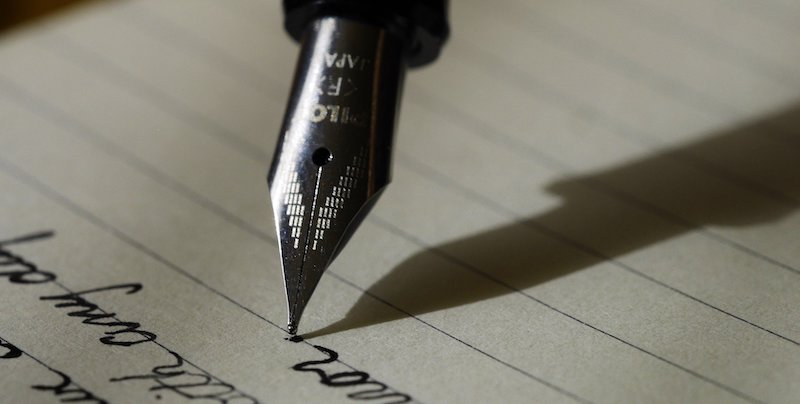
50 Ways to End a Poem
Emily Skaja Has Some Recommendations for Making a Strong Exit
This first appeared in Lit Hub’s Craft of Writing newsletter— sign up here .
When T.S. Eliot wrote, “April is the cruelest month,” he was not talking about trying and failing to meet the 30 poems in 30 days National Poetry Month challenge. But you could be forgiven for repeating this phrase ominously to yourself as you start to lose your stride around day 6, staring into your Notes app as you try to decipher what “death as a wall of cornflakes!!!” meant to the 3 AM self who urgently transcribed this line straight from the muse.
As National Poetry Month challenges go, I recommend following Taylor Byas, who publishes a calendar of formal challenges every April. If 30 poems in 30 days still sounds a little daunting, that’s because it is. But to quote Karyna McGlynn in her craft essay from Marbles on the Floor , “You LIKE writing poems, remember??”
As a teacher, I want my students to appreciate that you can find inspiration for a poem anywhere, but giving yourself a few obstacles to work around will help you write this ONE poem rather than every conceivable poem there is. That’s why I created the Poetry Prompt Generator , an online resource for poets that randomizes potential features for a poem. Using a prompt—even if you stray from it—is a great way to kickstart a poem. But how do you finish a poem, especially a problem poem that needs something you can’t yet see?
Ending a poem was something of a mystery to me as an MFA student. My poetic instincts, whatever they were, could not be relied upon to deliver solid gold, and this was distressing to me. I am a Gemini and my rising sign is Scorpio, so I volunteer this as context for my appetite for sustained intensity in poetry. To my dismay, however, I would often start a poem strong and then just peter out at the end, as if awkwardly backing offstage. I remember my former MFA professor Marianne Boruch crossing out the ends of several of my poems and telling me in workshop that I’d overshot my landing. “This part down here is just tacked on, like ‘P.S., Don’t forget the mayonnaise,’” she said.
I became curious about all the possible ways to end a poem. What is the right ending for this particular poem, and how will I know it when I see it? In Adrienne Rich’s tradition of revision as “re-seeing,” I invite the poets I teach to try out as many alternate variations of a poem as possible, to think of revision not as correction but as a remix, a companion to the original.
Presumably, just as there are infinite ways to start a poem, there are infinite ways to finish it and get the hell out of dodge.
These 50 are just the start.
1. End on an image (the classic choice)
2. Use a two-part ending: set yourself up in one line and then kick the door in with the other
3. End with a question, like Hayden : What did I know, what did I know / of love’s austere and lonely offices?
4. End with a dramatic shift in dynamics. Move from run-on to fragment, from concrete to abstract. Turn the volume knob. Introduce yourself to the other margin. Disturb your punctuation. Get breathless or let more air into the poem
5. End with a punchline
6. End with epiphanic closure—suddenly now you see it, lightning strikes the tower of the self, etc.
7. Name something that previously felt difficult to name; call it up out of the darkness
8. End by going back to the beginning (circle back to an image, replicate your syntax, repeat a thesis, return to the start of the story)
9. Leave something out, end mysteriously, or give a little hint and invite the reader to figure it out
10. Find what you said you were looking for, say you’ll keep looking, or announce that you’ve given up looking
11. End with a remix, like the envoi of a sestina —condense and reconfigure your key ideas in a new order
12. End with a reversal: invert the story, flip the power ratio, change the point of view, or literally reverse the poem’s order from the bottom up
13. End with a prophecy or by fulfilling a prophecy
14. Write two endings and let the reader pick their favorite
15. Use a refrain—like the pantoum or duplex , begin and end with the same line
16. End with a non sequitur and make your reader really wonder about you
17. Cut yourself off—perhaps you’ve already written the real ending and it’s a few lines up
18. End with a pattern of three, which makes everything sound lyrical and profound (looking at you, Bob Hass : blackberry, blackberry, blackberry)
19. End in the style of a cento : borrow (but also cite) lines by other poets arranged in a new order
20. Distill your imagery into its essential parts and close out the poem in the compressed style of haiku
21. End with a litany or prayer
22. In a tribute to Márquez , have the last line of the poem carried away by ants
23. Take a look at your first and last lines—are they in the right places? Is your end really your beginning and your beginning really your end (not to get too philosophical or too # Semisonic )?
24. End in the style of a ghazal : refer to yourself by name and end with a patterned rhyme and refrain
25. Try a Hercule Poirot ending: gather all the suspects in the drawing room & rule them out one by one until the least likely ending is left
26. Change the direction of the poem’s gesture—if it’s an internal kind of poem, then gesture outward at the world, or vice versa: go introspective at the end
27. Summarize what has come before, “And so…” or “In short…” or “In other words” or “I said what I said”
28. Change your tone—for example, by making fun of something you may have taken very seriously until now
29. Write an imitation of The Monster at the End of This Book and, like Grover, beg your reader to stop turning pages; promise them they don’t want to know how this ends
30. Let AI, dice, or the n+7 method decide how to end your poem
31. Go ekphrastic —end with the description of a work of art
32. End with the revelation of an important secret
33. End with a pithy piece of wisdom or even (borrowing from Shakespeare) with a smug little proverb in a rhyming couplet
34. Outsource your metaphors and involve dreams, fairy tales, fables, or myths
35. End with an erasure of your own words
36. “Maybe the real treasure was the friends we made along the way”
37. Shape your poem like a monologue in a Shonda Rimes show: first state your metaphor, then fully explain it, then repeat it again vehemently while crying
38. End with existential dread, death, the sun swallowing the earth, other cheerful topics
39. End with a second turn—surprise! Your reader thought they knew where this was going
40. End with rebirth, like Plath’s bees who “ taste the spring ”
41. Disagree with your own conclusions, change your mind, refute what has come before, reject your epiphany
42. Be like Rilke and suddenly confront your reader with “You must change your life”
43. Argue with someone: yourself, someone in the poem already, a new person, a famous person, a secret person, a loved one, a critic, the reader, the world, God, the moon, history
44. Issue an elaborately detailed thousand-year curse upon your enemies
45. Undermine yourself, go Prufrock and say that wasn’t what you meant at all
46. If the poem has been primarily narrative in mode (scene, character, plot, dialogue), end with a lyric strategy (repetition, music, imagery, figurative language)
47. Suggest that your lawyer has redacted your real ending to protect you from going to jail
48. If the poem has been sure of itself up until this point, concede the limits of the speaker and switch it up by introducing the unknown, the unanswerable question or ongoing worry
49. If the poem has been working in unanswerable worries already, switch it up by making the speaker more certain of some insight
50. Refuse to end, resist closure, tell your reader it’s a lifelong poem project and threaten that you’ll see them around
- Share on Facebook (Opens in new window)
- Click to share on Twitter (Opens in new window)
- Click to share on Google+ (Opens in new window)
- Click to share on LinkedIn (Opens in new window)
- Click to share on Reddit (Opens in new window)
- Click to share on Tumblr (Opens in new window)
- Click to share on Pinterest (Opens in new window)
- Click to share on Pocket (Opens in new window)

Emily Skaja
Previous article, next article, support lit hub..

Join our community of readers.
to the Lithub Daily
Popular posts.

Follow us on Twitter
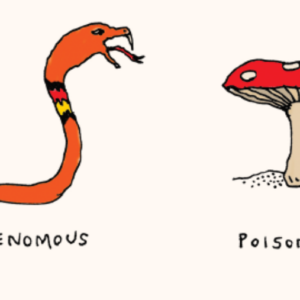
Yes, But Can You Really Explain the Difference Between Morals and Ethics?
- RSS - Posts
Literary Hub
Created by Grove Atlantic and Electric Literature
Sign Up For Our Newsletters
How to Pitch Lit Hub
Advertisers: Contact Us
Privacy Policy
Support Lit Hub - Become A Member
Become a Lit Hub Supporting Member : Because Books Matter
For the past decade, Literary Hub has brought you the best of the book world for free—no paywall. But our future relies on you. In return for a donation, you’ll get an ad-free reading experience , exclusive editors’ picks, book giveaways, and our coveted Joan Didion Lit Hub tote bag . Most importantly, you’ll keep independent book coverage alive and thriving on the internet.

Become a member for as low as $5/month
Reading, Writing & Creating with the Eclipse in Mind
Ohio writing project and the dayton aviation heritage national historical park.
A MADRIGAL Dream days of fond delight and hours As rosy-hued as dawn, are mine. Love’s drowsy wine, Brewed from the heart of Passion flowers, Flows softly o’er my lips And save thee, all the world is in eclipse. There were no light if thou wert not; The sun would be too sad to shine, And all the line Of hours from dawn would be a blot; And Night would haunt the skies, An unlaid ghost with staring dark-ringed eyes. Oh, love, if thou wert not my love, And I perchance not thine—what then? Could gift of men Or favor of the God above, Plant aught in this bare heart Or teach this tongue the singer’s soulful art? Ah, no! ‘Tis love, and love alone That spurs my soul so surely on; Turns night to dawn, And thorns to roses fairest blown; And winter drear to spring— Oh, were it not for love I could not sing! —Paul Laurence Dunbar

In this video, Ohio Writing Project director Beth Rimer invites us all to join in the fun and gives a walk-through of the set of resources gathered here:
Reading with the Eclipse in Mind
- Solar Eclipse Mini-Research Text Set (PDF) : Engage with an image and then conduct short research around questions.
- Paul Laurence Dunbar’s “A Madrigal” : Follow this teacher’s short explication of Dunbar’s “A Madrigal” and then write or add your own analysis.
Writing with the Eclipse in Mind
- Quickwrite prompt with Dunbar’s “A Madrigal” (PDF) : Read and respond to Dunbar’s “A Madrigal” with quickwrite prompts.
- Blackout Poetry (PDF) : Use Dunbar’s “A Madrigal” to create an original poem through blackout or erasure poetry. Share your poem too! You can also blackout “A Madrigal” digitally via the Shared Sky project.
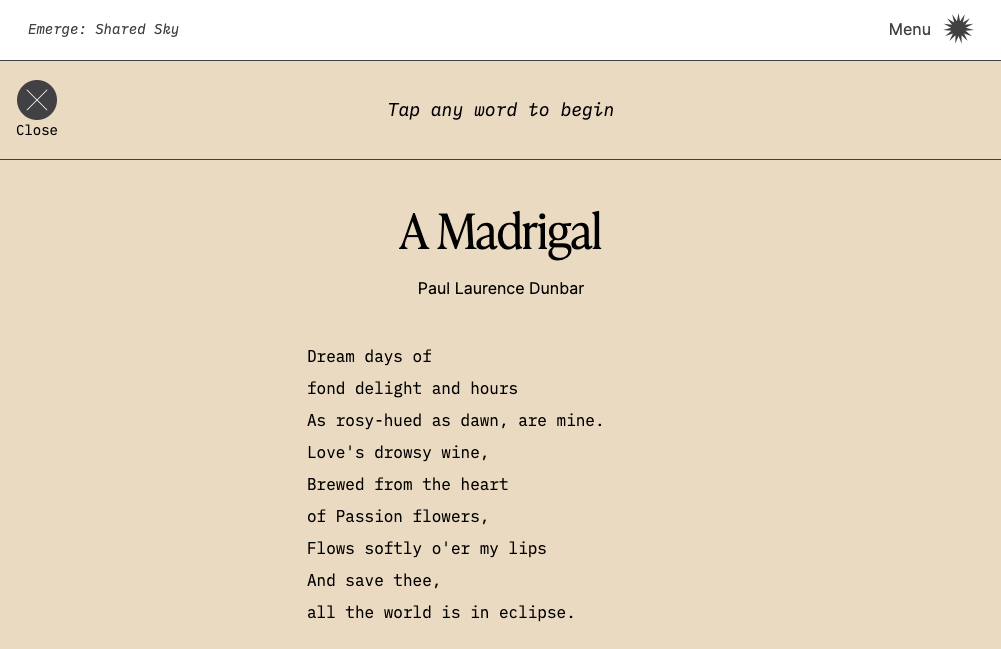
- Six Word memoir bookmark (PDF) : Write a six-word memoir after experiencing or researching the eclipse.
- Writing & Creating Prompts (PDF) : Use these prompts to inspire writing or art.
Creating with the Eclipse in Mind
- All The World is in Eclipse Teacher Art & Writing Resource (PDF) : Create a piece of art or writing inspired by eclipse art.
- Negative Space Art (PDF) : Create a piece of art with negative space as the focus.
More Related Resources
- Shared Sky is an interactive online poetry project celebrating the science and wonder of the 2024 Total Solar Eclipse by the Wick Poetry Center
- Paul Lawrence Dunbar: A Resource Guide compiled by the Library of Congress
- Paul Lawrence Dunbar at the Poetry Foundation
Topics/tags:
Also recommended, the write time with songwriter/storyteller rob rokicki and educator kevin hodgson, teachers writing for civic engagement, intersections of poetry, prose, and place.
Get the magazine!

How the Work of Agnes Martin Inspired Victoria Chang’s New Book of Poems
By jamie hood, april 10, 2024.
Victoria Chang photographed by Pat Cray.
I’ve yet to connect with the paintings of Agnes Martin . I’m a cheap date—pitifully drawn to the figurative, and, until now, sort of alienated by Martin’s abstract assemblages of lines, bands, stripes, and grids. Recently, I confessed as much to the poet Victoria Chang, whose seventh collection, With My Back to the World , is a dialogue toward Martin’s life and art, as well as a meditation on solitude, loneliness, depression, and spectacle. Like I did, Chang harmonized first with Martin’s writings and her story—the silent child; the solitary woman; the artist who fled fame in New York to live off the grid—before finding herself astonished by Martin’s work.
I first encountered Chang’s poetry with the publication of 2017’s Barbie Chang . But, like a lot of readers, what hooked me was her landmark series of lyric obituaries (gathered in 2020’s OBIT ), which hit like a bomb a few weeks into lockdown. Despite their highly particular elegies—mourning subjects like Chang’s father’s frontal lobe, his gait, her mother’s logic, and language itself—the poems seemed to me to hold a mirror to our collective terror and trauma in that period of uncertainty and global loss.
In her latest book, Chang’s gaze travels further out—toward Martin and New Mexico, to the limitless skies above Wyoming and On Kawara’s sense of time, into a place where the “first person ran / away like a horse”—in order to dive deeper inward. “I’ve wanted,” she writes, “to be the painting, not the painter.” Sometimes, of course, we don’t get to choose. Shortly before her book’s publication, on one of the first clear days of spring, we met over Zoom.
JAMIE HOOD: Hi, Victoria. How are you?
VICTORIA CHANG: I’m doing well. How about you?
HOOD: Good. It’s nice to meet you.
CHANG: You too. Where are you based?
HOOD: I’m in Brooklyn. You just got in?
CHANG: I just got in and am just giddy at the weather. You must be so happy today.
HOOD: I know, it’s finally gorgeous here! I wanted to start with the origin story of the book. You mentioned that one was Agnes Martin’s On a Clear Day. 1973 , which was commissioned by MoMA. Where did this book begin and when did you know you were writing it?
CHANG: I love the origin stories of any creative project. And I love thinking about how people start different series. That is fascinating to me. The MoMA asked me to write a poem on anything in their whole museum. I tried looking around on their site, but I just got overwhelmed, and so then I reversed my thinking and thought, well, “What artists would be interesting?” I had read Agnes Martin’s writings a long time ago. It’s a book that’s really hard to find. There are many things that she wrote about that resonated with me because she has this very Buddhist mindset. That’s my relationship with life and art and poetry, too. Then I remembered that she had left New York. She’d become more and more well-known. She just gave her paintbrushes away, and said, “Give these to some younger people who might need them.” I just loved that instinct. I picked On a Clear Day . Then, once I wrote that poem, I just felt like, “Wow, my relationship with this visual art is so different than it used to be.” Then I just kept on going. I did a ton of research on her work and tried to see her work as much as I could.
HOOD: I feel like there are several people right now writing about Agnes Martin. Did you read JoAnna Novak’s book Contradiction Days ?
CHANG: No, I haven’t read it, but I met her once a long time ago. She had been working on this book of prose that was also [about] her relationship with Agnes Martin. We must’ve been working on it at the same time. And then a long time ago, my friend Brian Teare wrote a book of poems talking to Agnes Martin and her pieces. I think that’s what really amazing art does. It’s like, this big door that everyone can enter. And no one owns that work. From my understanding, JoAnna Novak is writing about it through motherhood. I’m a mother, but I’m so beyond those early years. I have teenagers, so I’m at a different phase in my life, and that’s how I connect with her work and her grids.
HOOD: As you were in the process of writing, how did the relationship with Agnes Martin morph? I’m very fascinated by process. I’m also thinking about the way that the book ends with this unsettling encounter with a man who stands next to you in front of one of the paintings and you’re seeing yourself in the reflection in the glass. He shows up and then he speaks and the voice is Agnes’s. Obviously, she’s the central interlocutor in the book. But you’re not engaging at a remove.
CHANG: Totally. I just read everything I could and looked at everything I could, got really clear and beautiful colored plates of her work, read all the books, all the biographies. I saved the video of her talking and painting until the very end. I just wanted to have my imagination of what she was like and build that relationship with her. When I finally watched that film where she’s painting and talking at the same time, I remember bursting into tears. I had built up this very intimate and private and personal relationship with her, her writing, and her visual art. By the time I actually met her in body and in voice, I was very connected with her. I don’t know if anyone else would say this about me, but I’ve always felt that there’s a lot of performance when you’re building relationships with people. I love having these relationships where it’s not with a real person and I can immerse myself in that relationship and conversation. I really felt like I needed someone to talk to.
HOOD: I think that’s what drew me to writing. And it’s true for so many artists, this connection to art that almost supersedes or supplants the social. Importantly, this is also a book about depression. At times you’re talking about solitude and loneliness as separate things, and sometimes they become conflated with and bound up in this depressive feeling. You mentioned that, at times, you connect with art more than you do with people.
CHANG: It’s funny, I didn’t really know how depressed I was until I started writing these poems. Then I said to myself, “Well, don’t skirt around these issues, just write the word down.” I forced myself to write that word down “depression,” and once I did, I just found myself not afraid to write it again and again. I didn’t feel embarrassed or ashamed about it anymore. A lot of us experience extreme sadness many times in our lives. And for some people, it’s a constant thread throughout their lives. For me, this particular time was way worse than it normally is, because of all the caretaking that I had been doing for my parents who were so ill for so long. And then, I was reaching a different chemical stage in my bodily life that was surprising. I didn’t even understand what was happening. One of my friends was like, “Hey, are you okay?” He said he felt the book was really, really dark. I had forgotten that it was so dark, or I didn’t think of it as being dark. It was so cathartic and intellectually stimulating to explore the topic of depression through the work of Agnes Martin.
HOOD: To my sense, your last four books work in a cycle, but With My Back to the World feels as if it’s departing from those themes. One of the things I found so fascinating about what you’re doing here is talking about what language itself does and how it connects, for example, to depression, to solitariness, to loneliness. This book is so much about form and what poetry does, how it does it, and what it’s good for.
CHANG: And also what it can’t do. Language is so unsatisfactory. You can’t really ever get to the thing that you’re feeling with language. You can get as close as you can. I experienced this when I was trying to write about my mother’s death and my grief. I just knew I was not able to succeed. I tried again and again and again and again through those little obituaries. So this book is trying to talk about the inadequacies of language. In many ways, Agnes Martin’s pieces are writing. It’s a form of scratching on paper in the same way that I’m scratching on paper. It’s just that her language is the grid or the band or color.
HOOD: As writers, I think we must speak to those insufficiencies, particularly in so politically polarized and precarious a moment. There’s an idea that you always have to be absolutely immovable in your opinions, and if anyone challenges you, you double down and argue your way further into that hole. It’s very difficult to admit to the gaps.
CHANG: And in fact, maybe not knowing is a form of knowing. I was just talking to my friend about this yesterday. He said, “I’m really not sure poetry is always the best place for certainty or righteousness.” And I was like, “I totally agree.” I think poetry and art are navigating the unknown and the inadequacies of knowledge. It’s the opposite of knowledge. It’s not knowing what you’re going to say before you say it, it’s not knowing where you’re going to arrive when you’re done. It’s about discovery, not certainty. It’s a really difficult time, for me, as an artist, because I find the certainty in people’s stances about everything, even things I totally agree with, creeping into their art. For me, that’s the opposite of art. I don’t know anything. And by the time I’m done, I’m still not going to know anything, but I feel really joyful about the process of imagination and creation. I have no issue with everybody else and how they decide to make their art or navigate the literary world. But this is where I’d like to stay, in the space of the unknown and the uncertain.
HOOD: Art as the place where you get to to defamiliarize yourself, to have an experience of unknowingness.
CHANG: Absolutely. Destabilize yourself and surprise yourself through language.
HOOD: I was talking to my therapist about this recently. When the writing is really good, it disorients and displaces you. There’s something about the way your encounter with art is or should be about a removal from or a distortion of ego.
CHANG: When you’re writing about yourself and the work, you fundamentally understand that you’re not transcribing your experience, you’re actually distorting the experience. That’s when the art gets interesting. If you go in with the idea that you’re just there to depict, replicate, and delineate your experience, I find that to be uninteresting. That’s why people can work on their art, whatever it is, and feel like they’re underwater for the whole day. 15 hours have passed and nothing mattered but being in that space of creation and writing. I get the most excited when I have no idea what time is anymore.
HOOD: In your poem “Today,” you write, “I heard my own voice describing my fall onto a knob, how I lost my left eye, how I refused to die. And then I saw myself bend over to look at me. My own hand grabbed my hand, but I couldn’t feel it or move my eye. I saw myself for who I was; evil, full of syllables. Poets are useless.” That last bit–”poets are useless”–is borrowed from H.D.’s experimental epic Trilogy. Her reading, I think, is couched in irony, but yours feels more earnest, and also more resigned. I was wondering, in your sense, what is the use value of poetry? Should it have a use value?
CHANG: For me, poetry is naturally political because it’s a form of agency, it’s an utterance. But that’s where my idea of poetry ends. Rita Dove said, “Poetry is language at its most distilled and most powerful.” Audre Lorde said, “Poetry is the skeleton architecture of our lives.” And Gwendolyn Brooks said, “Poetry is life distilled.” Mahmoud Darwish said, “I see poetry as spiritual medicine.” There are so many of these definitions of poetry, which just tells me that it’s literally undefinable. For me, it’s the only way to get at our life experience and what we’re feeling inside. I think that all art forms do that, but there’s something about poetry, the economy of language, that isn’t really like anything else. It’s trying to use the fewest words to get at the biggest emotions. I was reading Sylvia Plath on the way in because I’m teaching a class shortly. She’s amazing. She’s very practical. She’s a thesaurus. She just sat with a little thesaurus looking at words. In her poems from the end of her life, she didn’t use the thesaurus, but I think the thesaurus was already in her body. She just was a word lover. She was very interested in putting really weird words right next to each other. That, to me, is poetry.
HOOD: I saw you announce the Sylvia Path class, which of course I was thrilled about. I feel like she’s one of those literary godmothers people want you to be really embarrassed about, but I love Plath. At the end of her life, you see that economy of language. It cuts like a knife. I could just talk about Plath all day.
CHANG: Me too.
HOOD: I was also thinking about the idea of witness and bearing witness. Jumping back to where we started, On a Clear Day , the commission by MoMA, is also a poem that is partly about the 2021 shootings at the Atlanta spas. You’re not particularly explicit about these events, but they run through a number of the poems. The book is also reckoning with spectacularity, being seen, the pleasure and also the danger of it.
CHANG: We’re in that culture now, for better or for worse. I find that to be so bizarre. I think hiding is very difficult in our culture, and yet we put our work out there in the form of a book. In poetry, it’s more attention than what you expected, and then everyone’s staring at you. I’m just the electric wire or conduit the poems traveled through. Yet today, we all want to be seen and looked at. But then I’m like, “Well, what is the cost of being seen and heard?” I think this book is also very feminist. What does it mean to be a person that looks like me? And what’s my relationship with being seen? When I was younger, being seen was a terrible thing. I was totally bullied in the white community that I grew up in, so lurking around and hiding around corners was my preferred way of being. Now everybody wants you to say something about everything. And if you don’t say something about everything, then somehow you’re a bad person.
HOOD: That was exactly why I was drawn to literature and writing, because I’ve always found it difficult to present myself socially. Writing was a way of doing that.
CHANG: That’s right. If you have attention, it’s a positive thing. If your book gets attention, it’s a great thing. And it’s just so bizarre because it never feels that great. It never quite lives up to what you’re supposed to feel because your anxiety is just heightened. Writing is the main way in which I feel like I can survive. And it’s actually the main way I am able to live. And I think if I didn’t write, I don’t know how I would live. That’s my relationship with writing. When I’m not making things, I start to feel like my life is meaningless, and then I start to feel very unmoored. I know a lot of people who aren’t this way. They find joy in other aspects of life. For me, this is it.
HOOD: I feel the same way.
CHANG: I think a lot of us do. It saves us.
Related Posts

Lily Stockman Brings Us Back to the Gallery

Marissa Higgins on BookTok, Lesbian Fiction, and Her Debut Novel

Danya Taymor and Angelina Jolie Take Us Inside The Outsiders
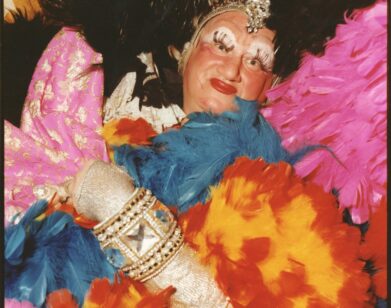
Photographer Jason Byron Gavann Takes Us Inside Boston’s Unsung Queer Scene

Vinnie Hacker’s Essential Tokyo

Chef Eric Adjepong Shows Us How to Perfectly Sear a Scallop

Program in Creative Writing Celebrates National Poetry Month 2024
- Creative Writing
To celebrate National Poetry Month in April, the Lewis Center for the Arts invited seniors writing a poetry collection as their creative writing thesis to read one of their poems
Click the images below to listen to the poems of Juliette Carbonnier and Ananya Grover. This post will be updated soon with poetry readings from Kenza Benazzouz and Anurag Pratap. Stay tuned!
On April 30 at 4:30 p.m., these seniors and others will read from the collections of poems written as their senior theses under mentorship of professional writers on the faculty. Seniors will read from their work in fiction on May 1 at 4:30 p.m.
Learn more about the Program in Creative Writing
Press Contact
Steve Runk Director of Communications 609-258-5262 [email protected]

Lewis Center for the Arts’ Princeton Atelier presents a concert of original songs by students in the spring course, “How to Write a Song”

Princeton Arts Fellows for 2024-2026 Announced

2024 Senior Readings in Poetry, Translation, Screenwriting

2024 Senior Readings in Fiction
- creative writing
- National Poetry Month
Receive Lewis Center Events & News Updates

How to Use ChatGPT to Write a Poetry Book
I n the world of AI, ChatGPT is rising fast to be one of the most well-known services. For a creative writer, it can be a great deal of help in multiple ways. From generating ideas for overcoming writer’s block to researching themes for your next story, ChatGPT is the perfect assistant.
But, can it help with the entire process of creating a poetry book? If you ask the right questions, there’s no reason why it can’t.
Below is a guide on how to use OpenAI’s ChatGPT to write a poetry book, from brainstorming to publication.
Brainstorm Ideas
The beginning of every poetry book needs one thing: poems. Many times, the poems can be based on one theme or showcase a storyline.
To write poetry, though, you have to be in the right emotional headspace for it. If you’re not, it can be a bit difficult to scribe lines.
ChatGPT can help with that. Brainstorming ideas can come in the nature of prompts, collaboration, and even sharing other poetry to inspire your thought process.
If you’re curious about what topic your poetry should focus on, ask ChatGPT for a list of themes and pick which ones resonate with you.
You may already know what theme you’re going for. If so, you can ask for prompts about that theme or have ChatGPT ask you questions to help refine your ideas. The questions should be thought-provoking to help you infuse as much emotion into your work as you can. Remember, AI can’t feel, so it’s up to you to make your readers feel your art.
If you really want to test your poetic abilities, ask the AI to suggest a new poetic approach with steps to help guide you. Even if it doesn’t make it to a final draft, it’s still a good exercise to enhance your writing abilities.
Help With Language and Style
There are so many creative ways that ChatGPT can be used . Helping to build poems with fluid language and style is one of them.
Having refined language and style in a poem helps to express your ideas and emotions to your readers. If it’s inconsistent and hard to understand, your readers won’t be able to keep up with the art you’re trying to create in your book.
Using poetic devices can help to make a good poem great. Ask ChatGPT for a poetic device that will fit within the poem structure you’re going for.
You can also ask ChatGPT for some good imagery words that align with the subject of your poem. For example, if you’re writing about the moon’s reflection on top of the water, but you’re having a hard time with wording, you can choose from a list offered by the AI.
Offer Alternative Word Choices
The thesaurus is every writer’s best friend when they can’t think of the right words to use. ChatGPT can be used to find alternative words and even offer words for a concept you’re thinking of.
For instance, if you have a line that you know will be about a dying leaf on a stick, but you don’t want to use the word "stick," ask ChatGPT for a more attractive synonym.
Assist With Form and Structure
Beyond the words, form and structure are some of the most important elements of a poem. They determine the type of poem it is and how the poem progresses to create an experience for the reader. In other words, the meter, stanza lengths, and rhyme schemes of a poem, just to name a few.
If there’s a particular style of poem you’re looking to write, ChatGPT can give you the guidelines to create it. Additionally, you can ask about rhyme schemes for a poem with a certain amount of lines and choose from the options available.
Frankly, any question you have regarding poetry can be asked and ChatGPT will be able to provide an answer with examples.
Proofread and Edit
Proofreading and editing are such helpful features within ChatGPT , even with poetry. You can copy and paste your newly written poem and ask the AI to check for grammatical errors, spelling mistakes, and other oversights you may have missed.
In terms of editing, though, you’ll want to make sure that ChatGPT doesn’t change your poetry too much. You still want the work to be your own. Additionally, there’s a good chance that the emotions you’ve purposely embedded into the poems will be altered.
Suggestions for Poem Arrangement
In a poetry book, the arrangement of the poems is essential for creating a story—whether there’s a narrative or simply an emotional development. You’ll want your readers to follow along in the book and take something away from it.
It would probably be a bit overwhelming to copy and paste every poem into the search bar and ask ChatGPT to arrange your work. However, you can let the AI know what kind of poems you have and ask for a list of ways to organize them.
In the end, it should be your decision what poem gets placed where.
Guidance With Publication
The publication of a poetry book is a big step for a poet, and there are several questions to ask yourself. Should you consider a full-length poetry book or a chapbook? Are you going to self-publish or attempt to find a publisher?
Though these questions will tend to be more of a personal choice, ChatGPT can help guide you with facts and research. Make sure you give enough information so the answer can be tailored to what you have created.
Assist With Marketing and Promotion
Although ChatGPT can’t promote your book for you, it can offer suggestions for how you can do it successfully. In the search bar, jot down all the information about your book and how to promote it, and see what it spits out for you. It could be anything from creating an effective book ad to marketing yourself on social media.
There are numerous suggestions that can be offered, so if you don’t like what it has given you, or you want more ideas, simply tell ChatGPT that you would like to see more.
Put Your Poetry Out Into the World With the Help of ChatGPT
ChatGPT is a great resource to help with all stages of writing. It can bring ideas to life and test your skills with new writing techniques. When it comes to writing a poetry book, ChatGPT can assist from the initial prompt to the marketing campaign of your self-published chapbook.
Whenever you’re ready to start your poetry book undertaking, test out ChatGPT to see how it can help your process.
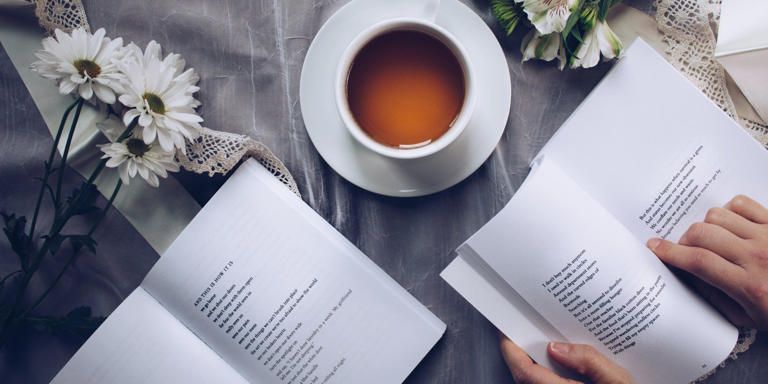

IMAGES
VIDEO
COMMENTS
Main Paragraphs. Now, we come to the main body of the essay, the quality of which will ultimately determine the strength of our essay. This section should comprise of 4-5 paragraphs, and each of these should analyze an aspect of the poem and then link the effect that aspect creates to the poem's themes or message.
How to Write Poetry: 11 Rules for Poetry Writing Beginners. Written by MasterClass. Last updated: Aug 9, 2021 • 5 min read. If you think you're ready to try your hand at writing poems, it may help to have some general parameters as guideposts. If you think you're ready to try your hand at writing poems, it may help to have some general ...
Poetry essay body paragraphs example. Body Paragraph 1: Identify and Explain Literary Devices. "Because I could not stop for Death" by Emily Dickinson employs various literary devices that contribute to the poem's themes. The poem employs personification, where Death is personified as a courteous carriage driver.
Nonetheless, if you're new to writing poetry or want to explore a different writing process, try your hand at our approach. Here's how to write a poem step by step! 1. Devise a Topic. The easiest way to start writing a poem is to begin with a topic. However, devising a topic is often the hardest part.
Make sure they match the content and the emotional impact you want to convey. Read the poem several times, paying attention to each line and stanza. Look for areas that could be improved, such as awkward phrasing or unclear meaning. Consider using synonyms, metaphors, and similes to add depth and impact.
Save the Theme: Exercise. Pick your favorite proverb or adage, such as "Actions speak louder than words.". Write a poem that uses that proverb or adage as the closing line. Until the closing line, don't comment on the deeper meaning in the rest of the poem—instead, tell a story that builds up to that theme.
1. Brainstorm your starting point. If you're struggling to write your poem in order from the first line to the last, a good trick is opening with whichever starting point your brain can latch onto as it learns to think in verse. Your starting point can be a line or a phrase you want to work into your poem, though it doesn't have to take the ...
Playing with alliteration or assonance can bring a variety of sounds to your work. Exploring extended metaphors and working in synecdoche or metonymy can bring layers of meaning to your work. Research various poetic devices and try incorporating new techniques into your poetry. 7. Simplify word choice.
Well-known in her native Poland, Wisława Szymborska received international recognition when she won the Nobel Prize for Literature in 1996. In awarding the prize, the Academy praised her "poetry that with ironic precision allows the historical and biological context to come to light in fragments of human reality.".
Emotions are a great tool to use in poetry because people feel them universally. 3. Set aside time to write every day. The only way to get better at writing poetry is to practice it. Try to write poetry for at least 10 minutes a day, or more if you have time. Write about anything that you are inspired by.
Compare your subject to something else by creating an extended metaphor. Try to relate a theme or a simple lesson for your reader. Use at least two of the figurative language techniques from above. Create a meter or rhyme scheme (if you're up to it) Write at least two stanzas and use a line break.
7. How to Become a Poet: Attend a Writing Workshop. A good writing workshop, facilitated well, can be one of the most important tools in the writing process. Writing workshops are spaces where writers come together to read and provide constructive feedback on one another's works-in-progress.
Introduction. Poetry is an art form that predates written text, serving as a means to convey emotions, tell stories, and express ideas in ways that prose cannot. It's a personal and intimate ...
2. Have a free-writing session. Once you have chosen your concept, now is the time to do some free-writing. The free-writing session is like a feeling-out process. You don't have to come up with a fully realized poem. This is a chance for you to get your bearings and write about the concept without any pressure. 3.
Body Paragraphs. The body section should form the main part of poetry analysis. Make sure you have determined a clear focus for your analysis and are ready to elaborate on the main message and meaning of the poem. Mention the tone of the poetry, its speaker, try to describe the recipient of the poem's idea.
Try one or all of these poetry writing exercises. Writing exercises are a great way to get your creative juices flowing. 1.) Look at an old photo. Write about everything not in the picture. Feel free to move to and from reality. 2.) Describe a place you've never been to. Be as realistic as possible.
Online Resources. Includes links to general poetry sites, poet and audiovisual archives, online courses in poetry, and other resources for teachers and students. Essays, discussion guides, writing prompts, and videos on poetry-related topics for teachers and learners of every age.
9. Choose words carefully. When you write poetry, you must be careful with your word choice. Because if you can't choose the right words, then the audience will not be interested in reading your poem. So choose the words for the poem in such a way that they touch the heart of the audience.
Drafting Your Essay. 1. Start your essay with information about the poet and a brief overview. Let readers know the poem's title, who wrote the poem, and what the poem is about (briefly). This information will help to provide context for your readers and lead into your thesis statement.
Tips for Writing the AP Lit Poetry Essay. 1. Focus on the Process. Writing is a process, and so is literary analysis. Think less about finding the right answer, or uncovering the correct meaning of the poem (there isn't one, most of the time).
Blackout Poetry Journal: Poetic Therapy by Kathryn Maloney. Blackout Poetry Journal: Poetic Therapy #2 by Katheryn Maloney. One of the most popular forms of poetry today is the art of blackout poetry, in which poets scratch or blackout text to reveal a poem in the words that remain.
Step 4: Analyzing the poem's structure and form. After identifying the central theme, you need to analyze how the poem's structure and form contribute to its meaning. This is a key component of a strong poetry essay. Examine the overall structure - the number of lines, stanzas, and organization of the poem.
This first appeared in Lit Hub's Craft of Writing newsletter—sign up here. When T.S. Eliot wrote, "April is the cruelest month," he was not talking about trying and failing to meet the 30 poems in 30 days National Poetry Month challenge. But you could be forgiven for repeating this phrase ominously to yourself as you start to […]
How to Analyze a Poem: Techniques & Tips for Understanding Poems. The process of closely examining a poem's structure, ideas, and methods is known as poem analysis. It entails examining the reader's emotional response to the poetry as well as the poet's aims, context, and literary strategies. ... When writing a poem analysis essay, one must ...
Writing with the Eclipse in Mind. Quickwrite prompt with Dunbar's "A Madrigal": Read and respond to Dunbar's "A Madrigal" with quickwrite prompts. Blackout Poetry: Use Dunbar's "A Madrigal" to create an original poem through blackout or erasure poetry.Share your poem too! You can also blackout "A Madrigal" digitally via the Shared Sky project.
Formulations have an artistic element, and writing poetry can help foster a capacity for curiosity that can assist trainees in developing these skills. Get full access to this article. View all access and purchase options for this article. Get Access. References. 1. Plath S. Collected poems. London: Faber and Faber, 2005, p. 21.
CHANG: It's funny, I didn't really know how depressed I was until I started writing these poems. Then I said to myself, "Well, don't skirt around these issues, just write the word down." I forced myself to write that word down "depression," and once I did, I just found myself not afraid to write it again and again. I didn't feel ...
Our Masters of Creative Writing degree program offers comprehensive online courses in literary arts, encompassing advanced writing studies in various genres such as fiction, poetry, non-fiction, and more. Students benefit from one-on-one mentorship with renowned and published writers in their respective genres, providing invaluable guidance and support to hone their craft.
On April 30 at 4:30 p.m., these seniors and others will read from the collections of poems written as their senior theses under mentorship of professional writers on the faculty. Seniors will read from their work in fiction on May 1 at 4:30 p.m.. Learn more about the Program in Creative Writing
The beginning of every poetry book needs one thing: poems. Many times, the poems can be based on one theme or showcase a storyline. To write poetry, though, you have to be in the right emotional ...